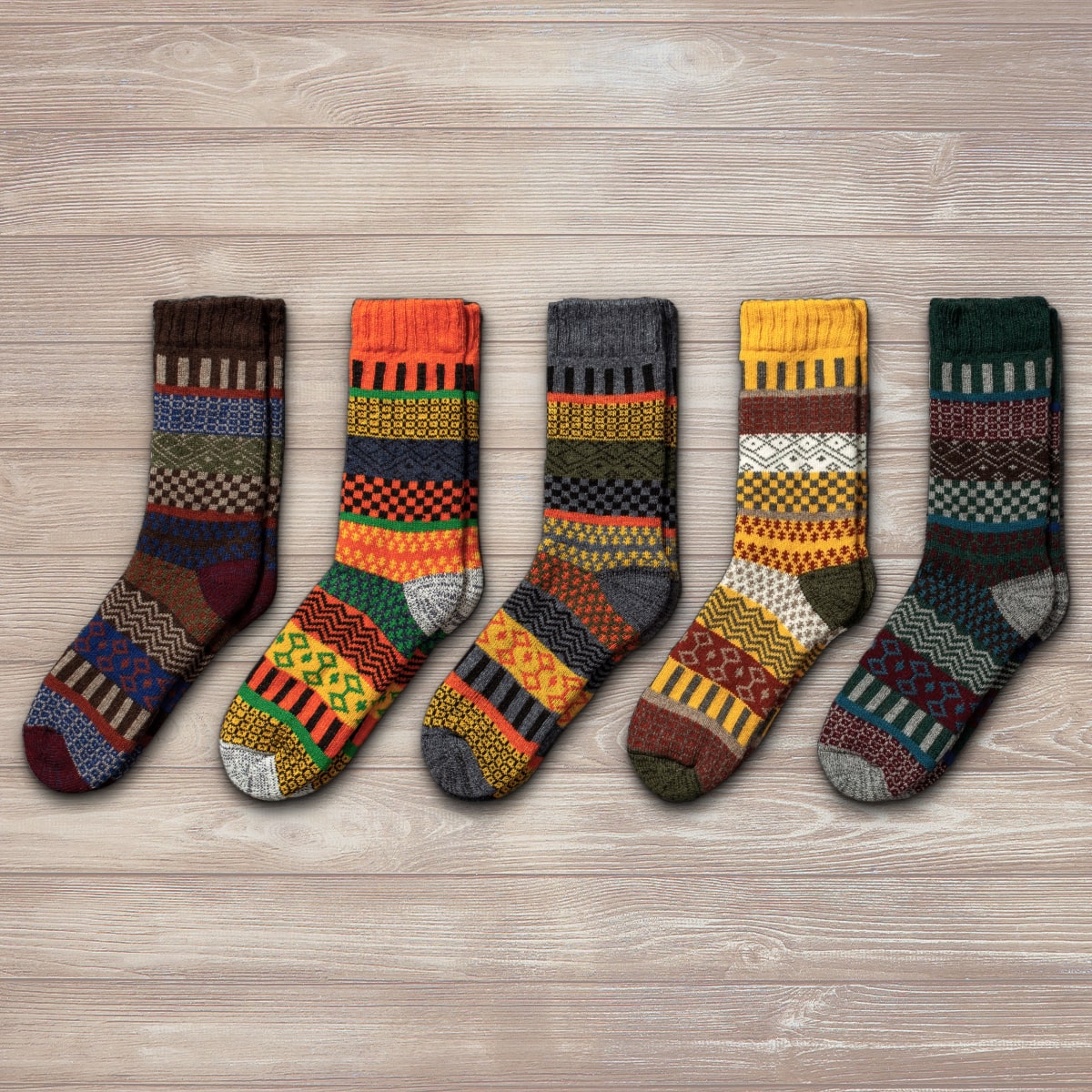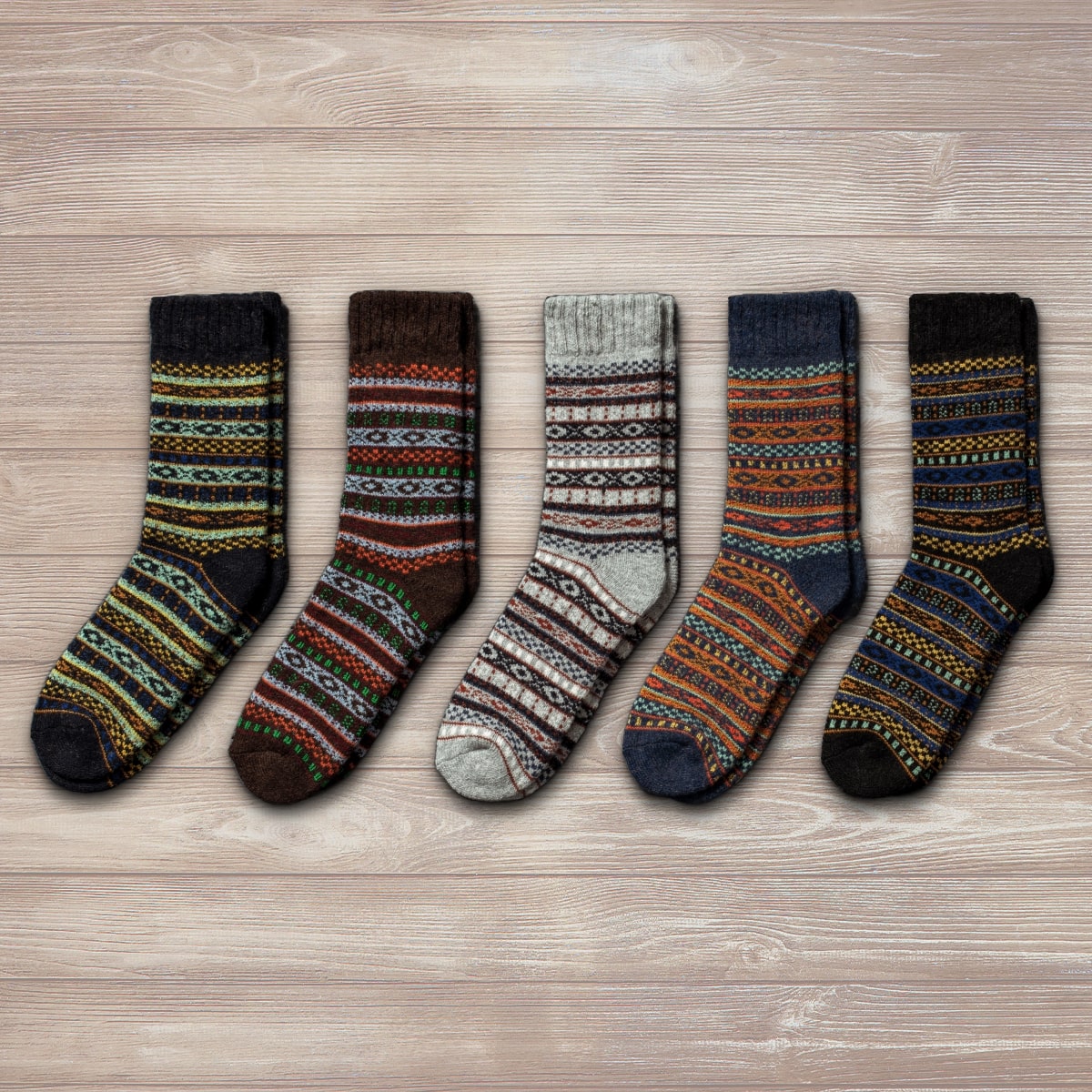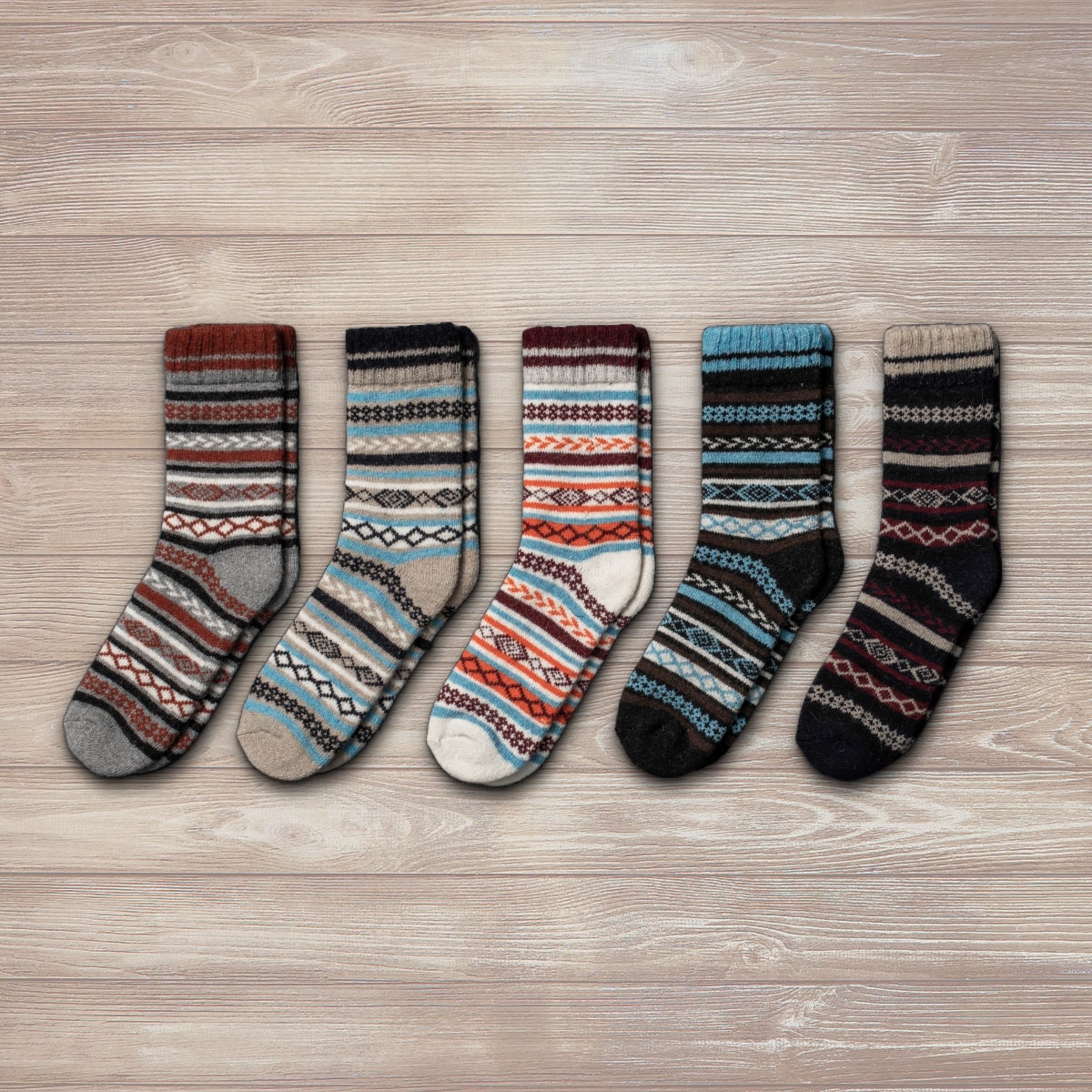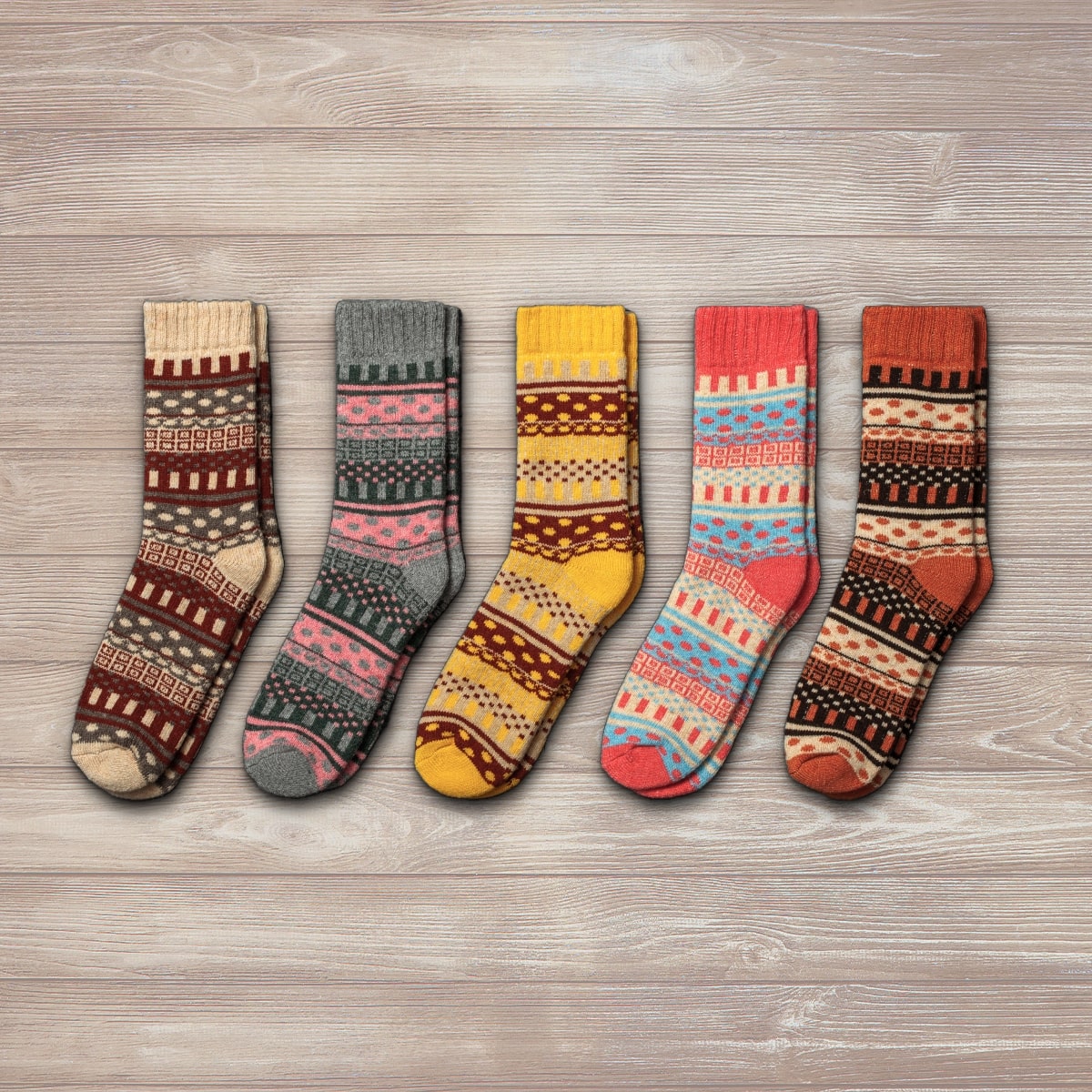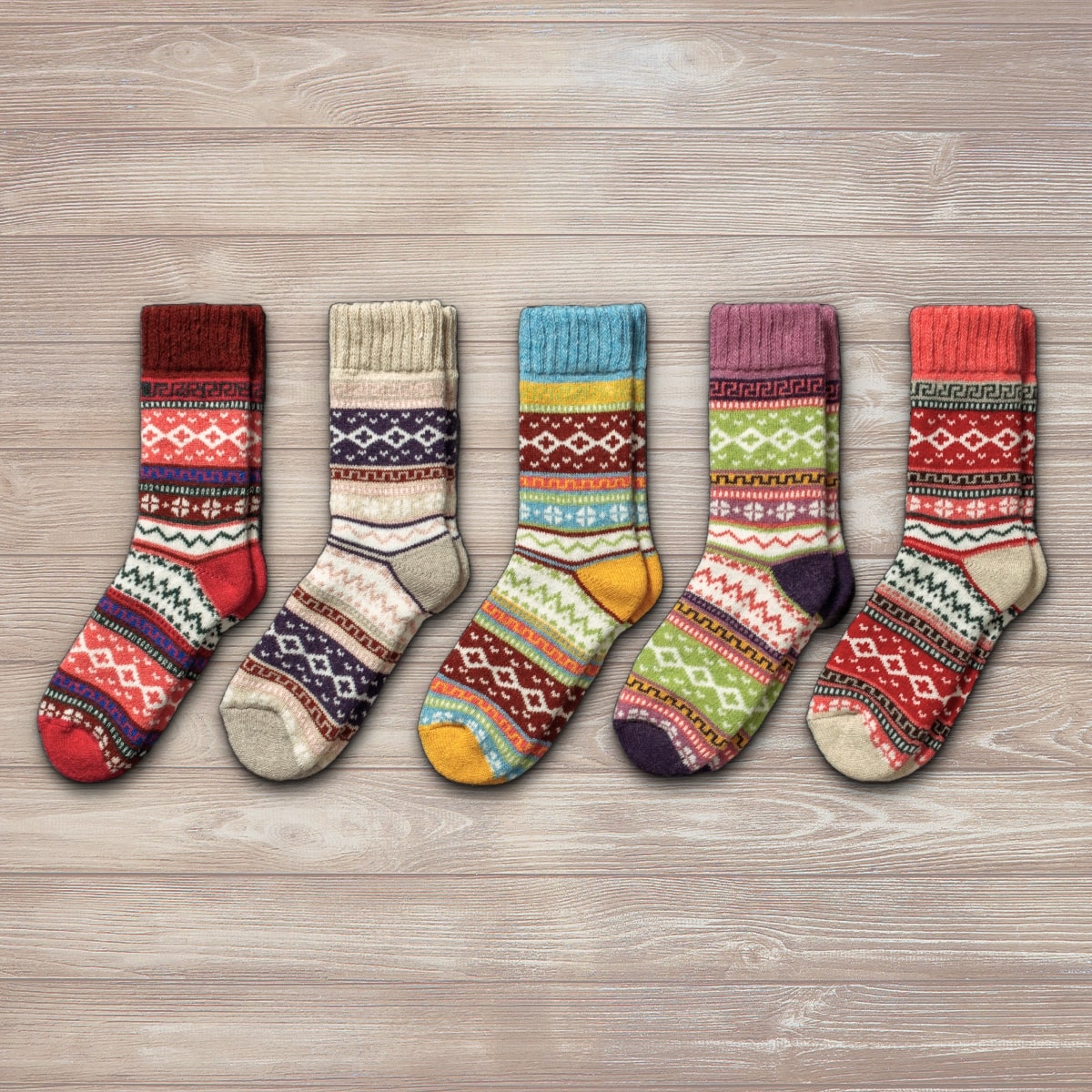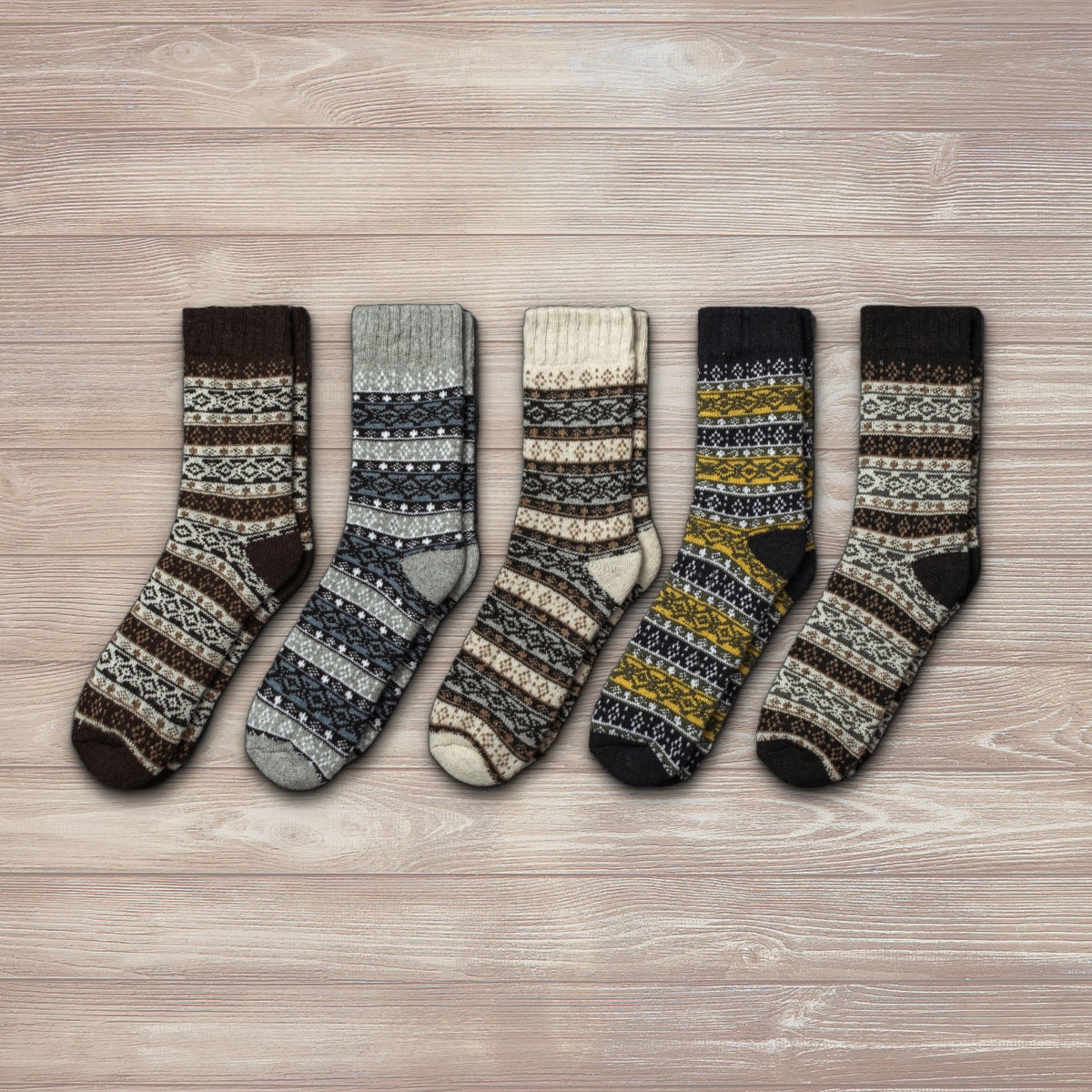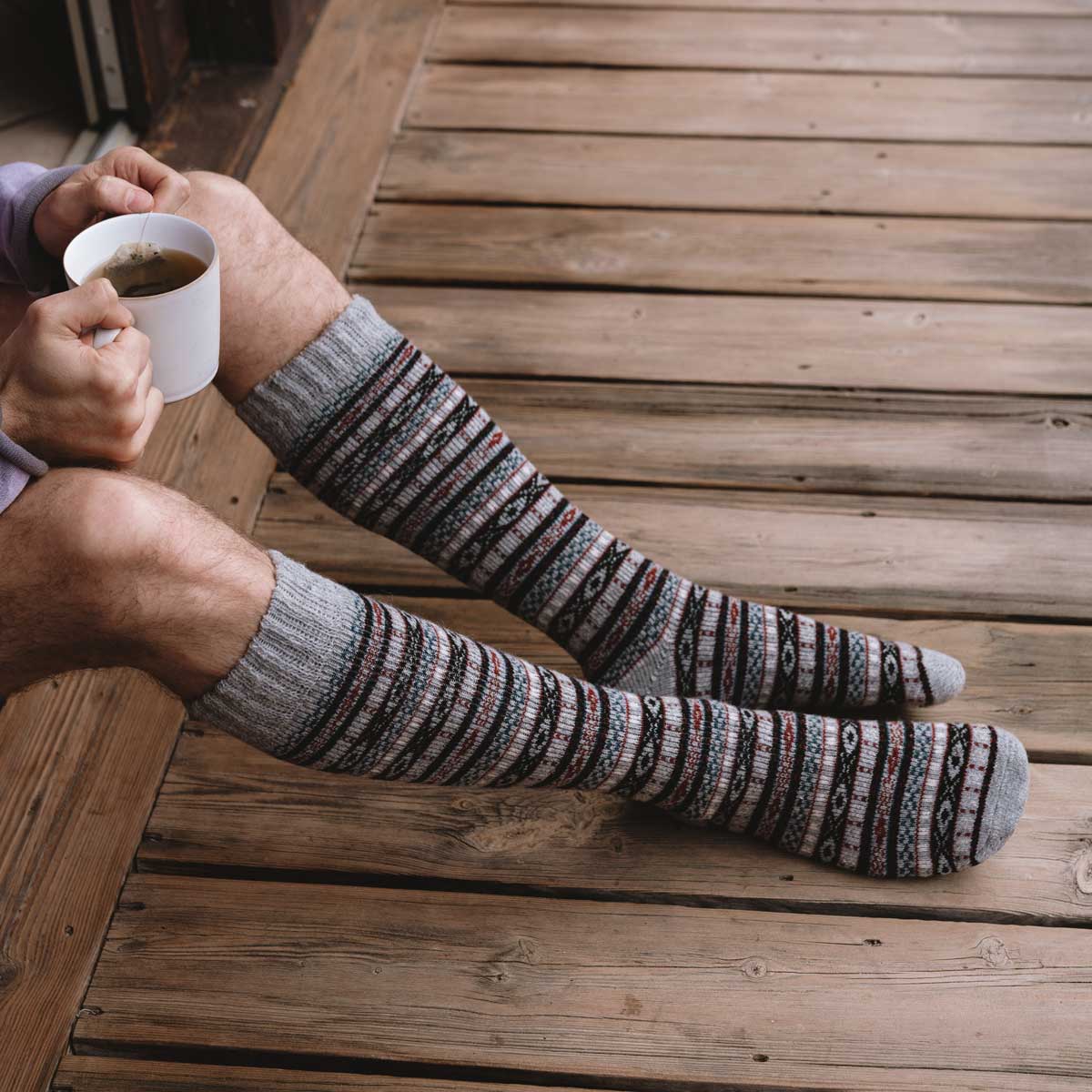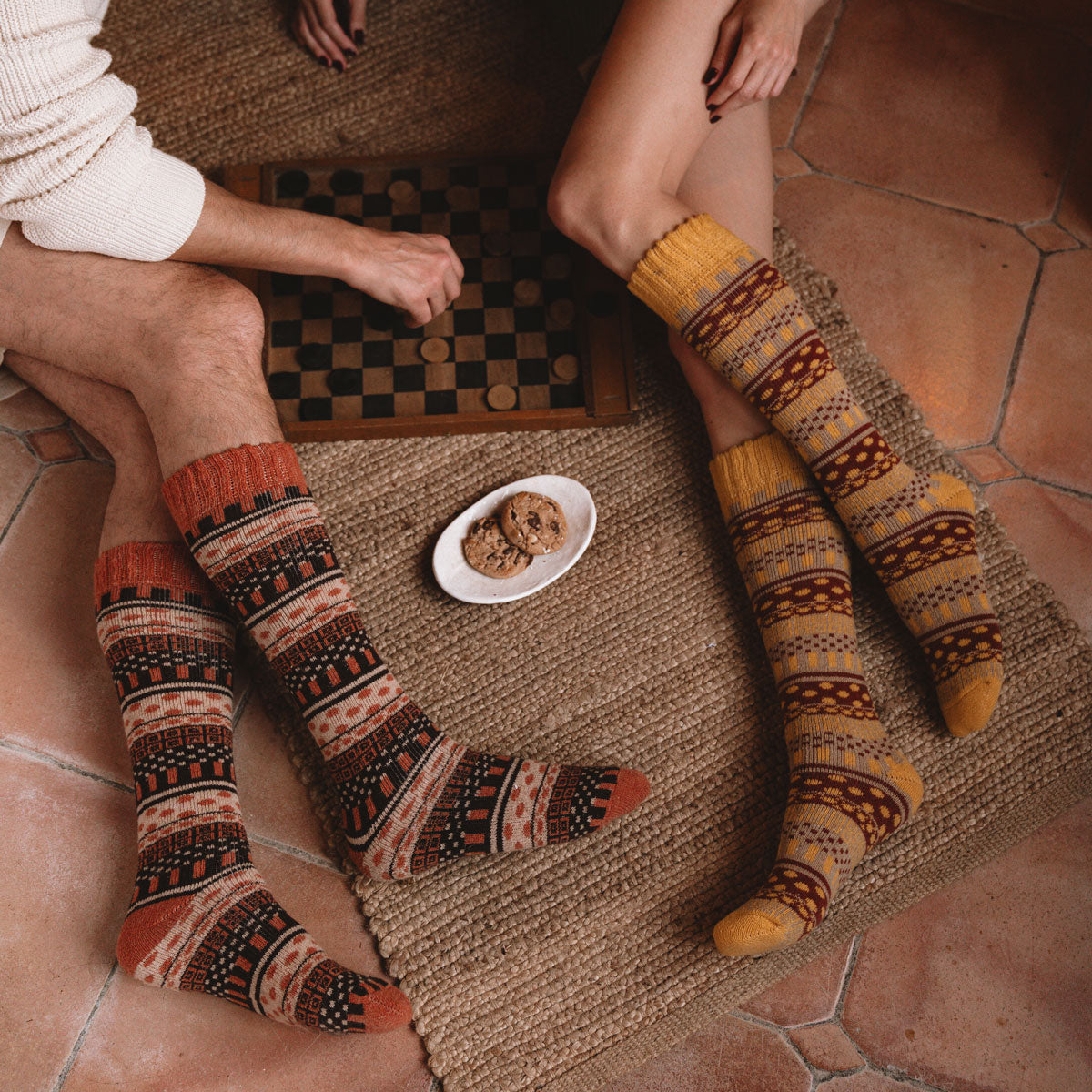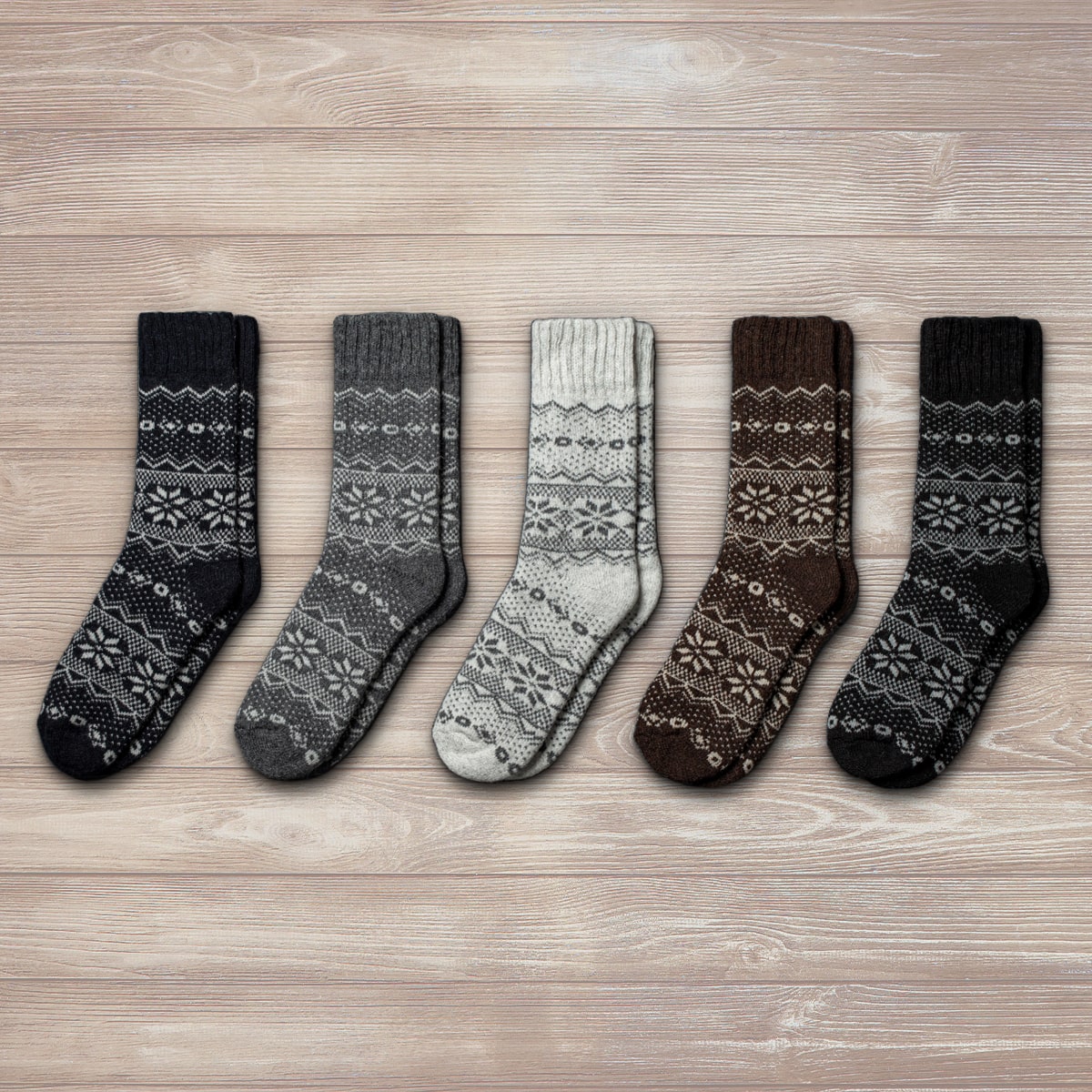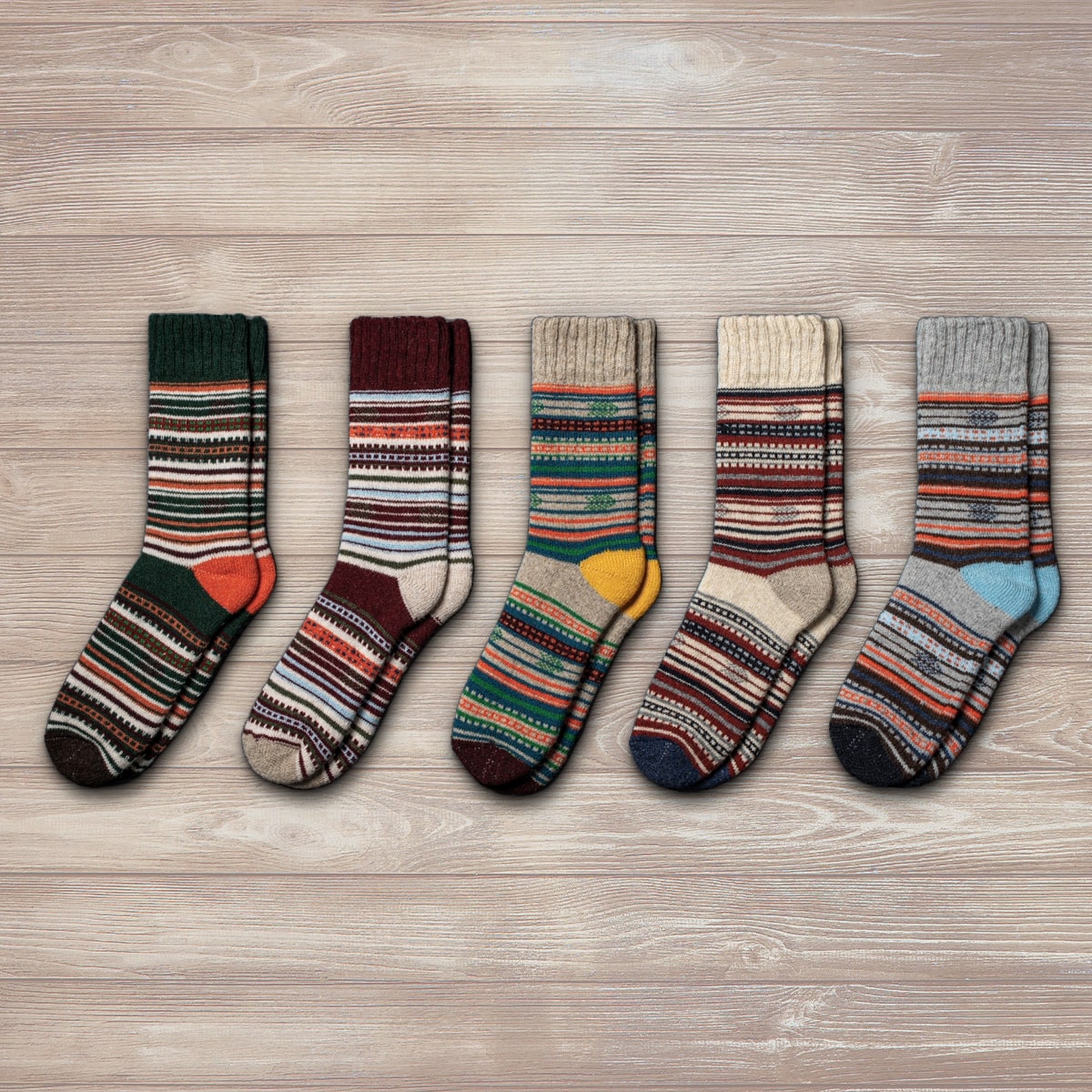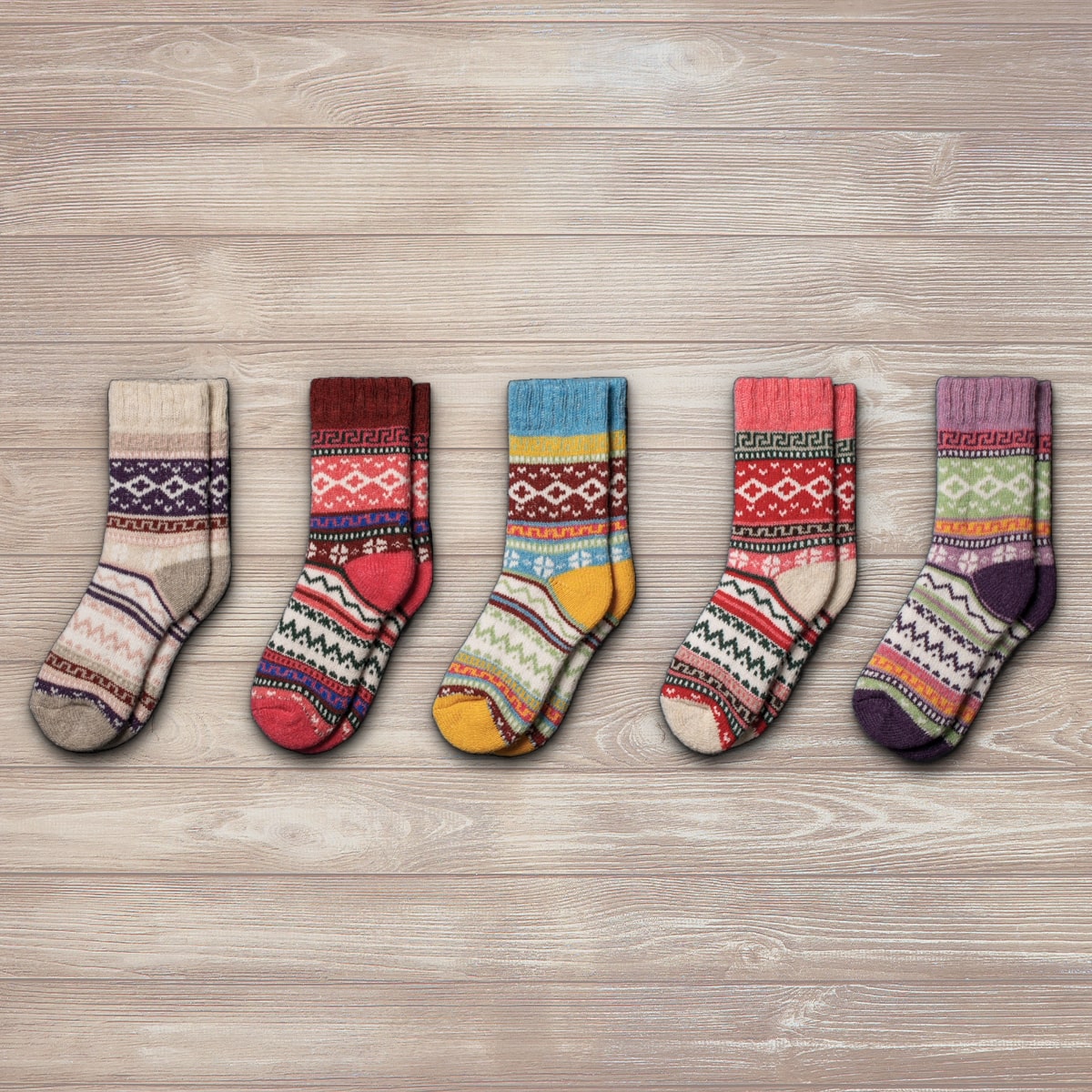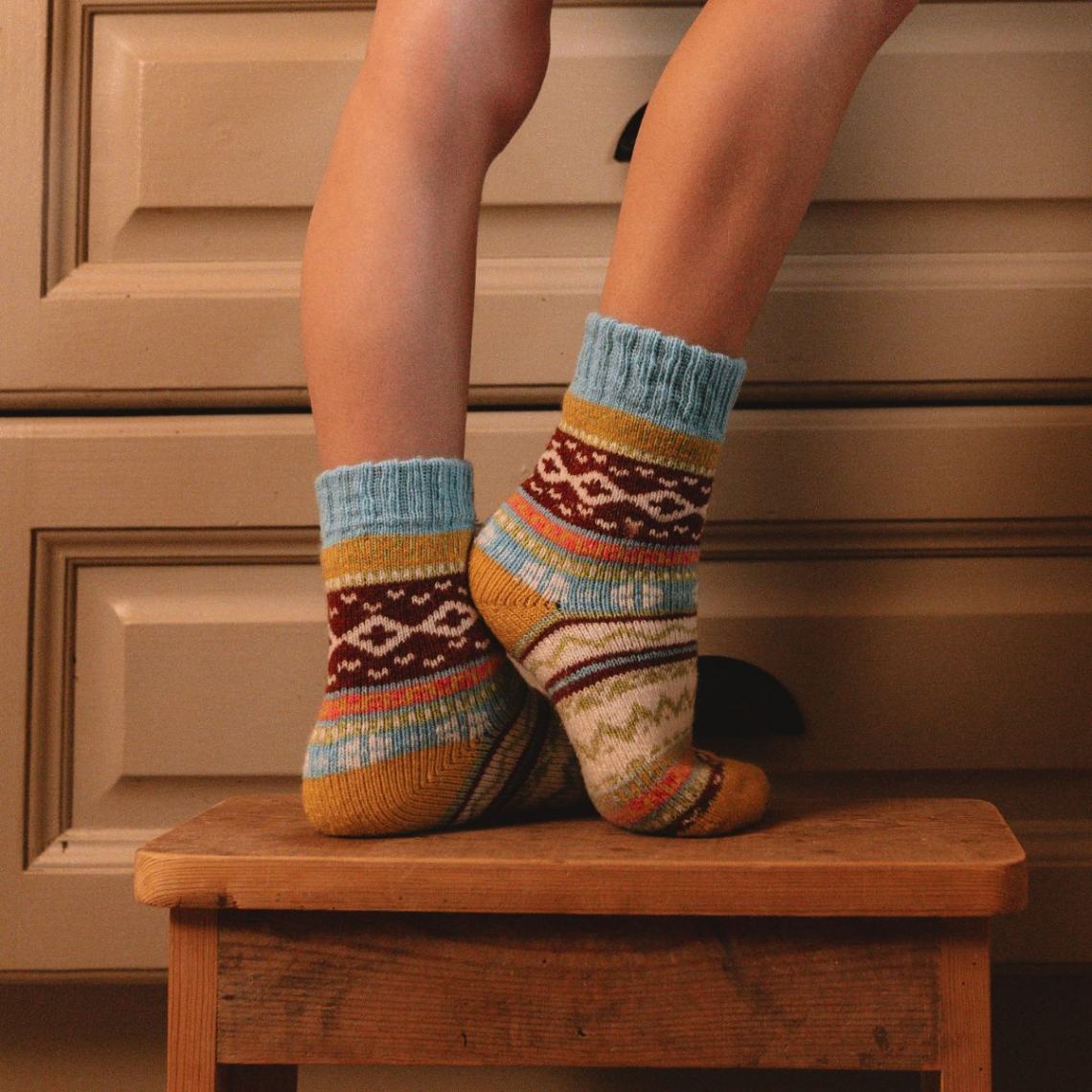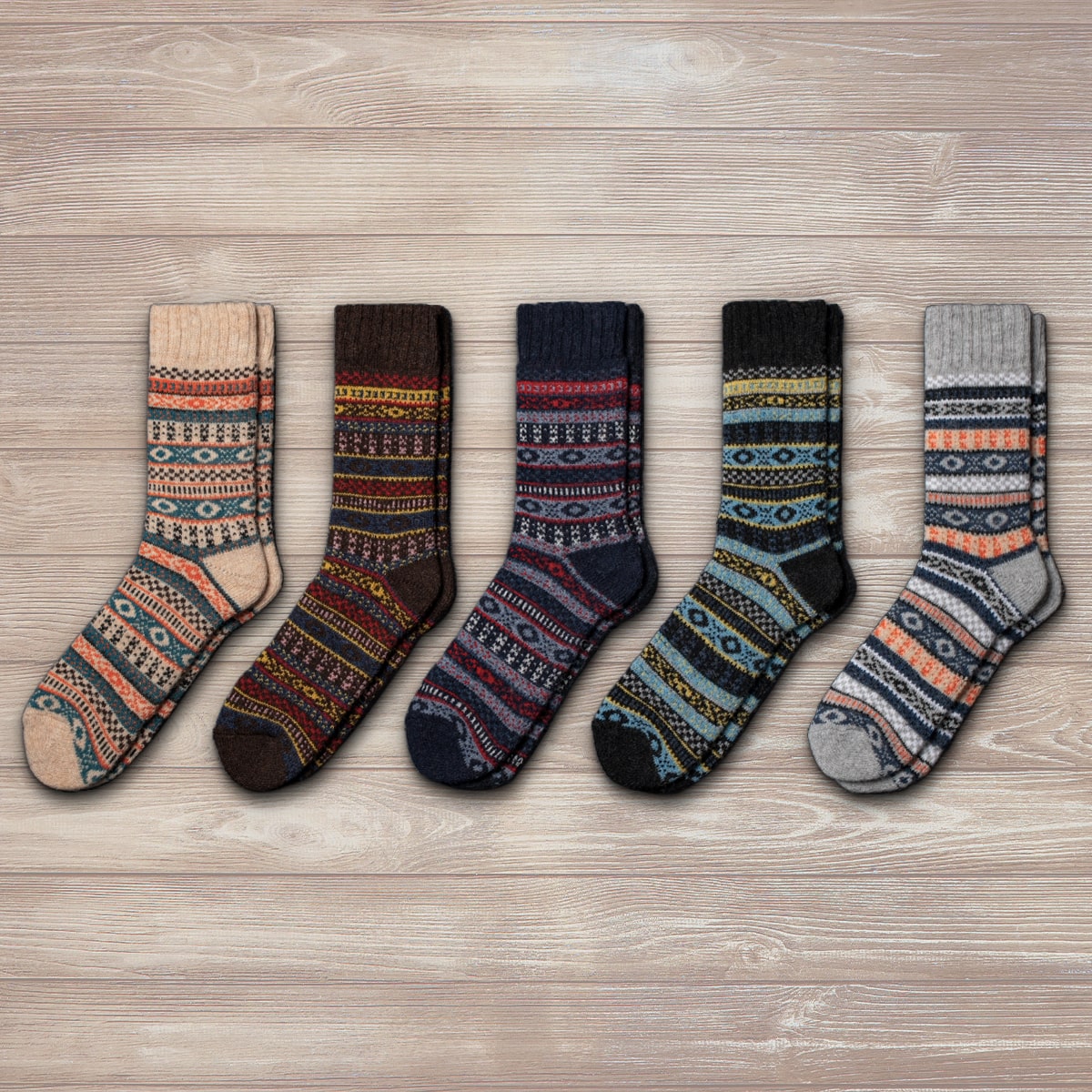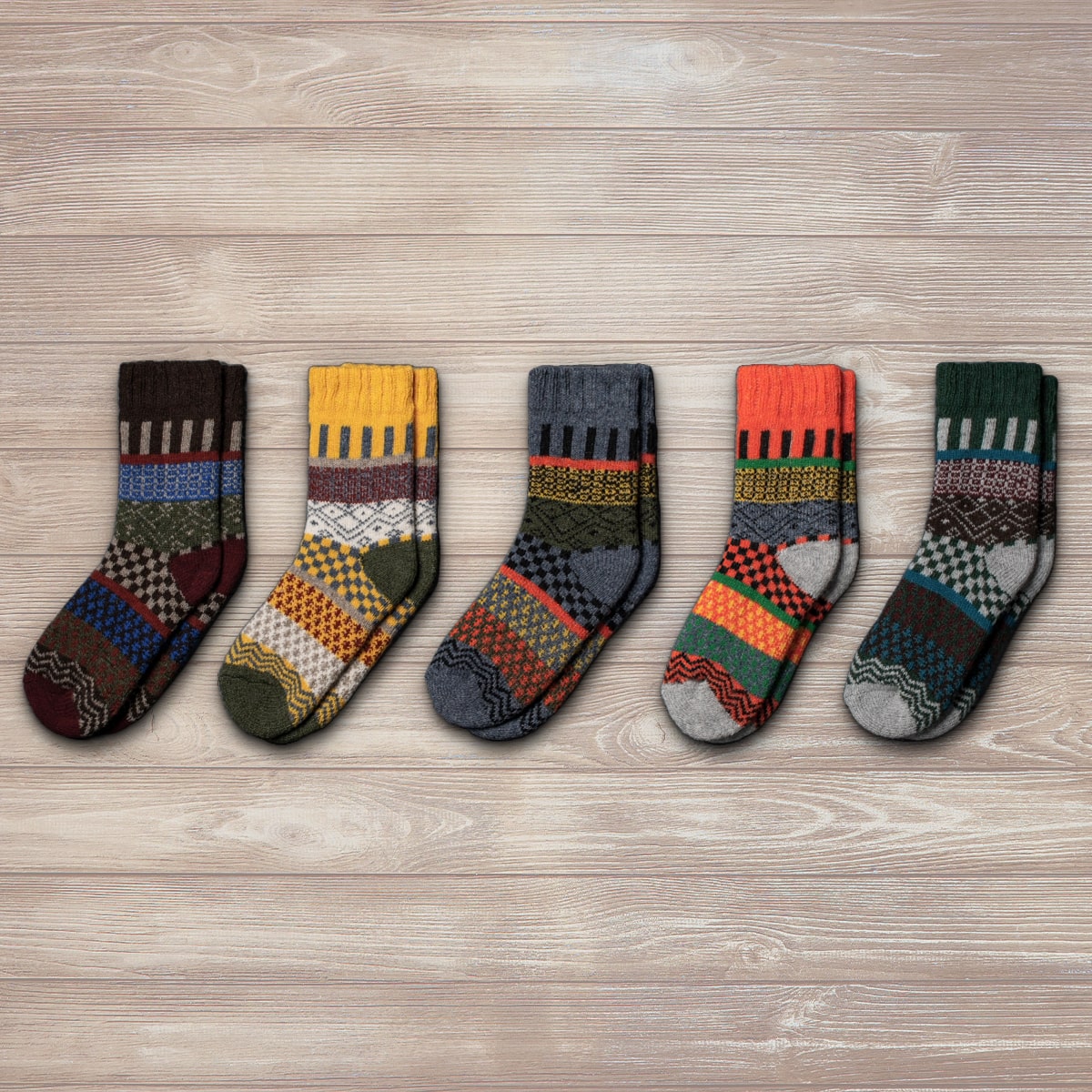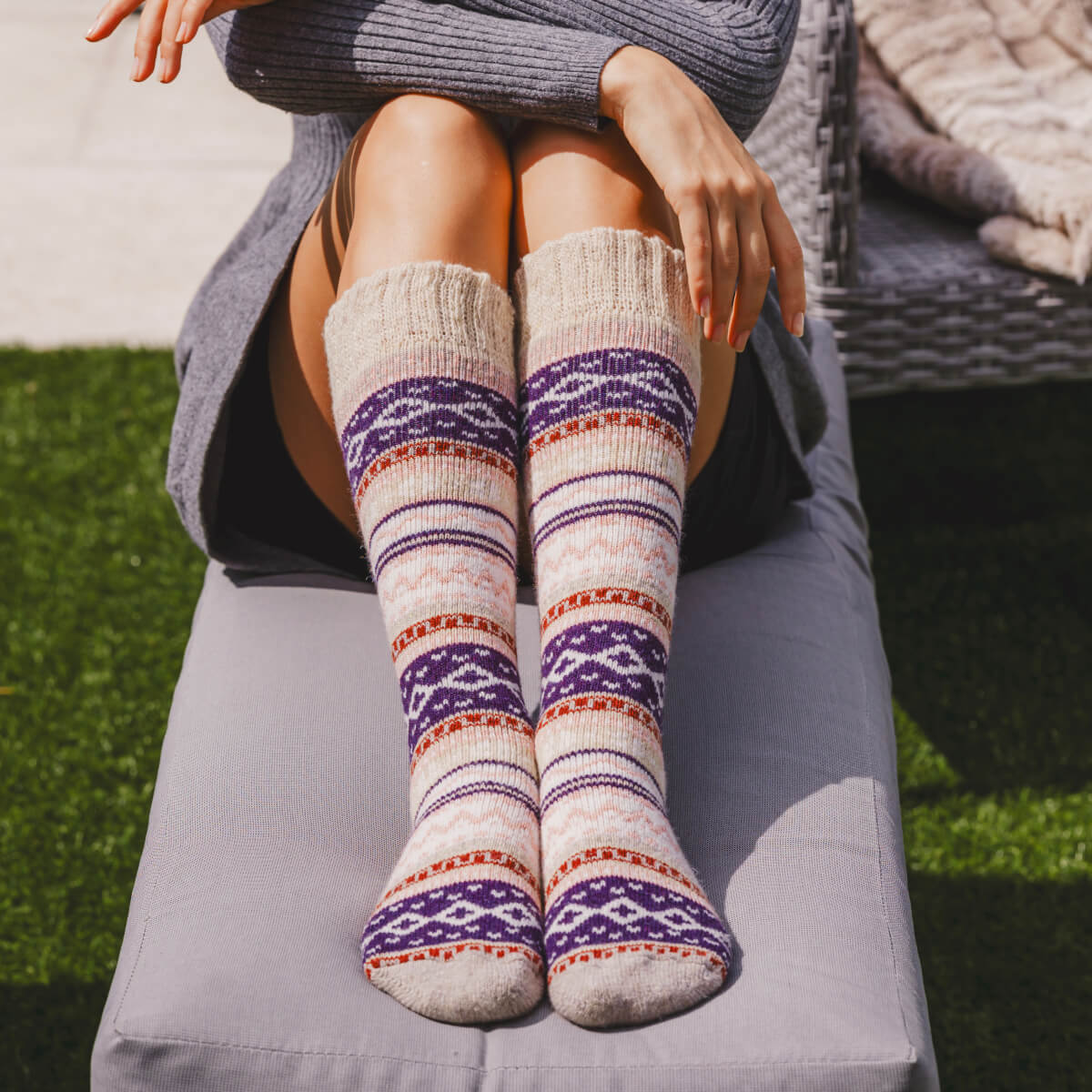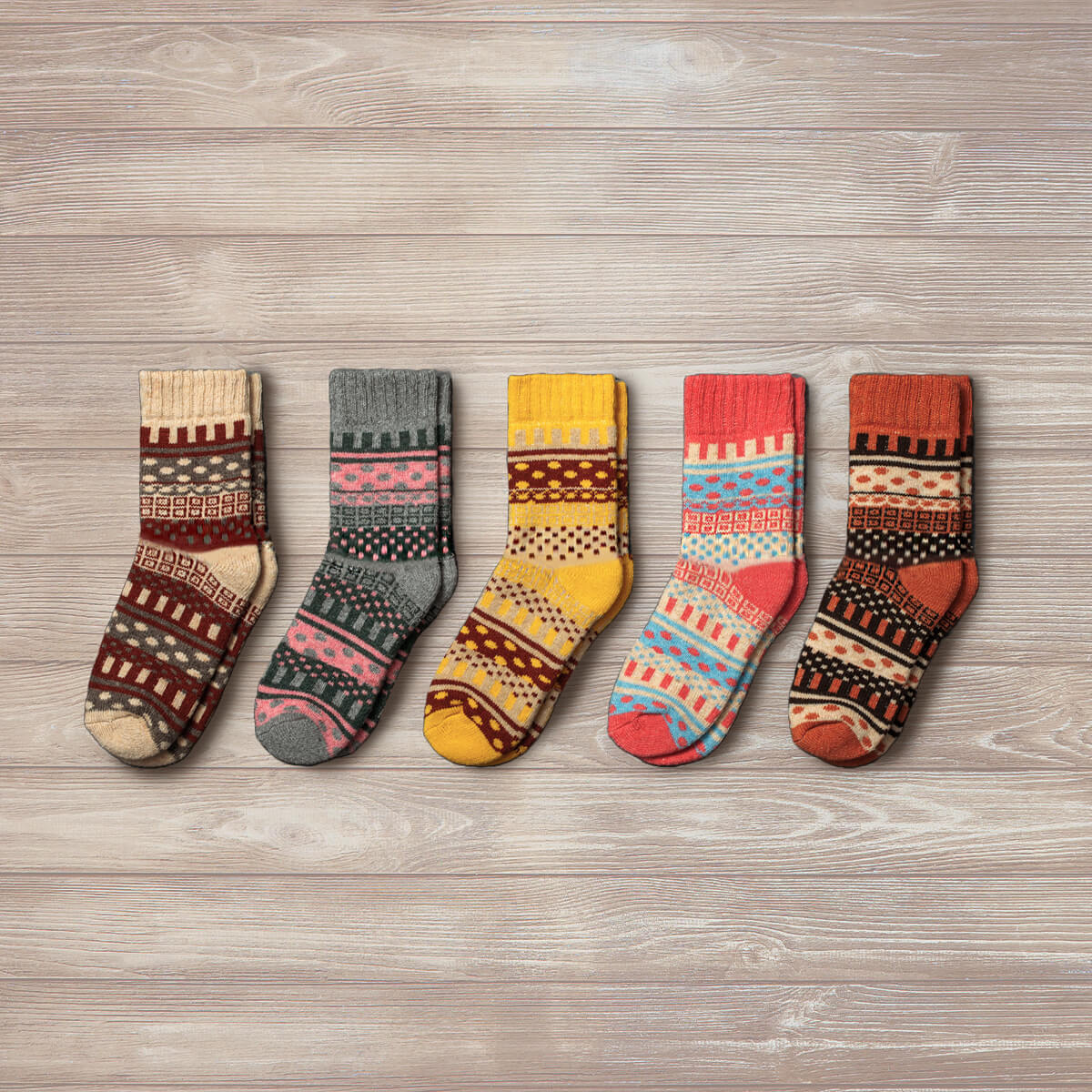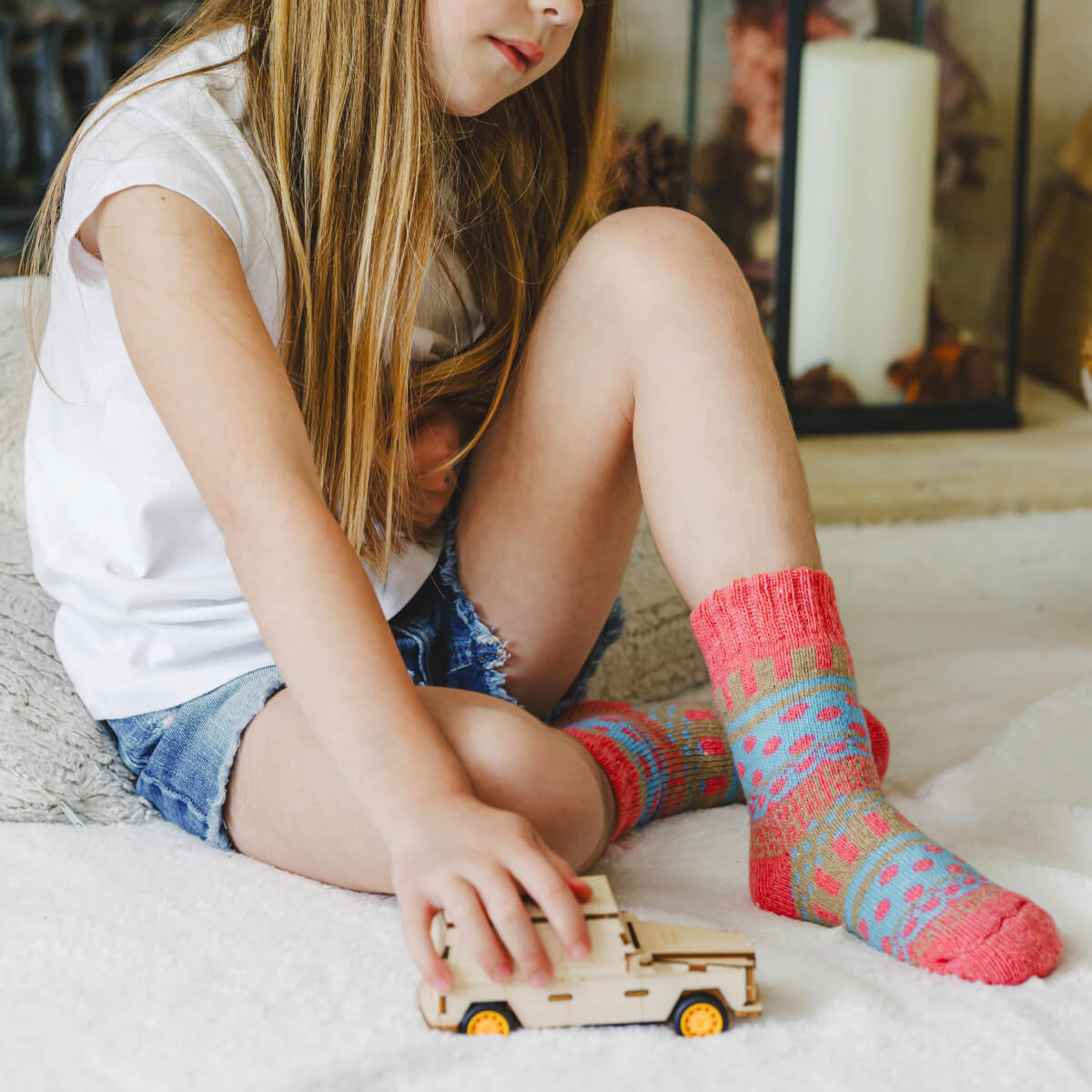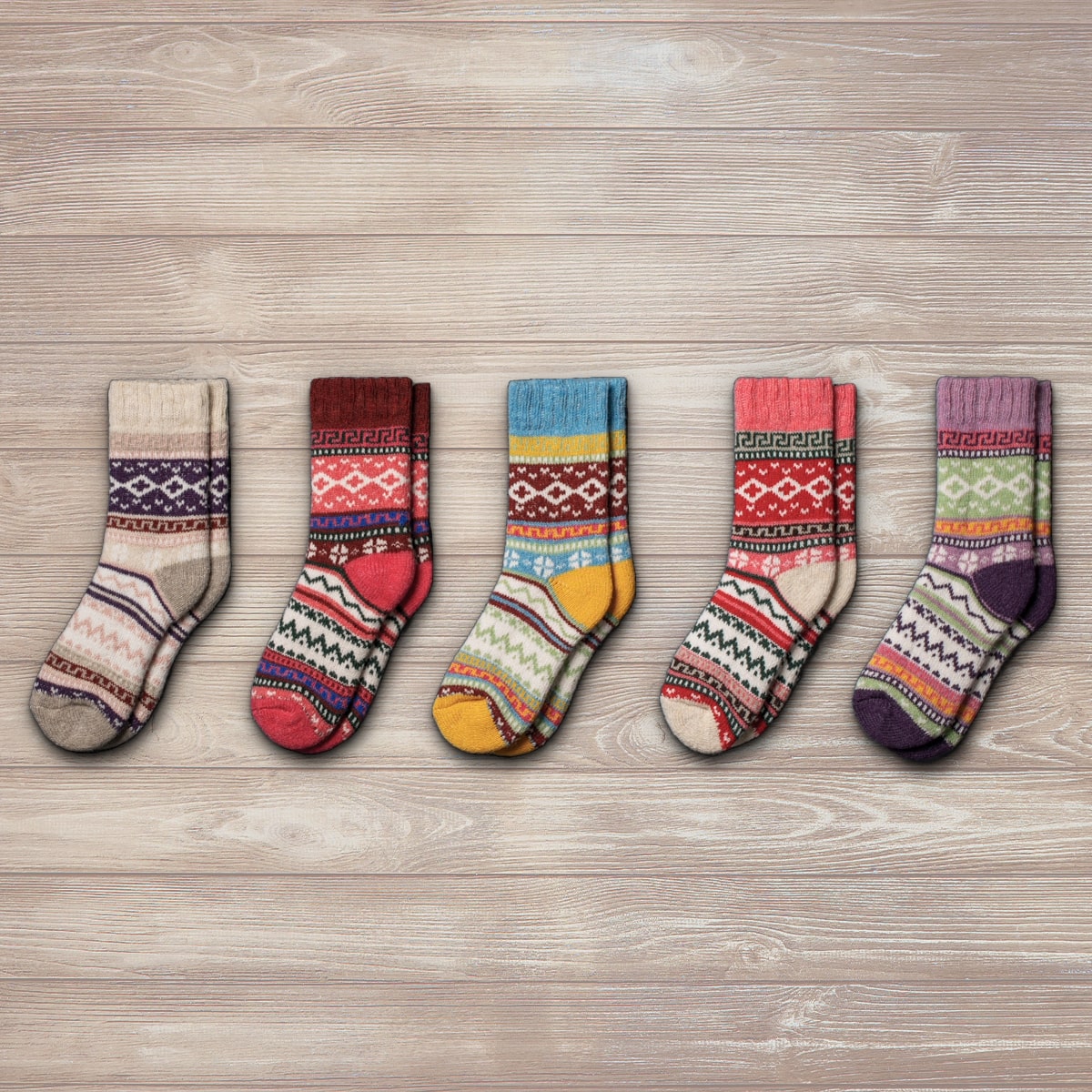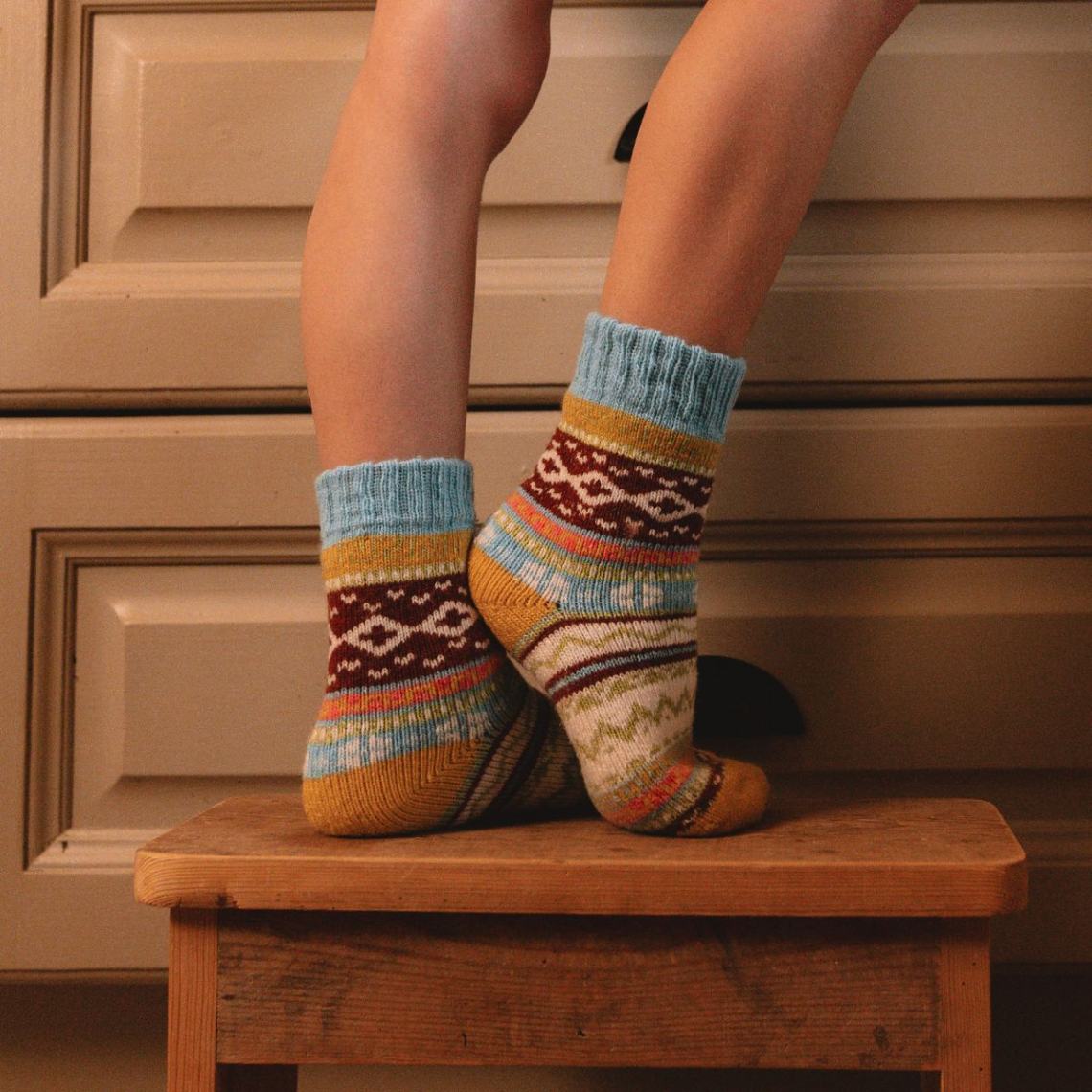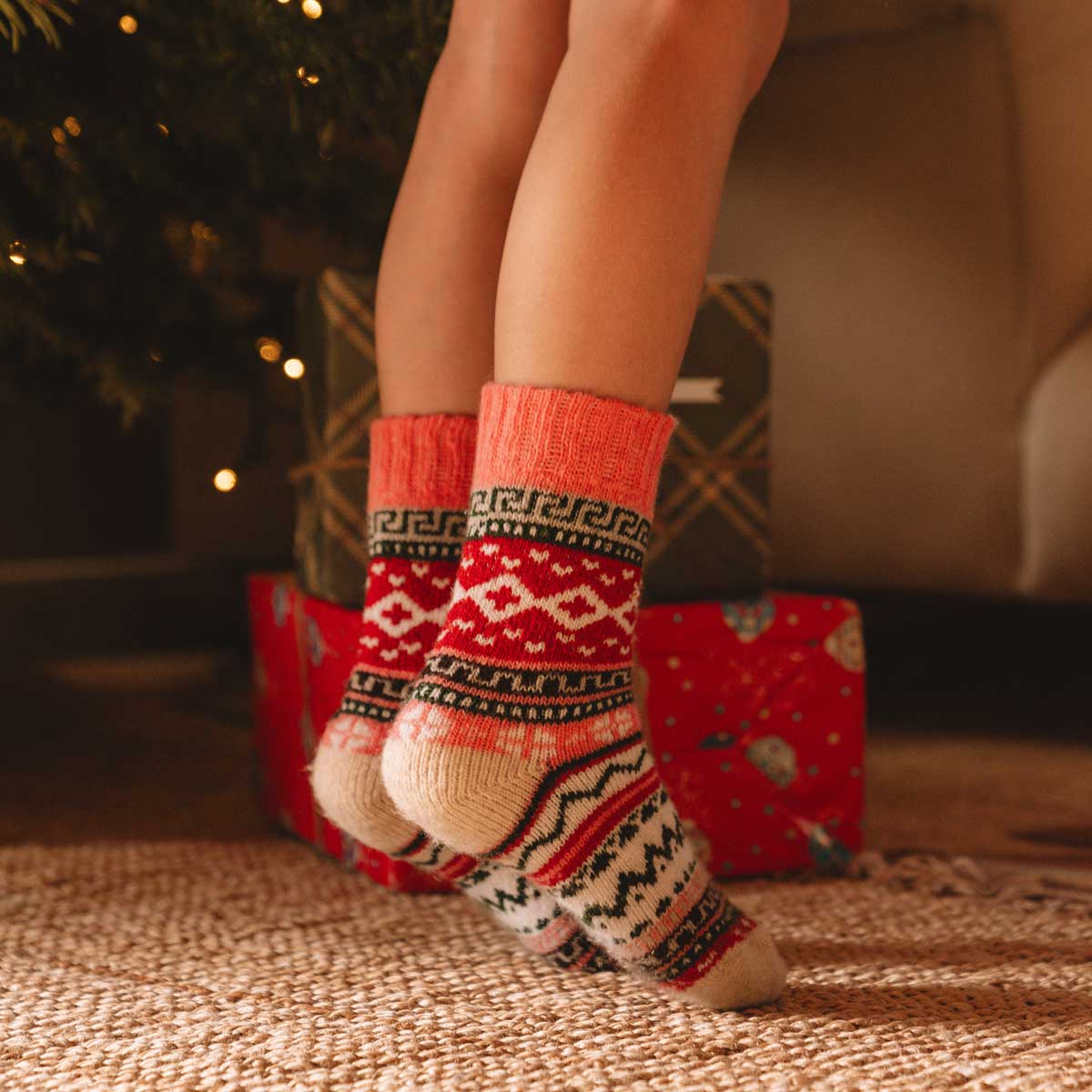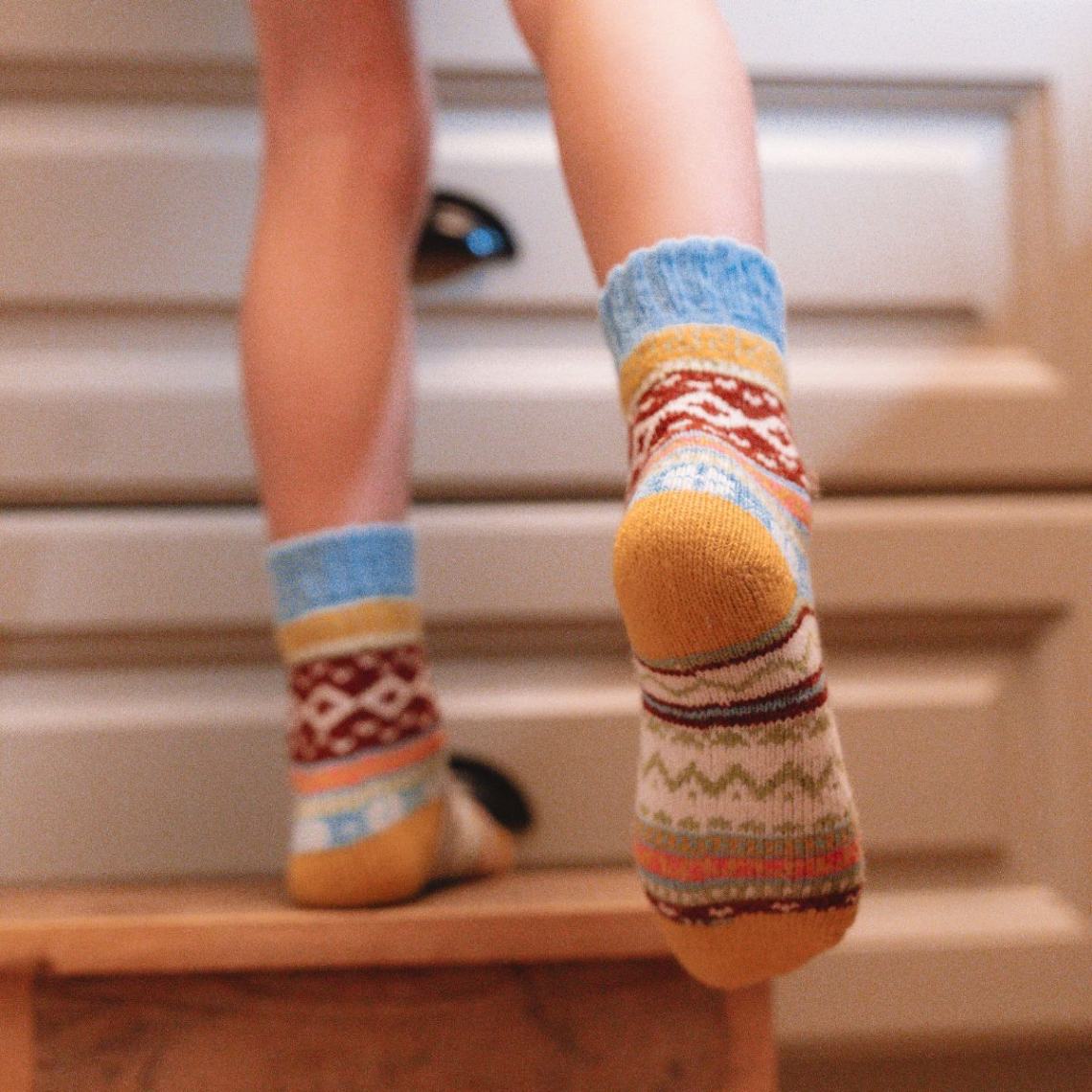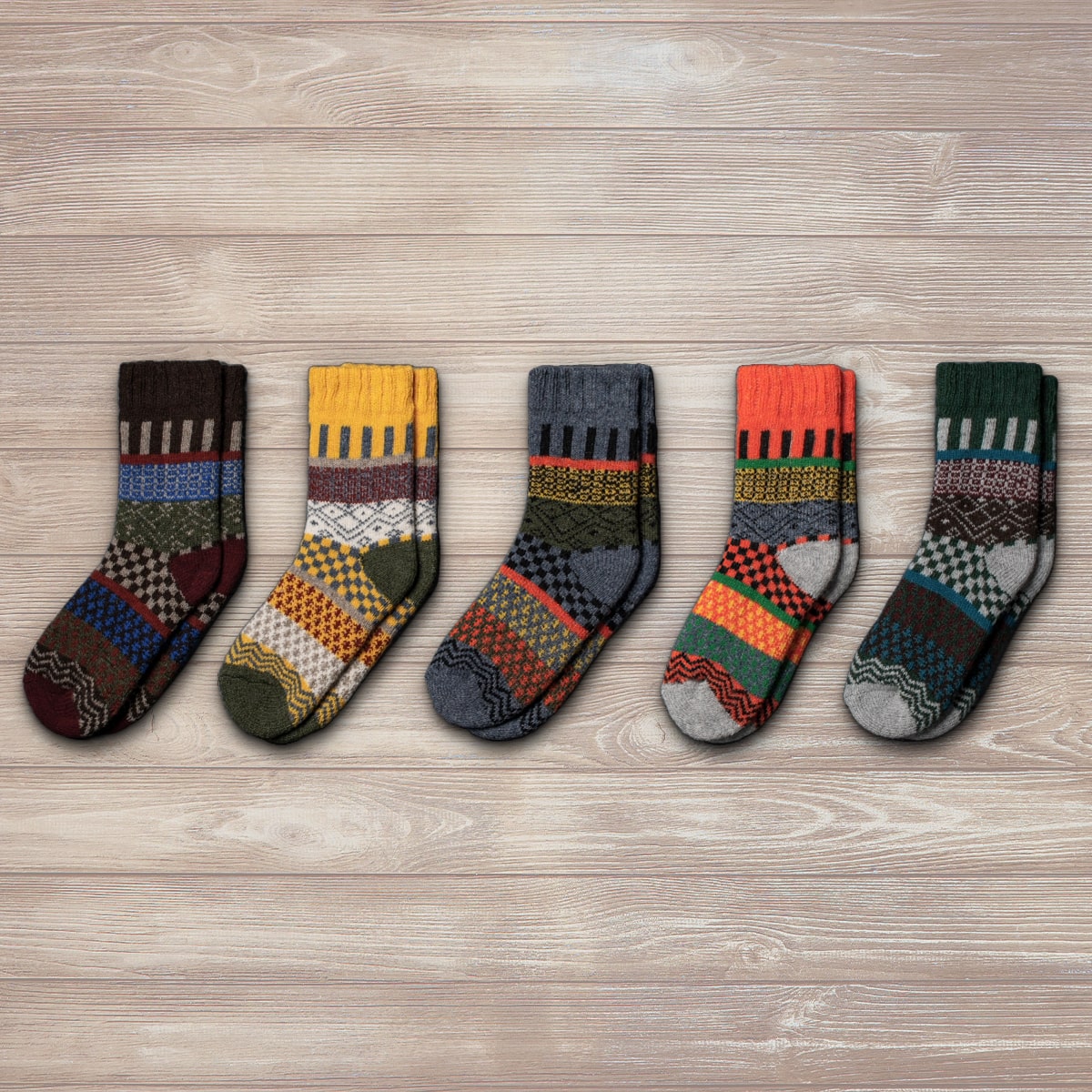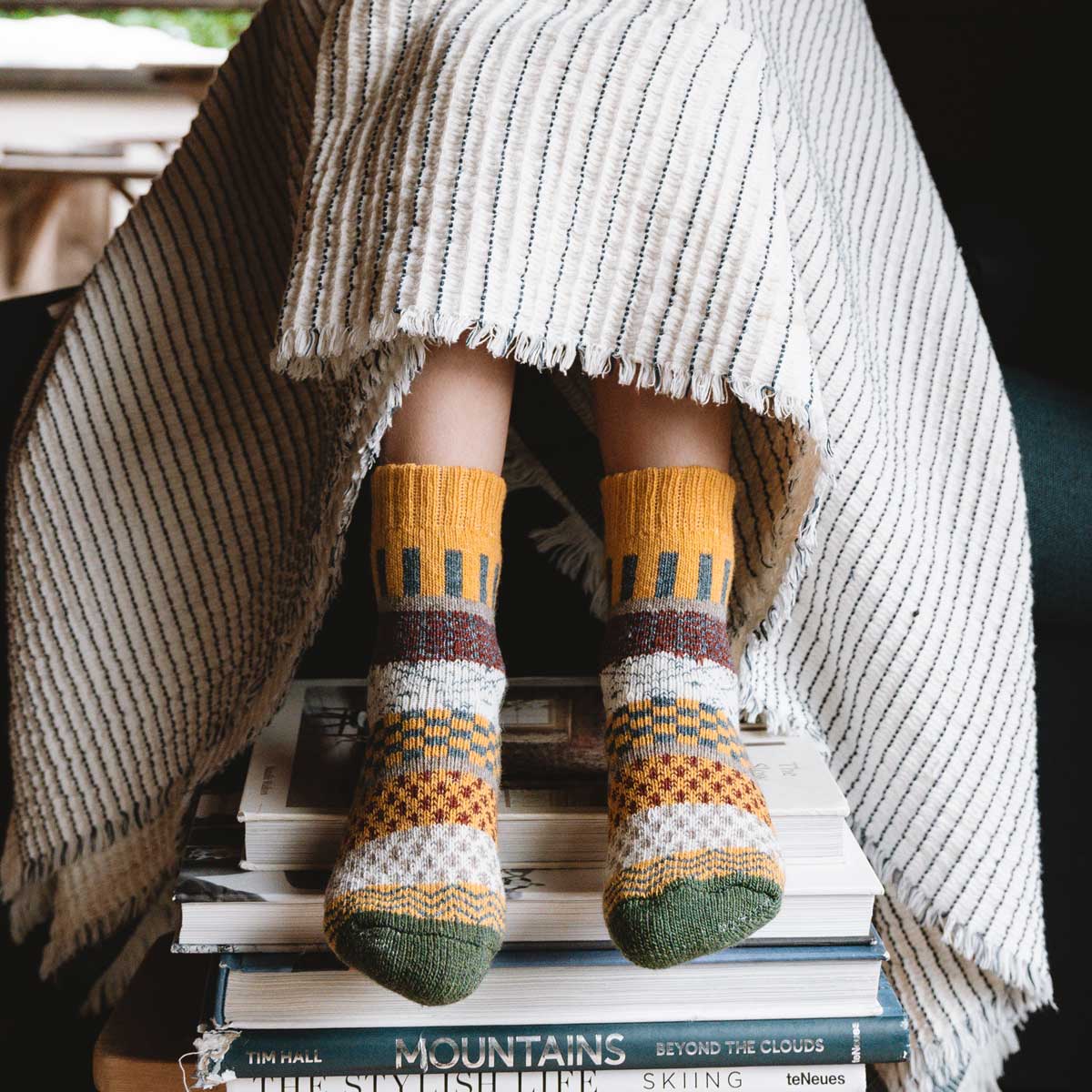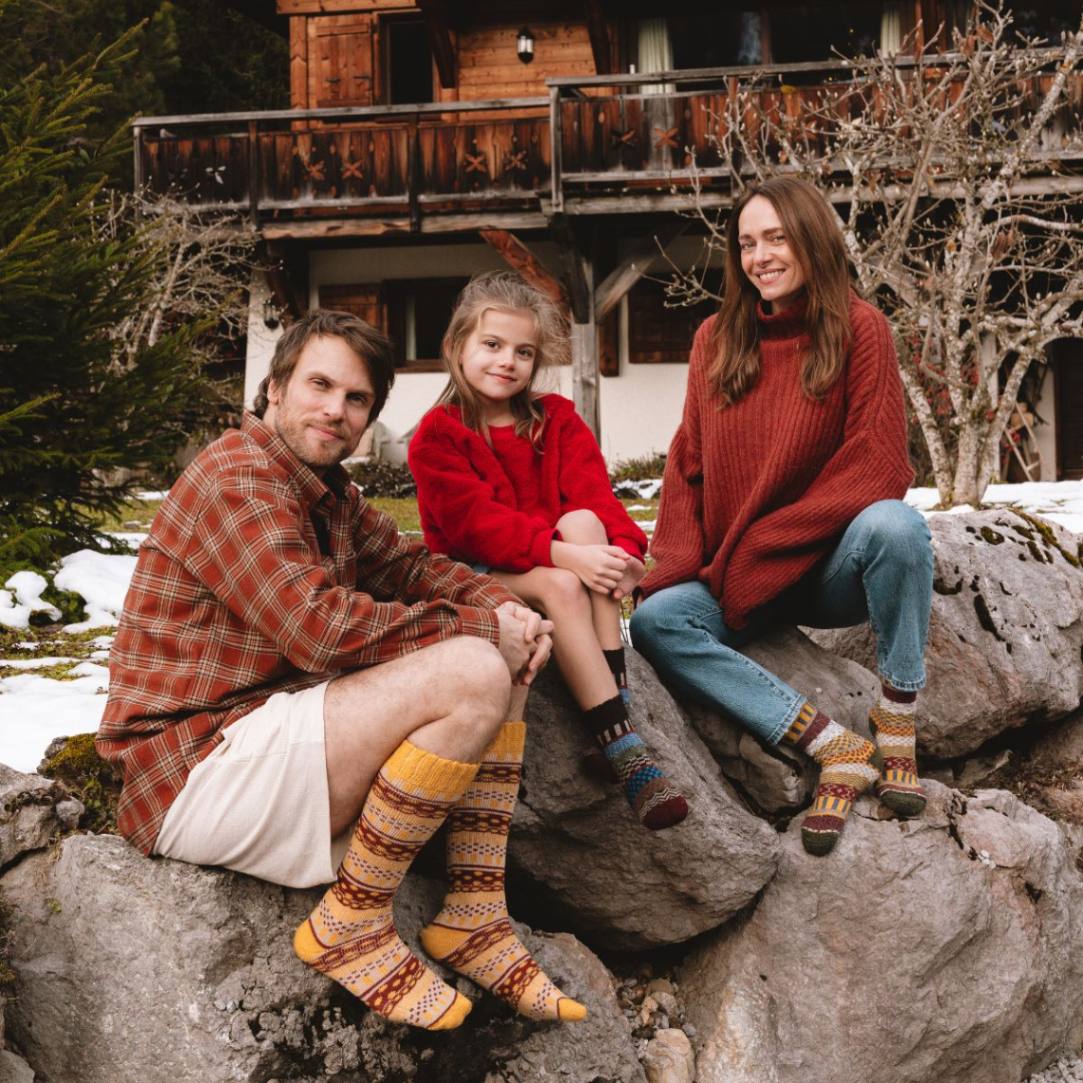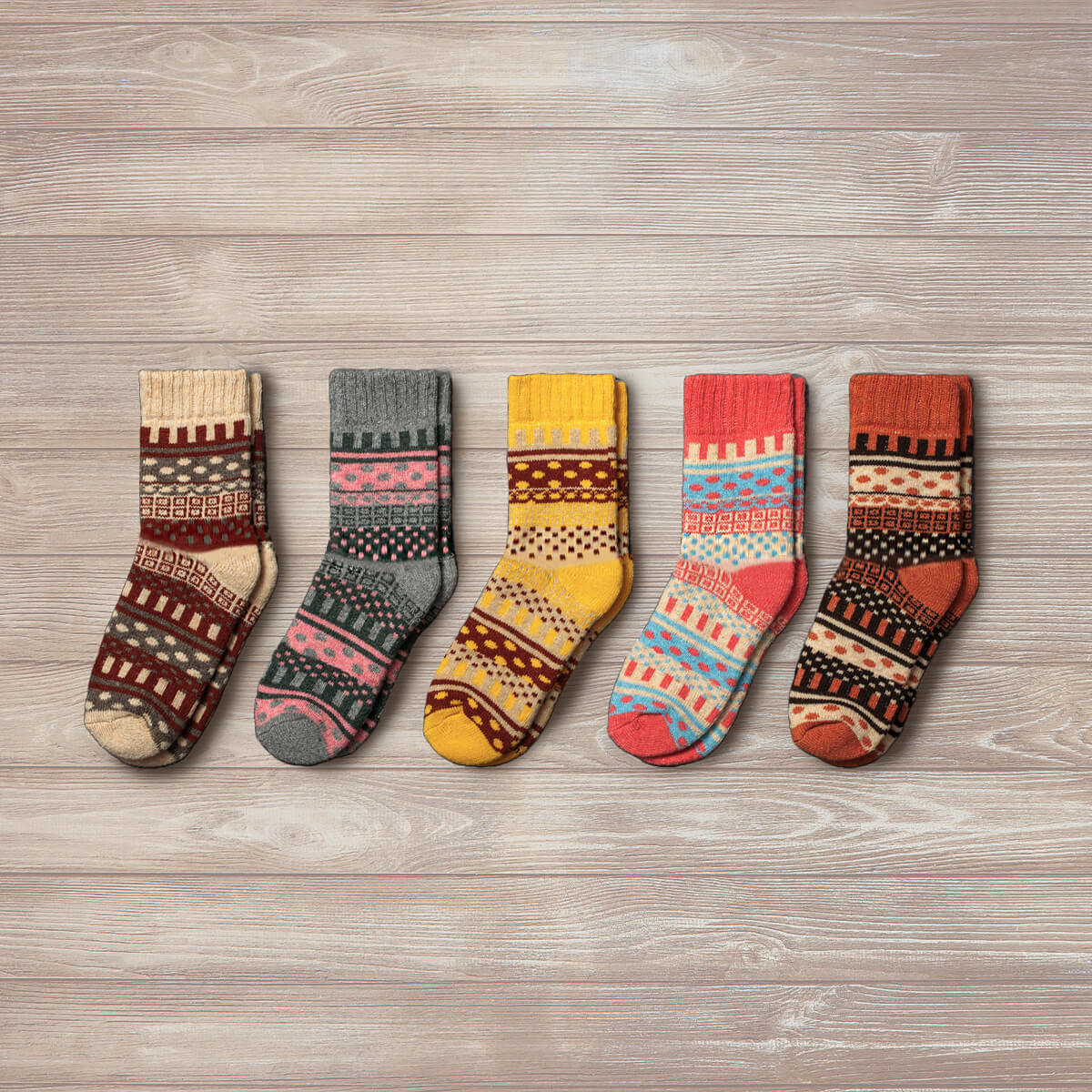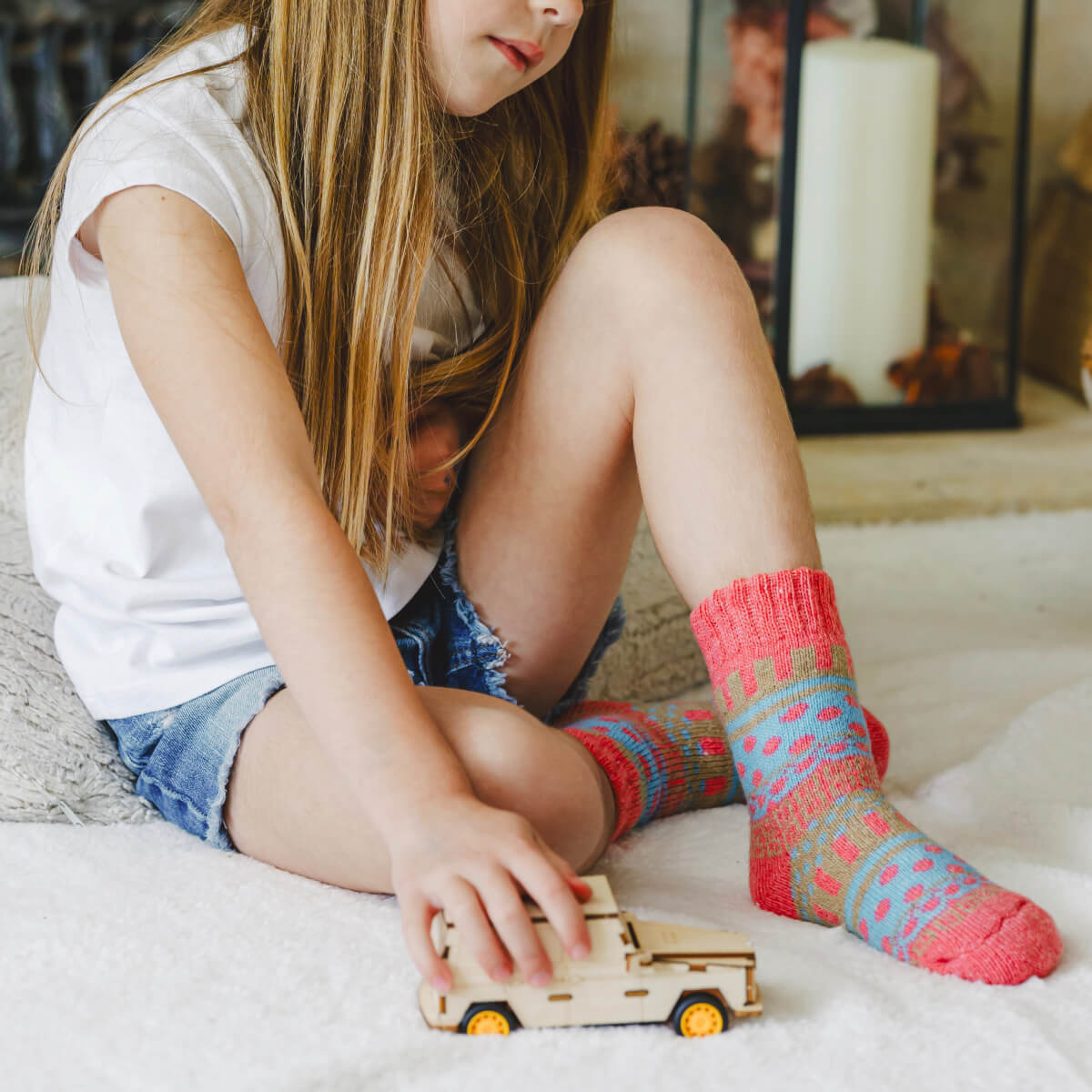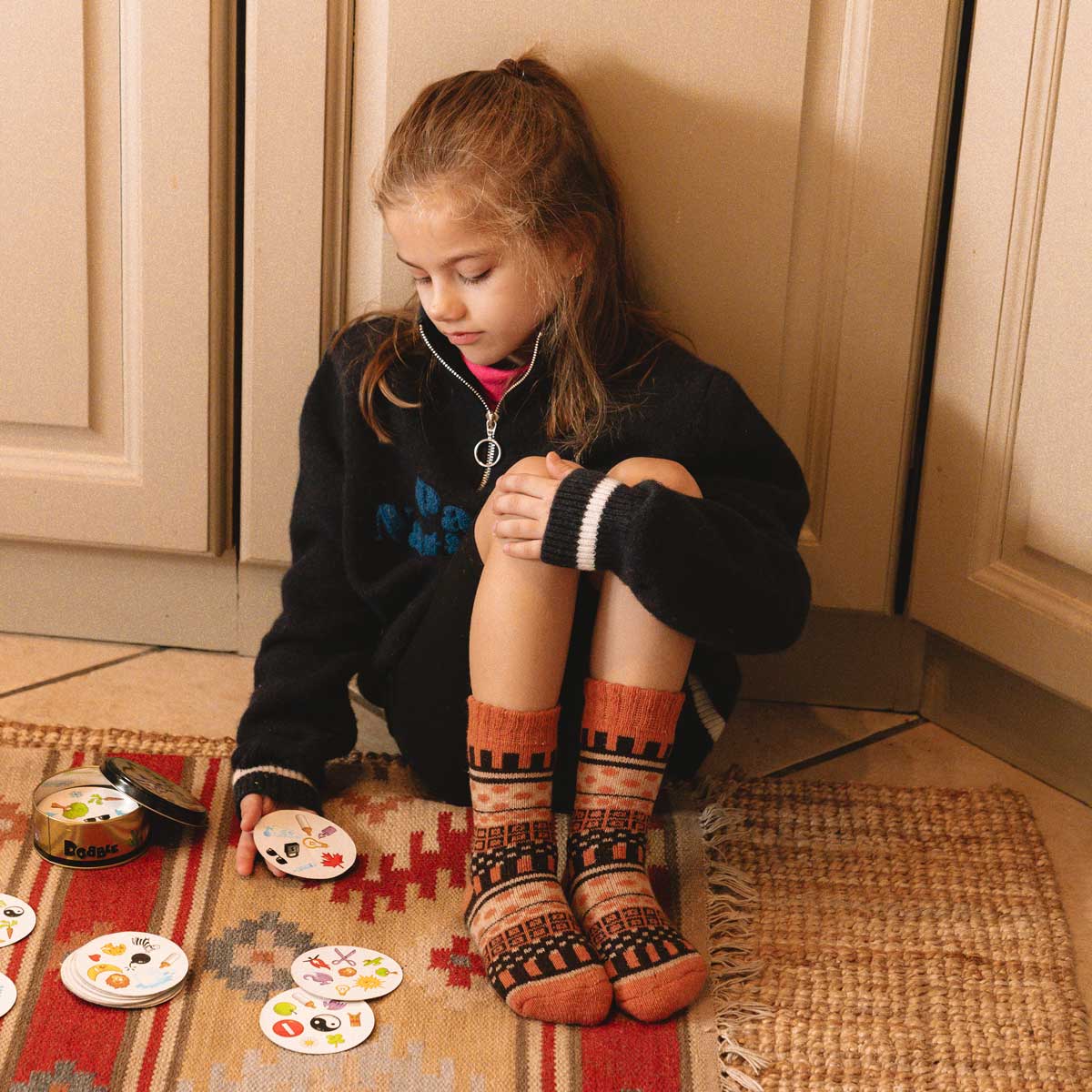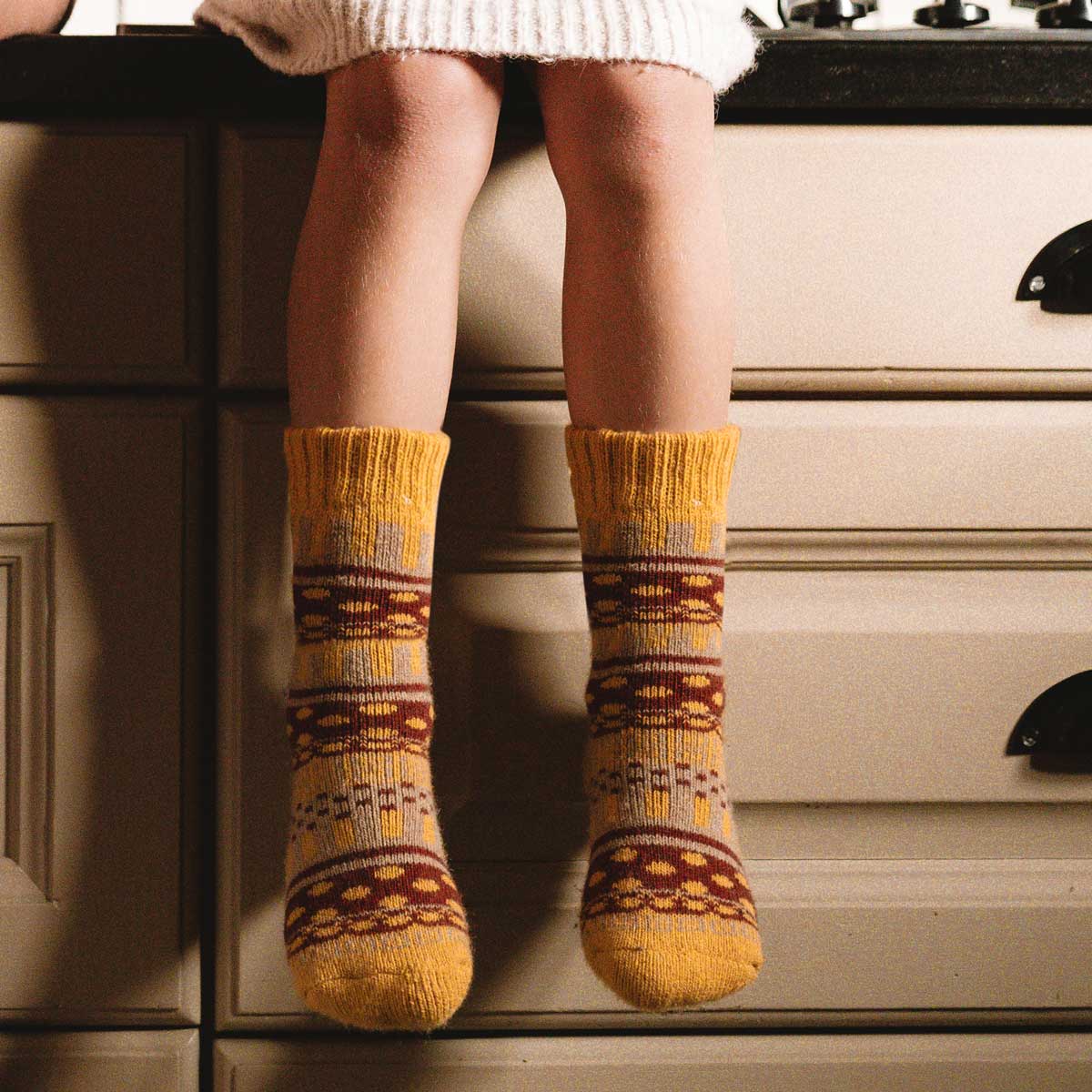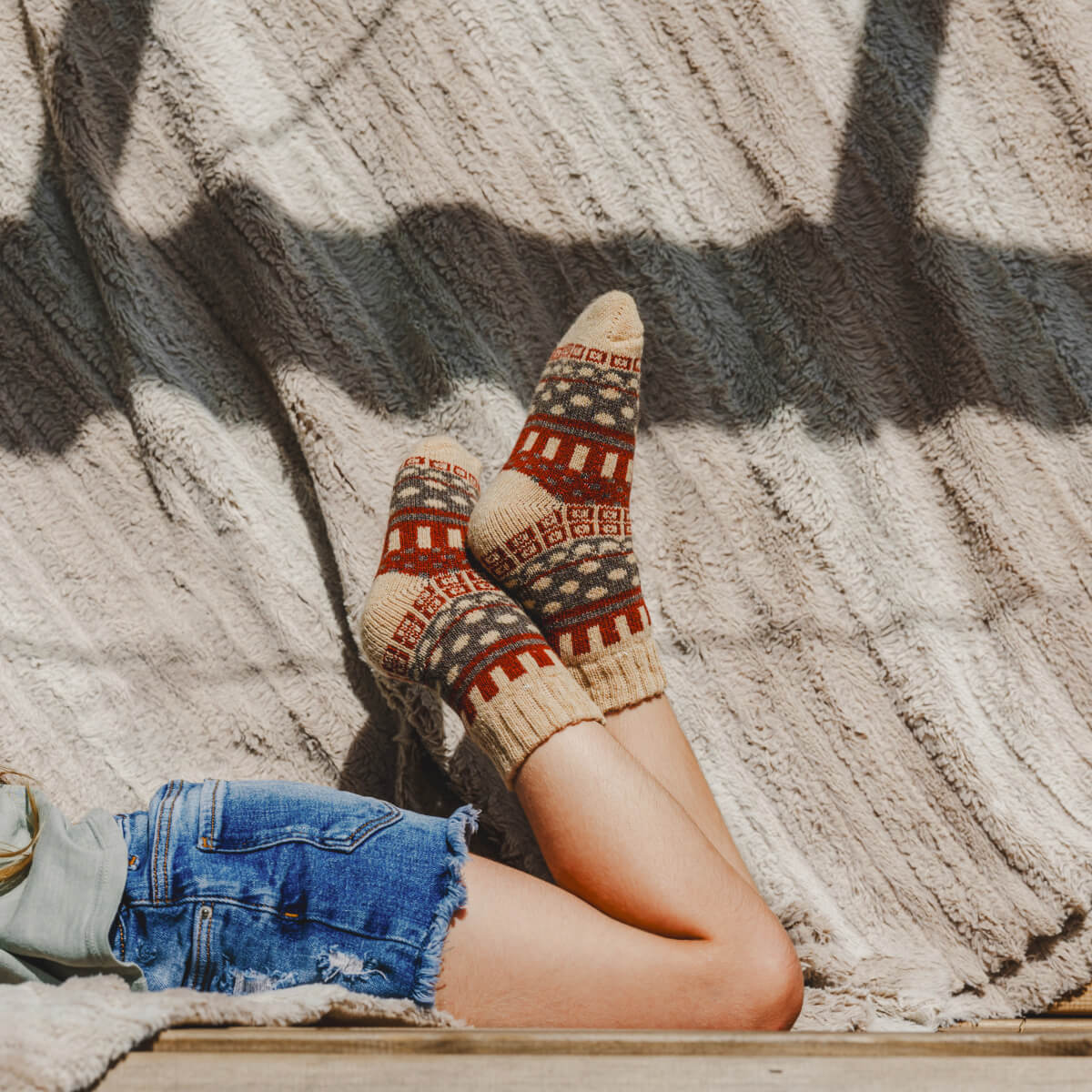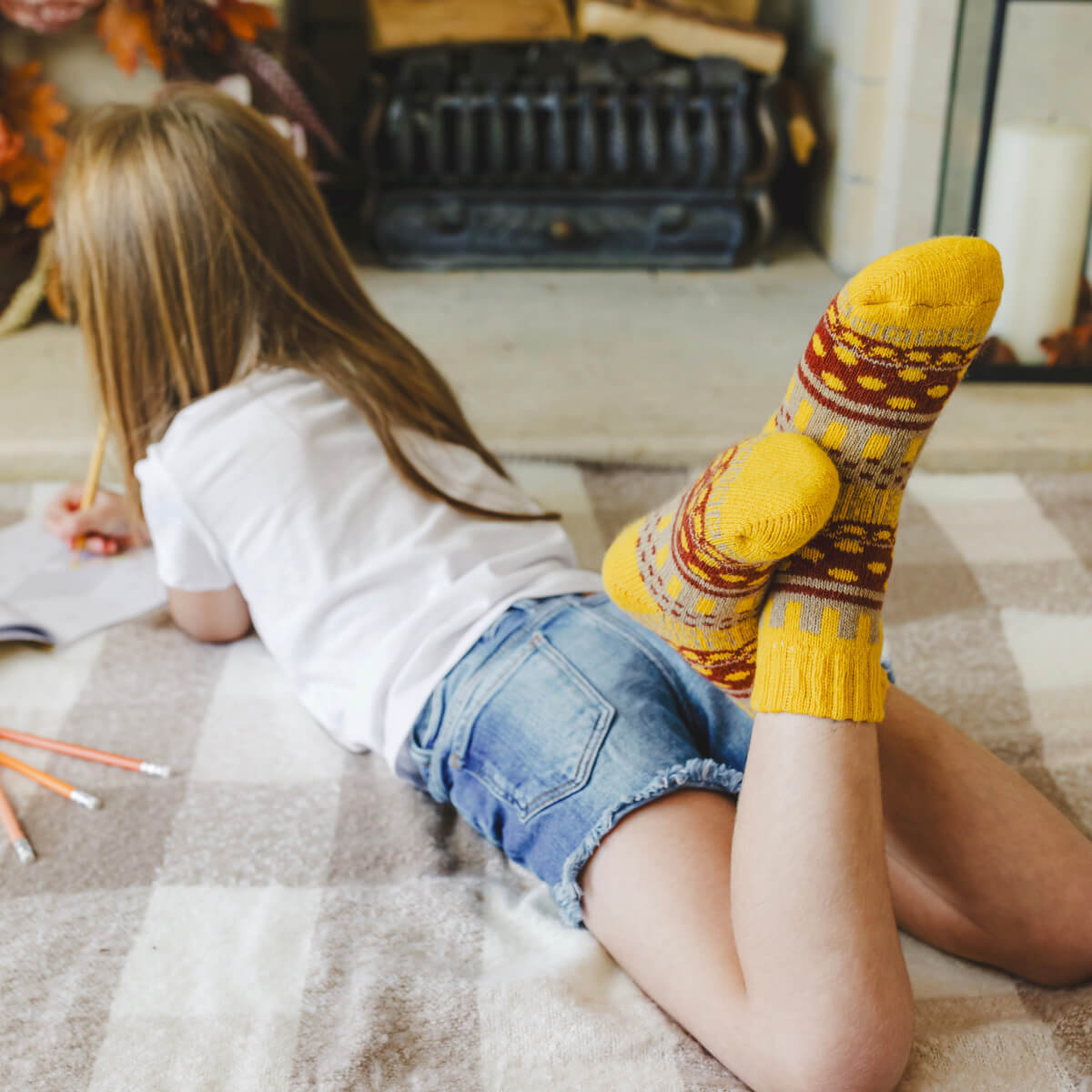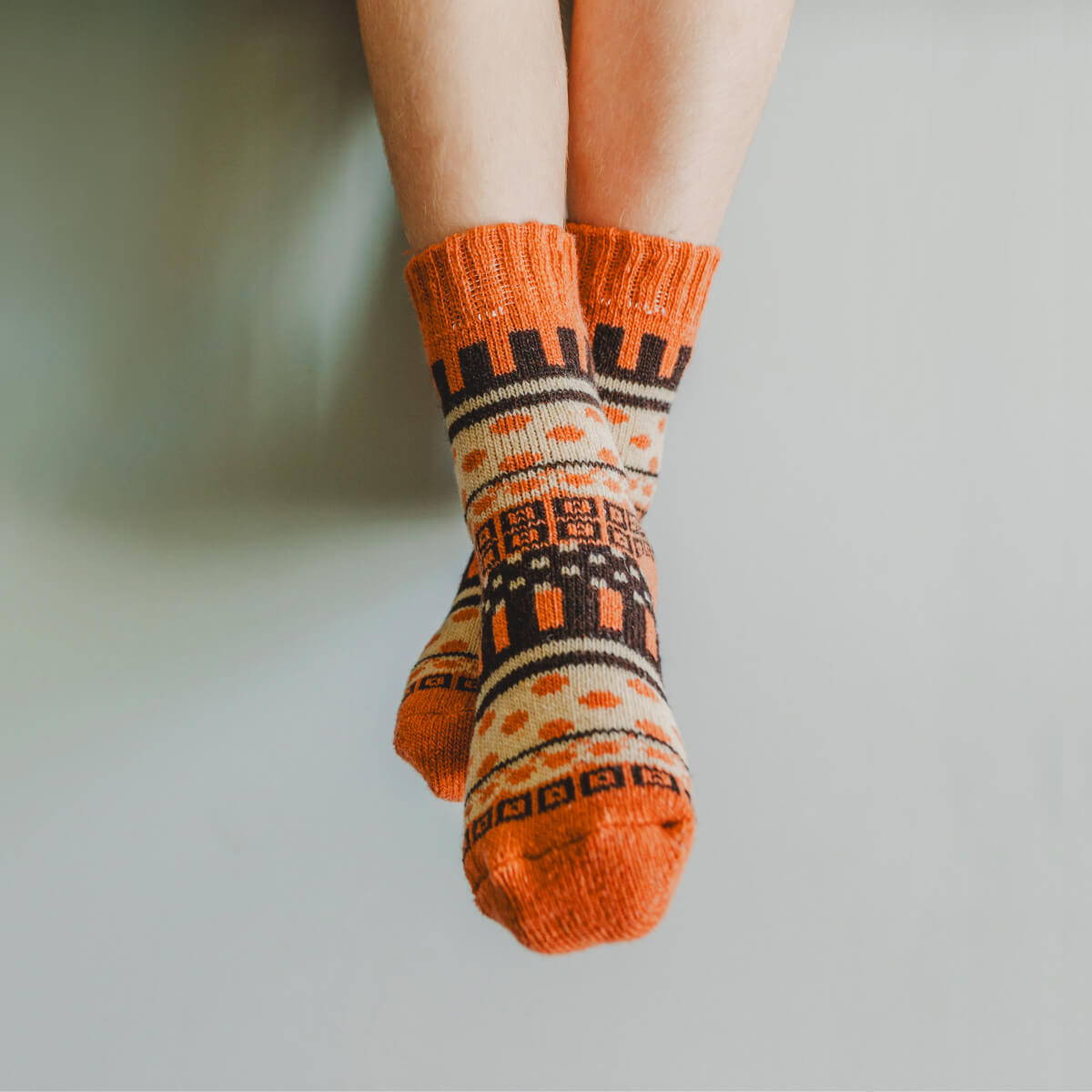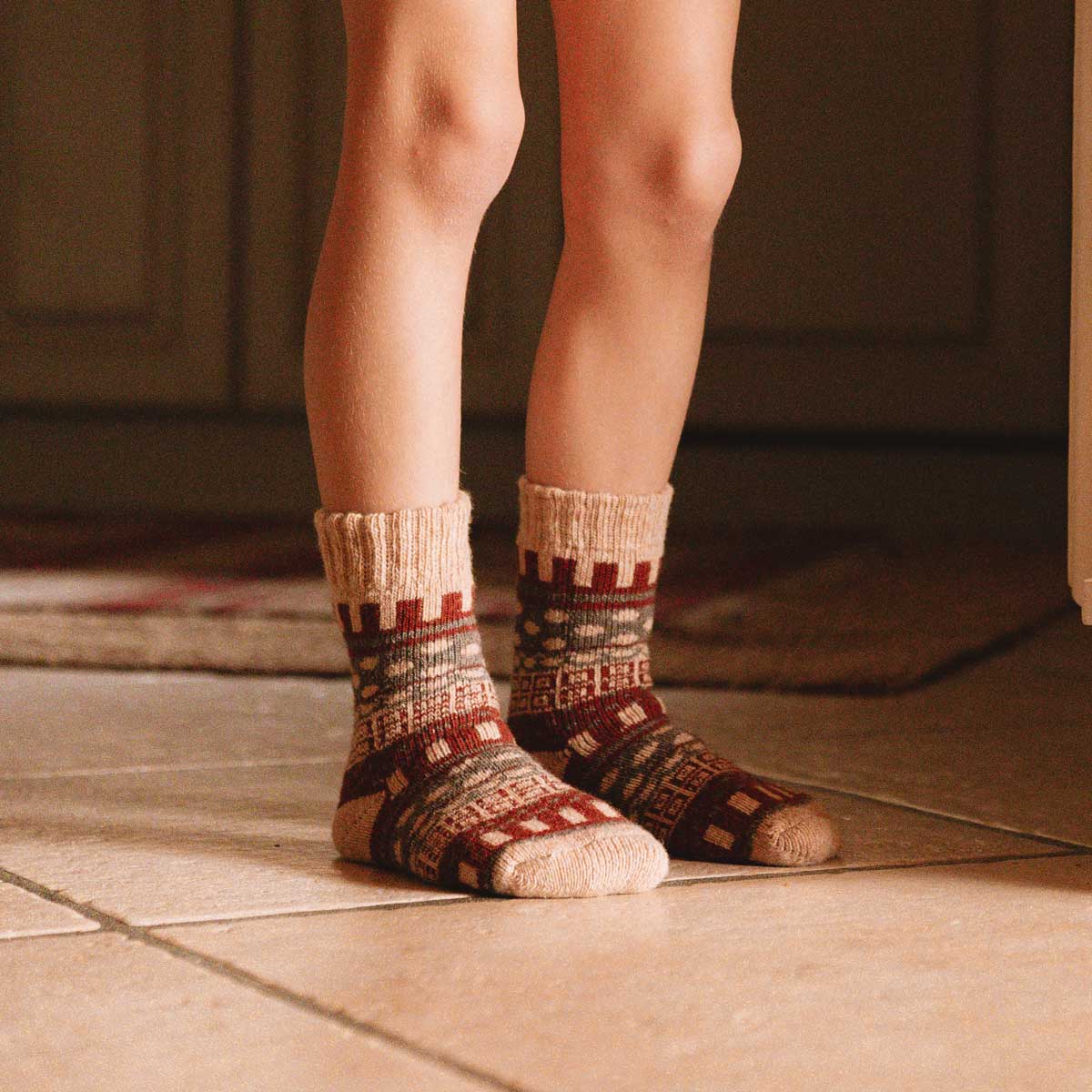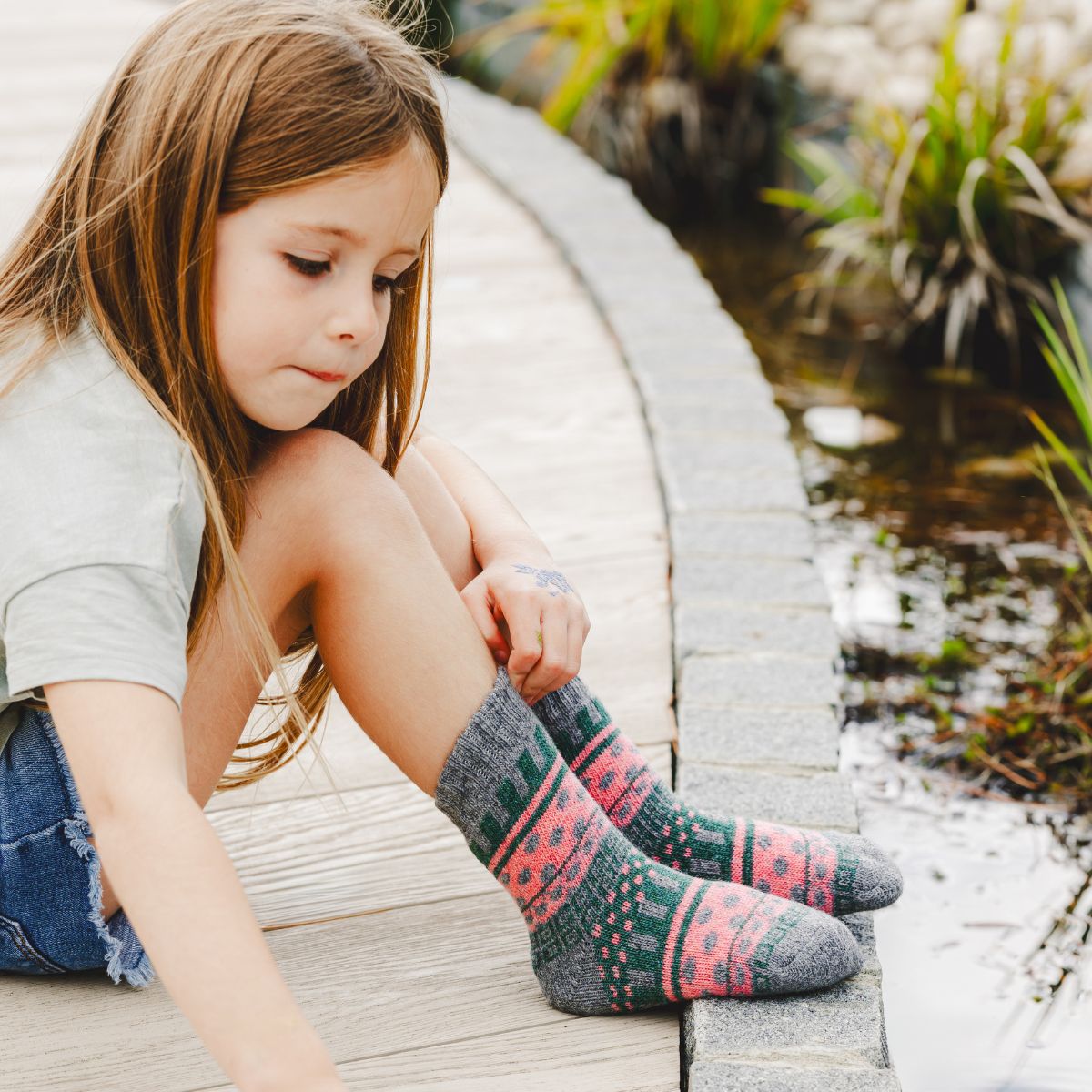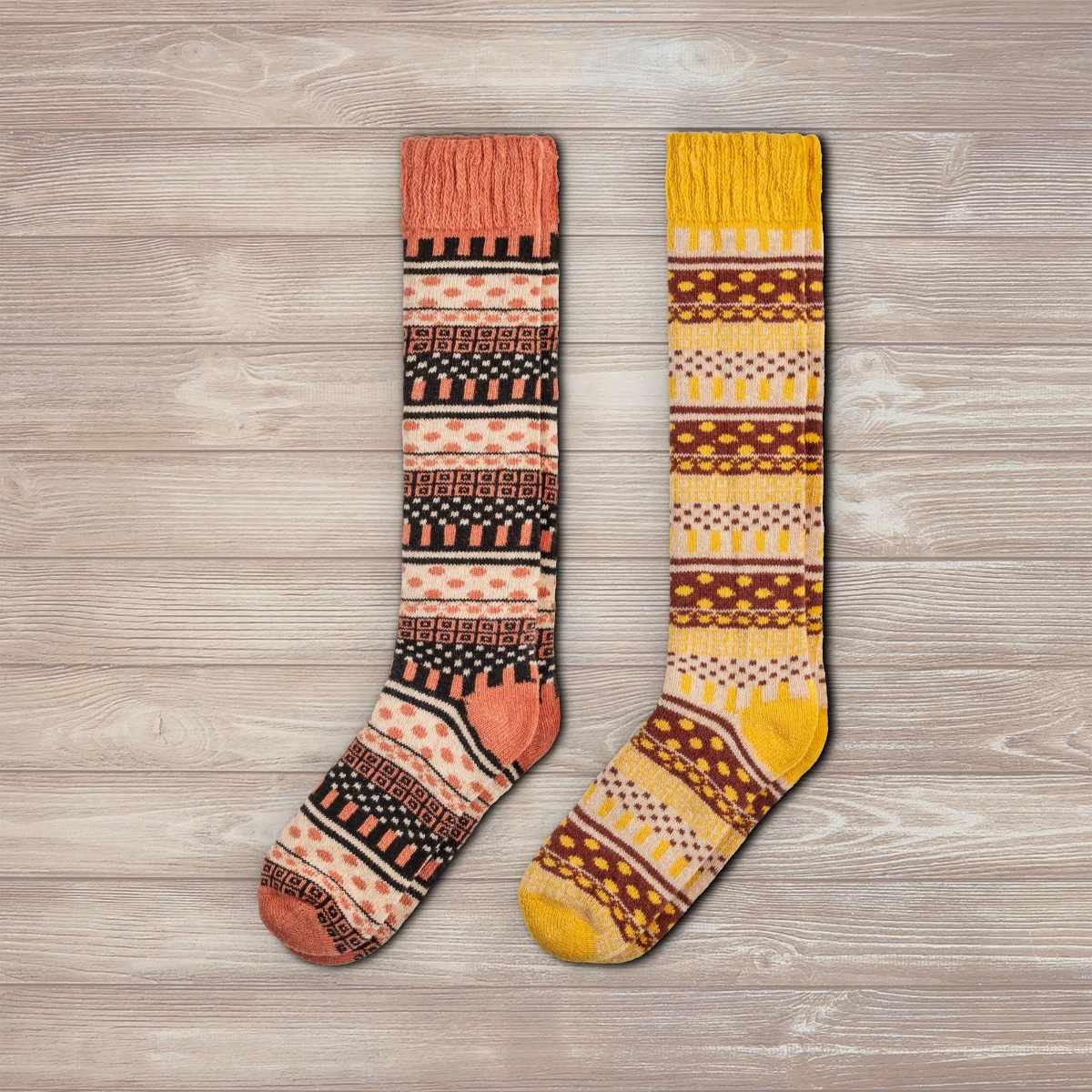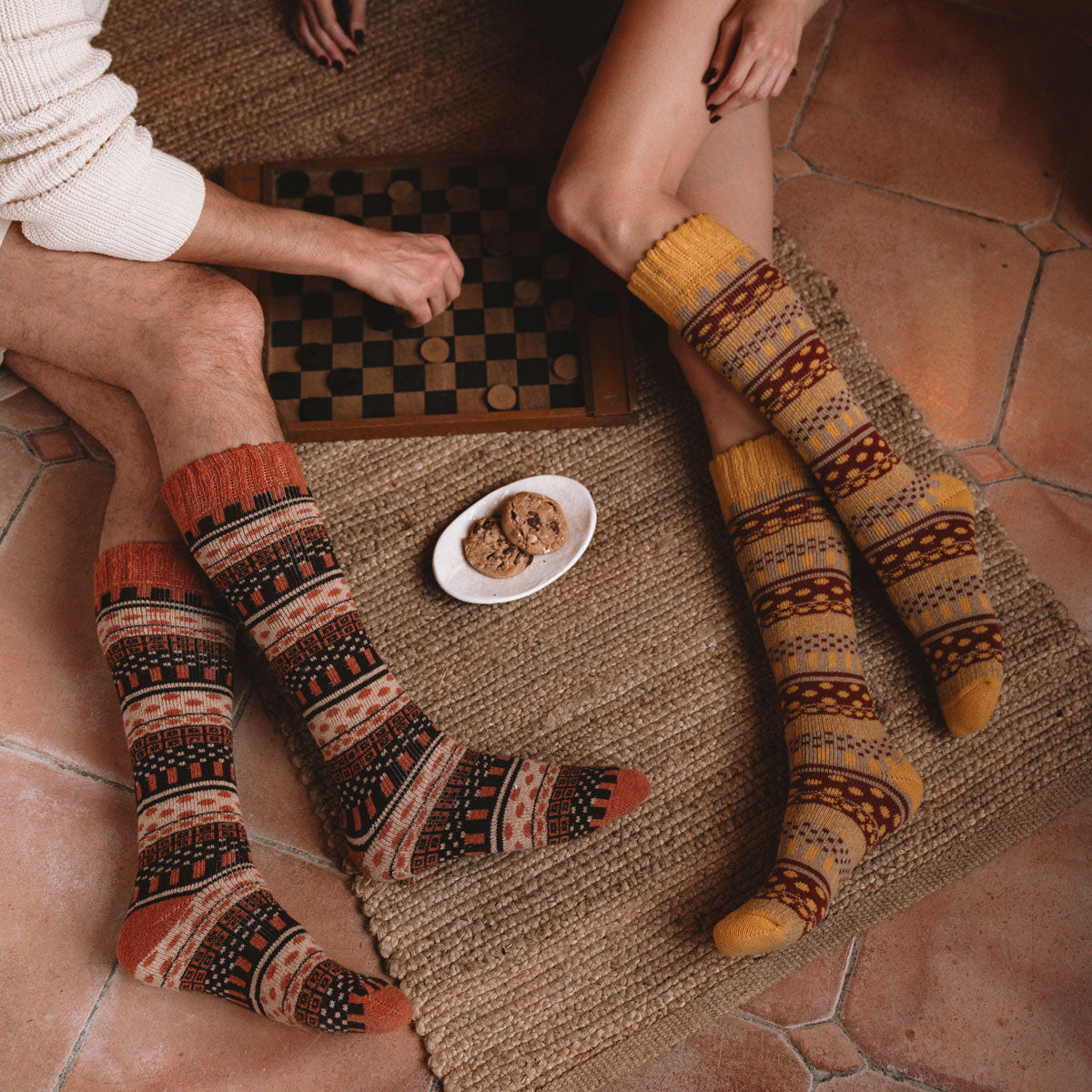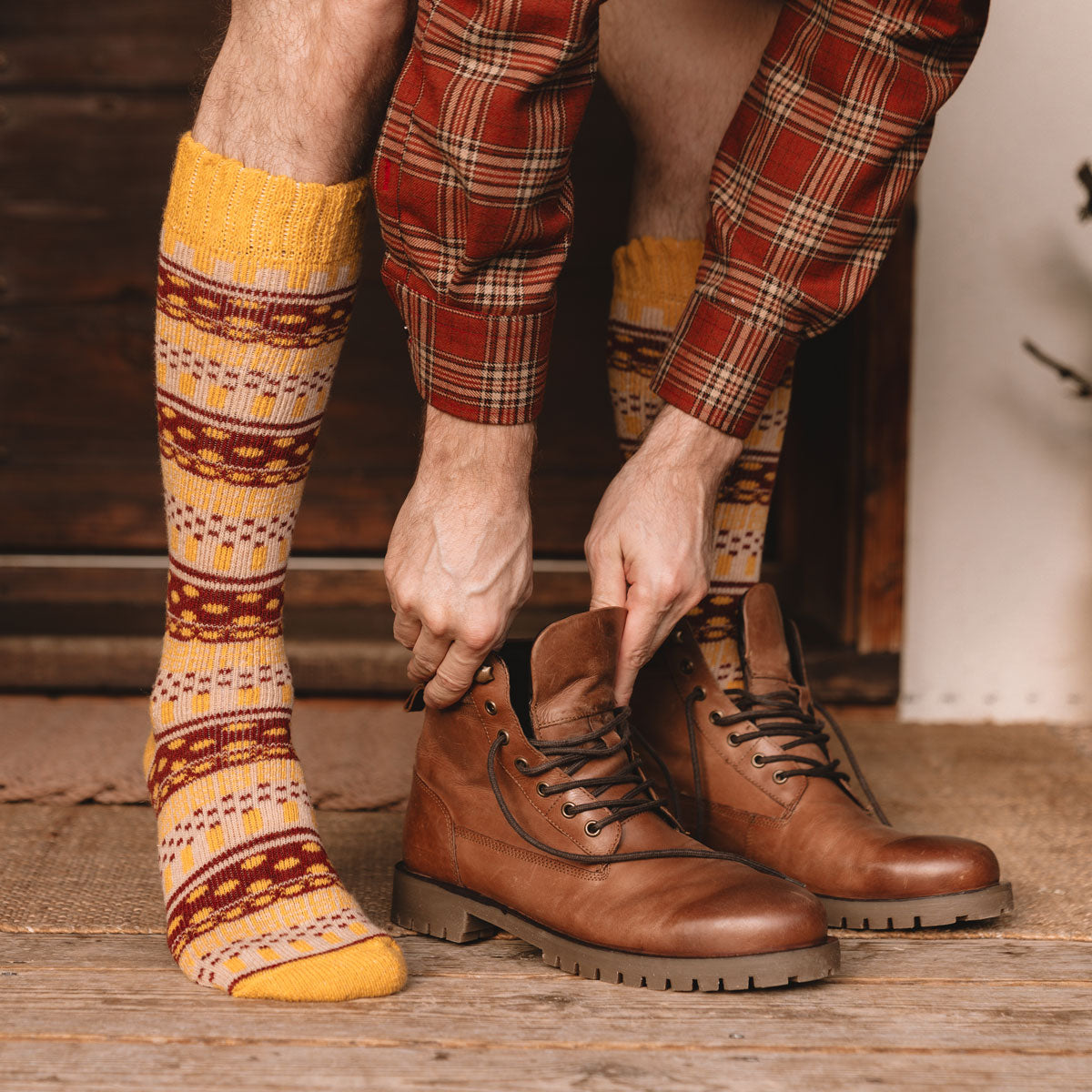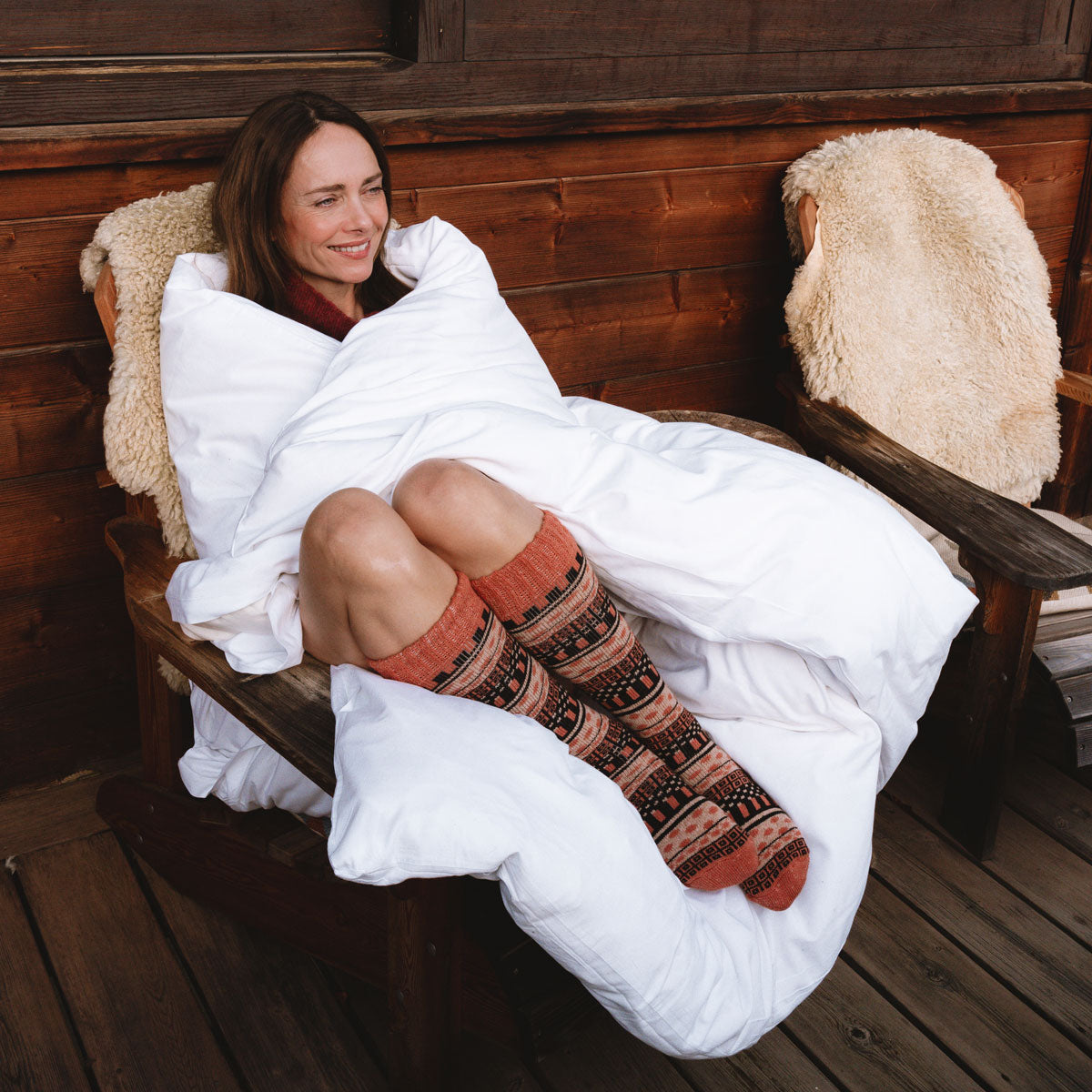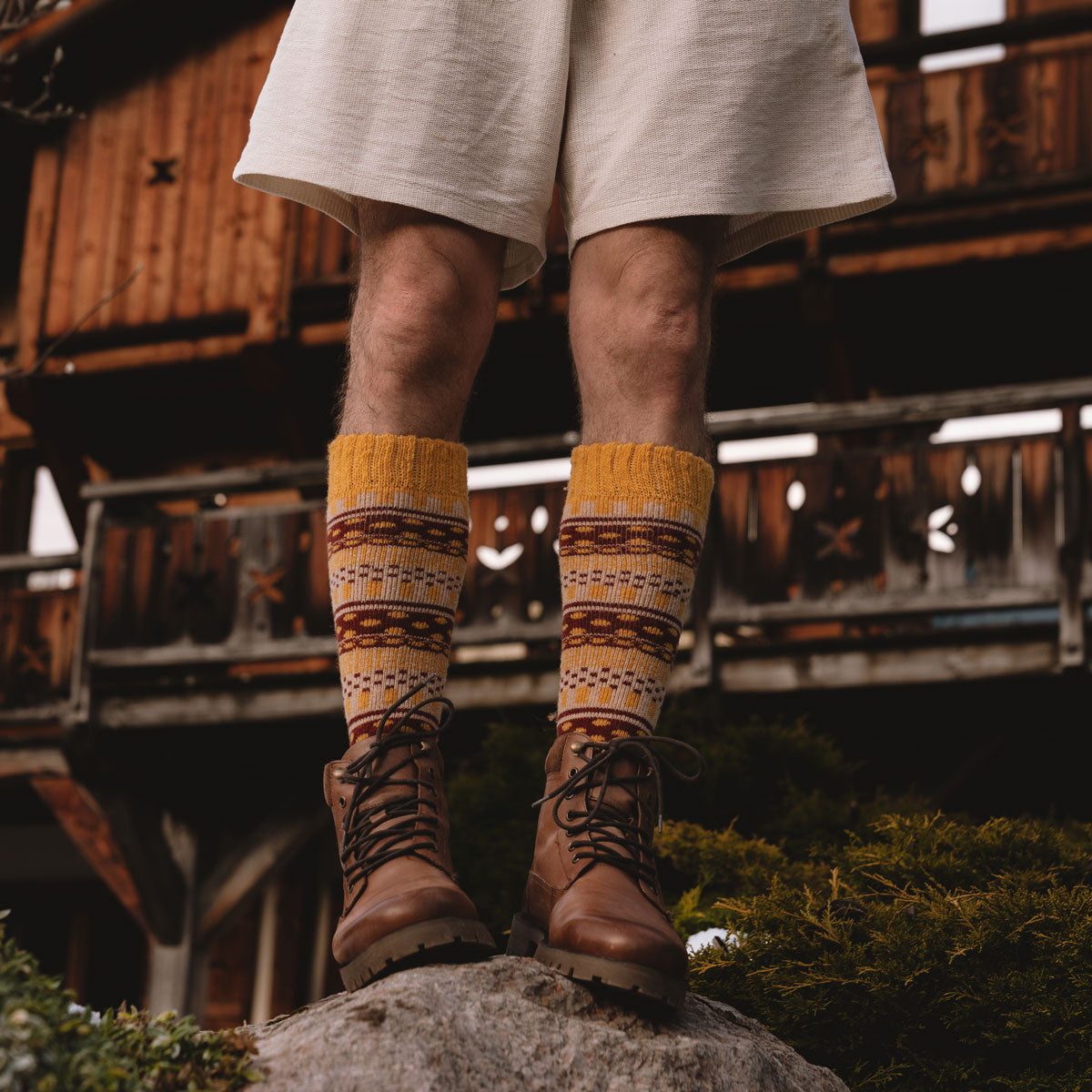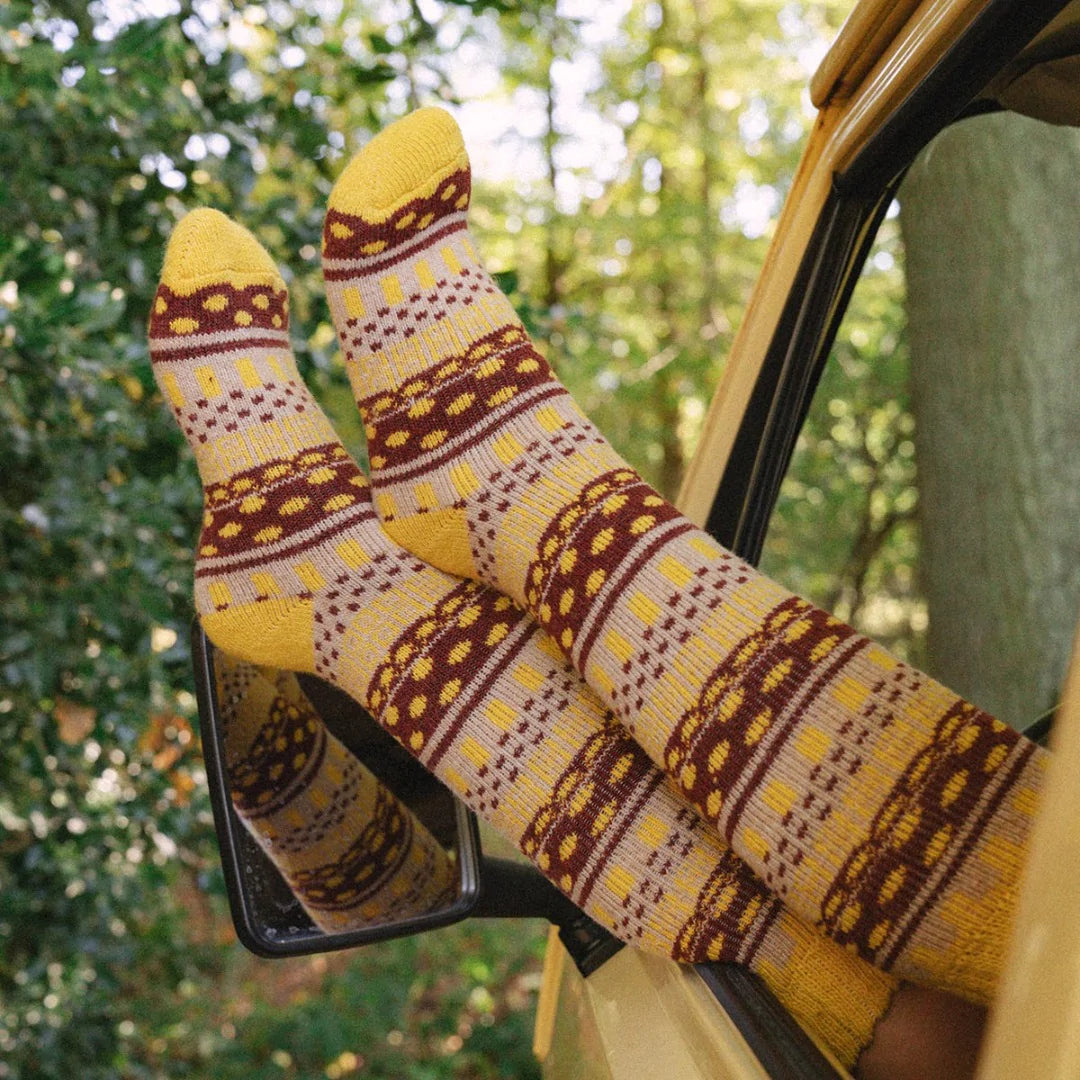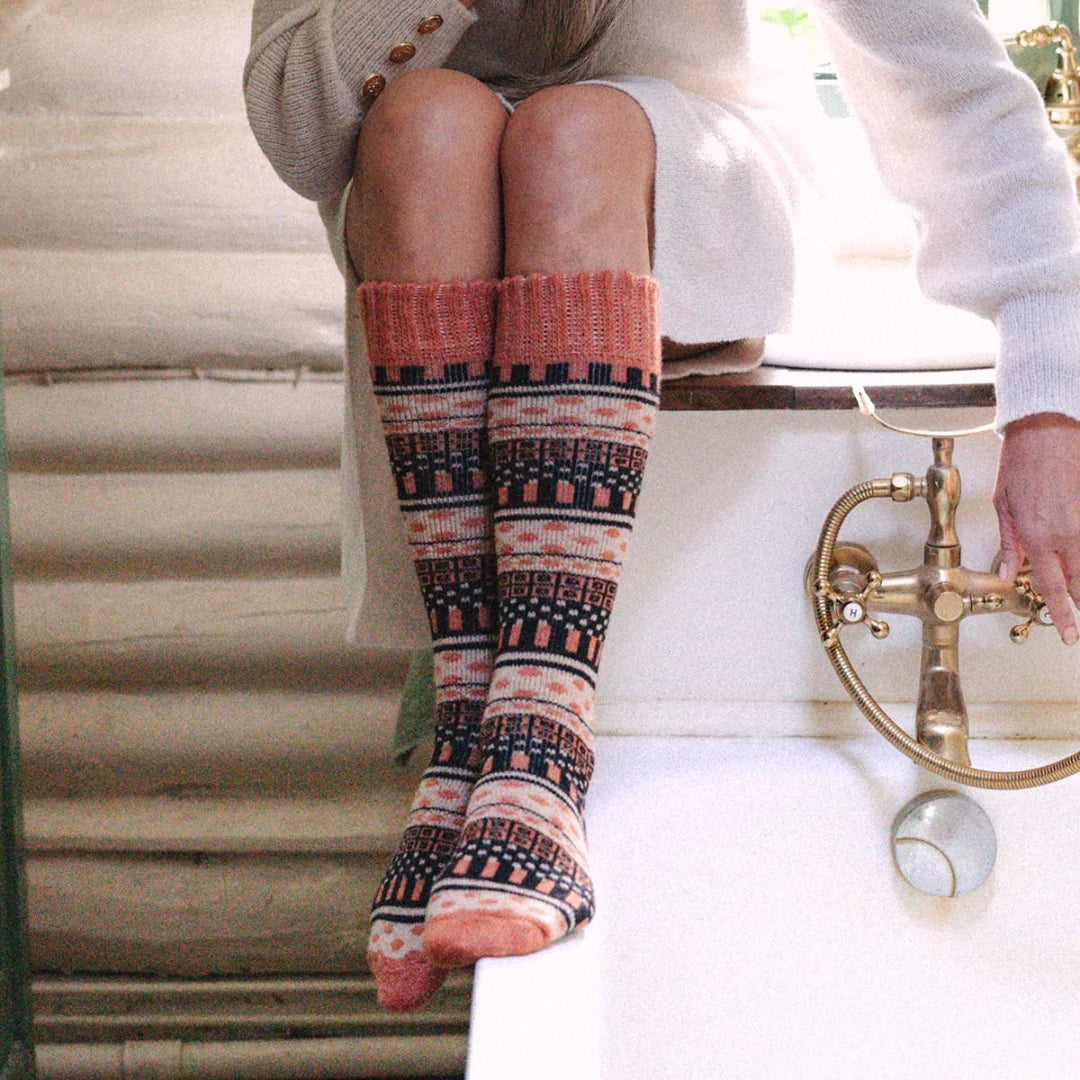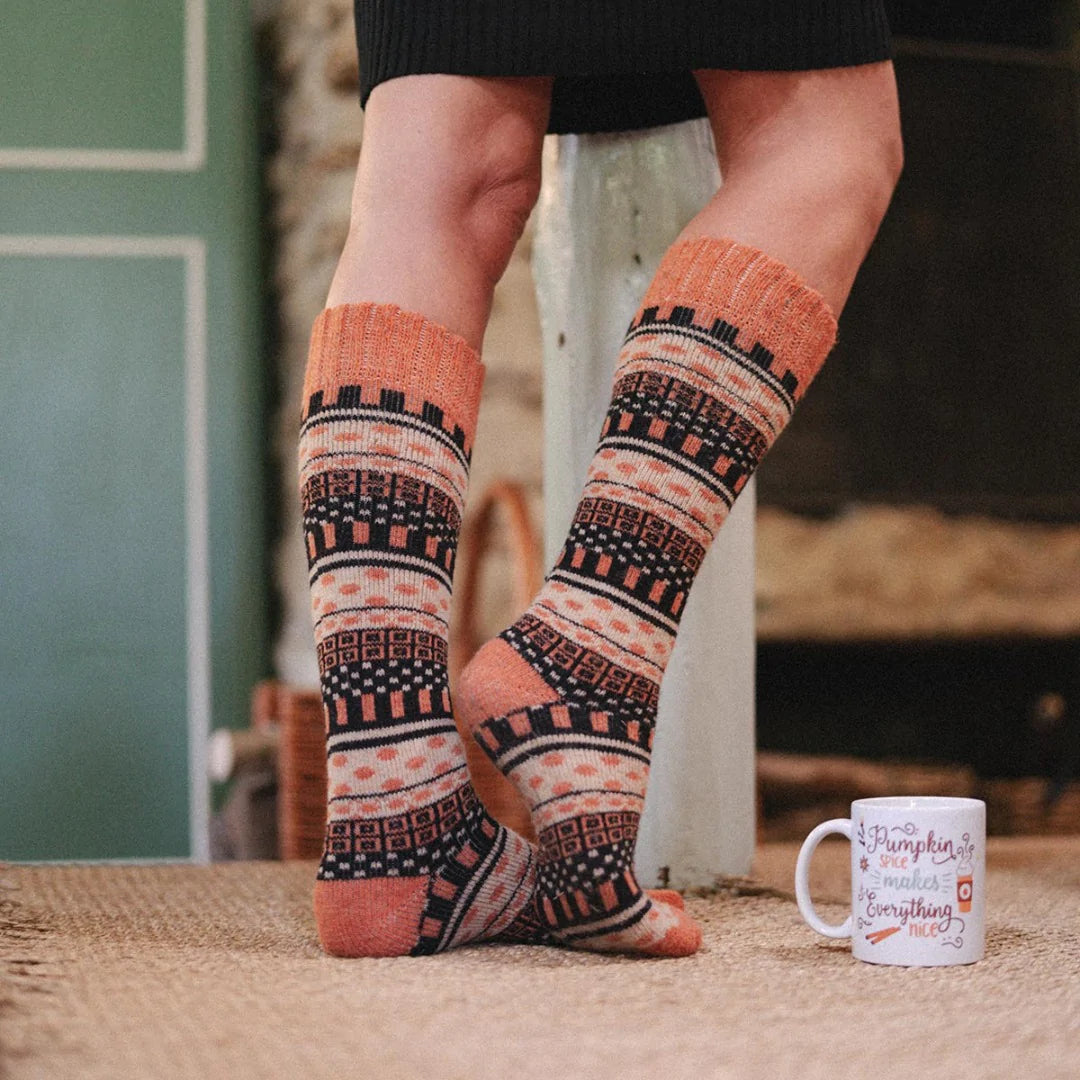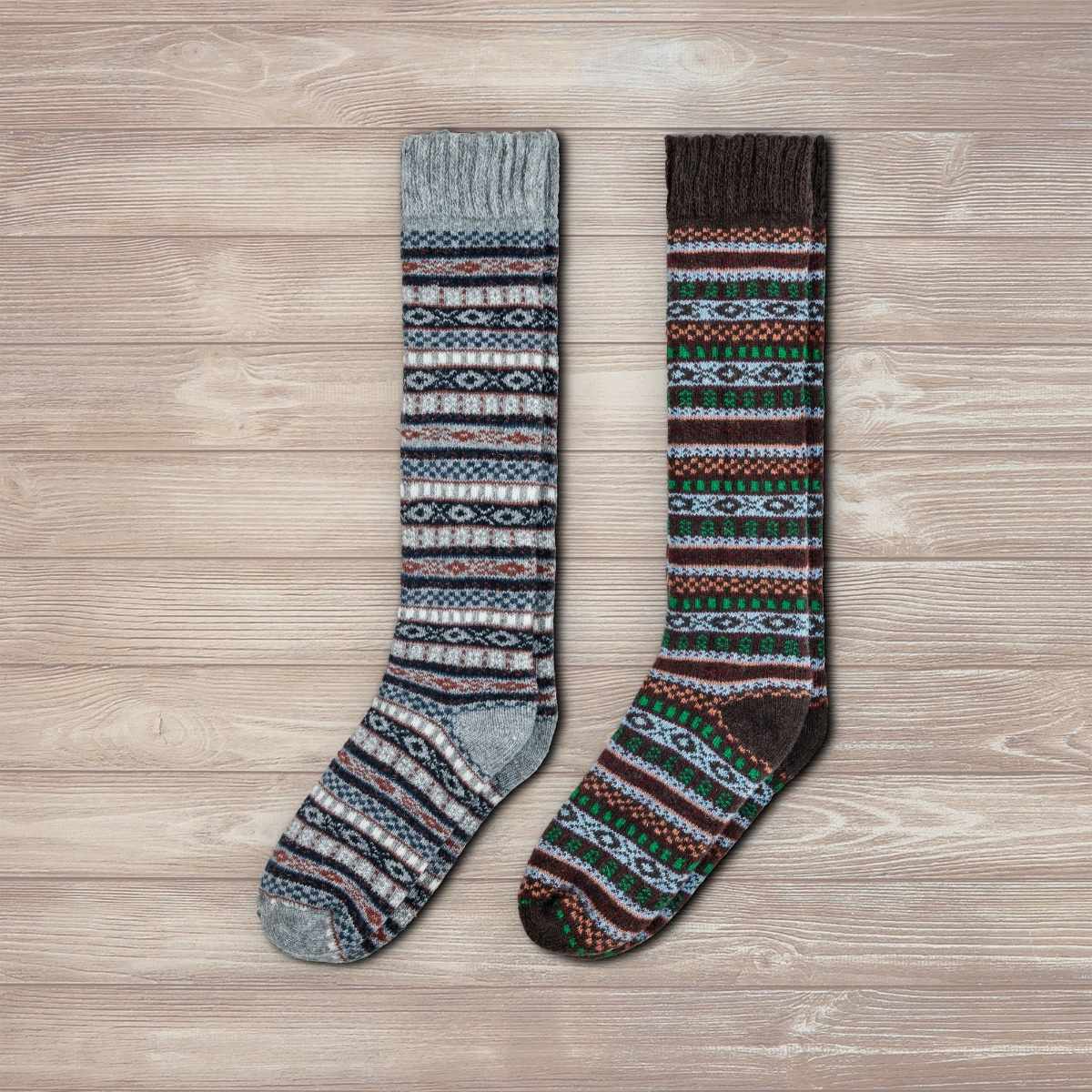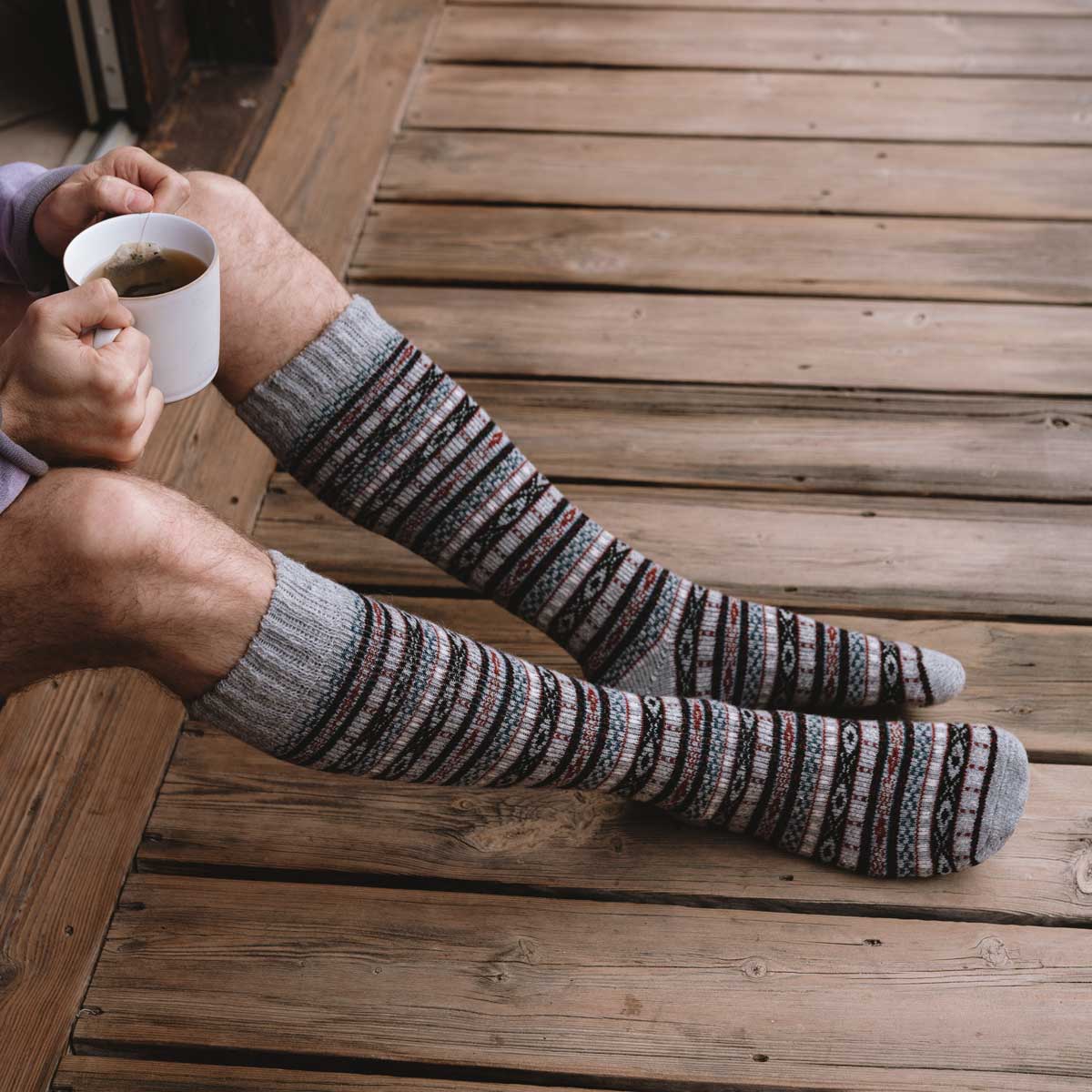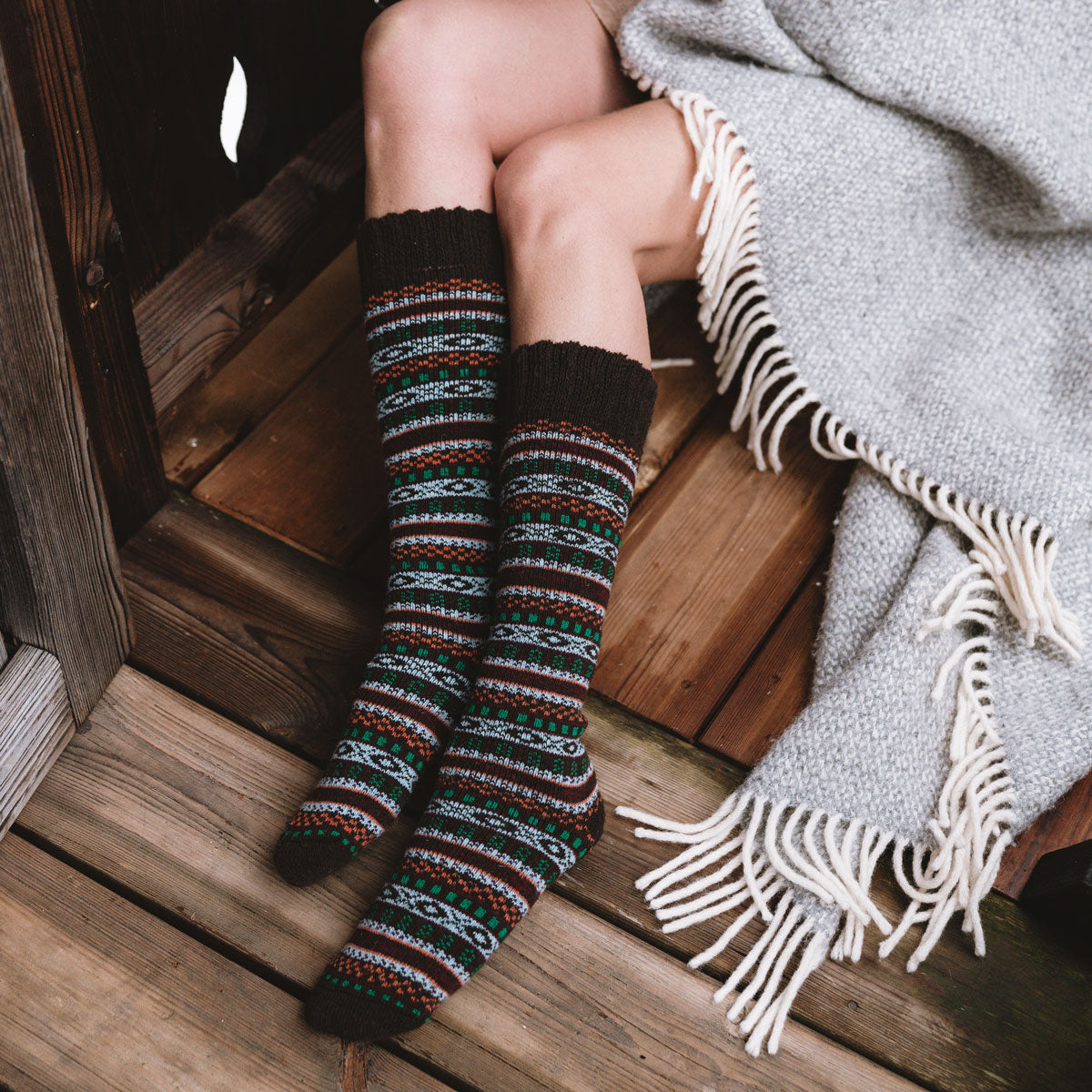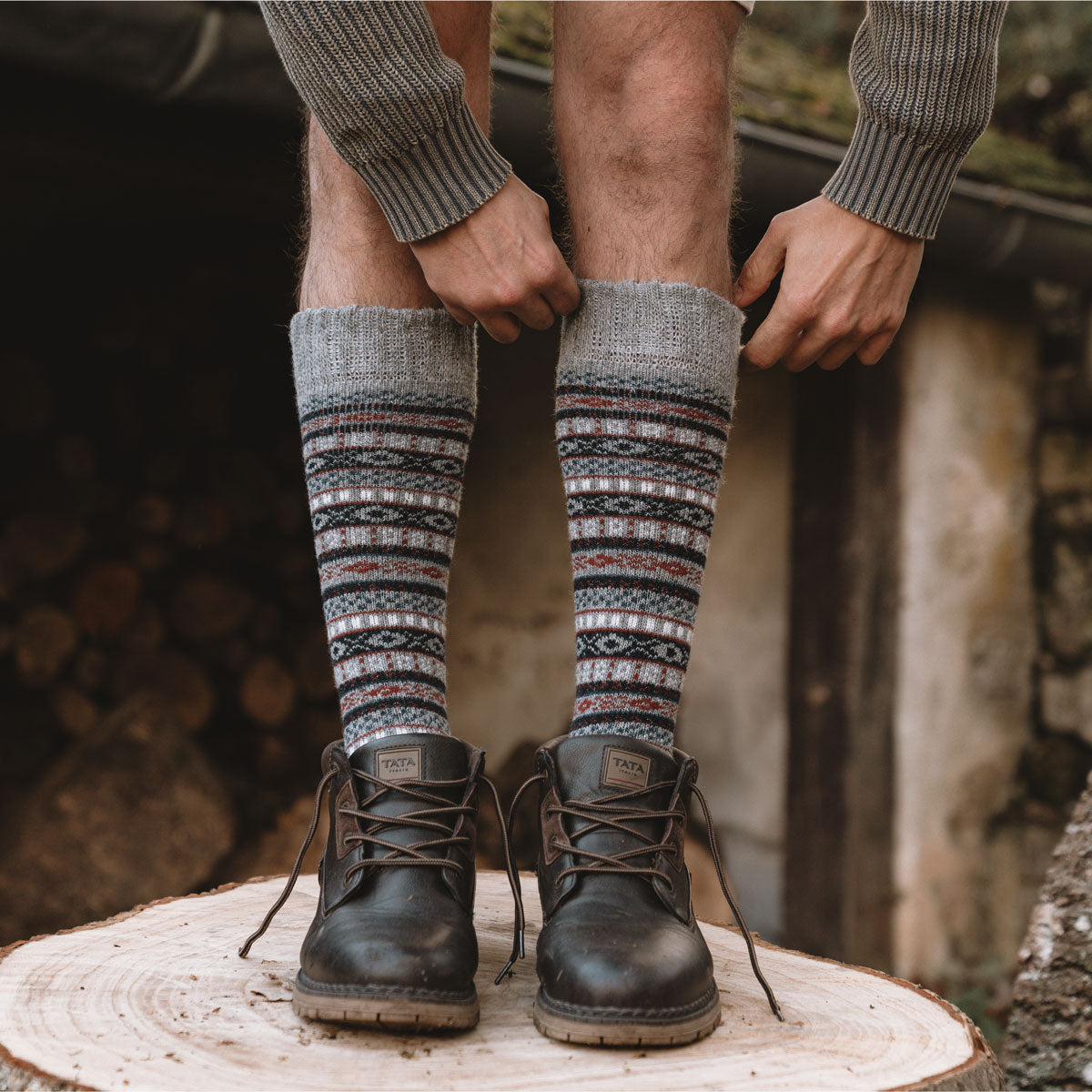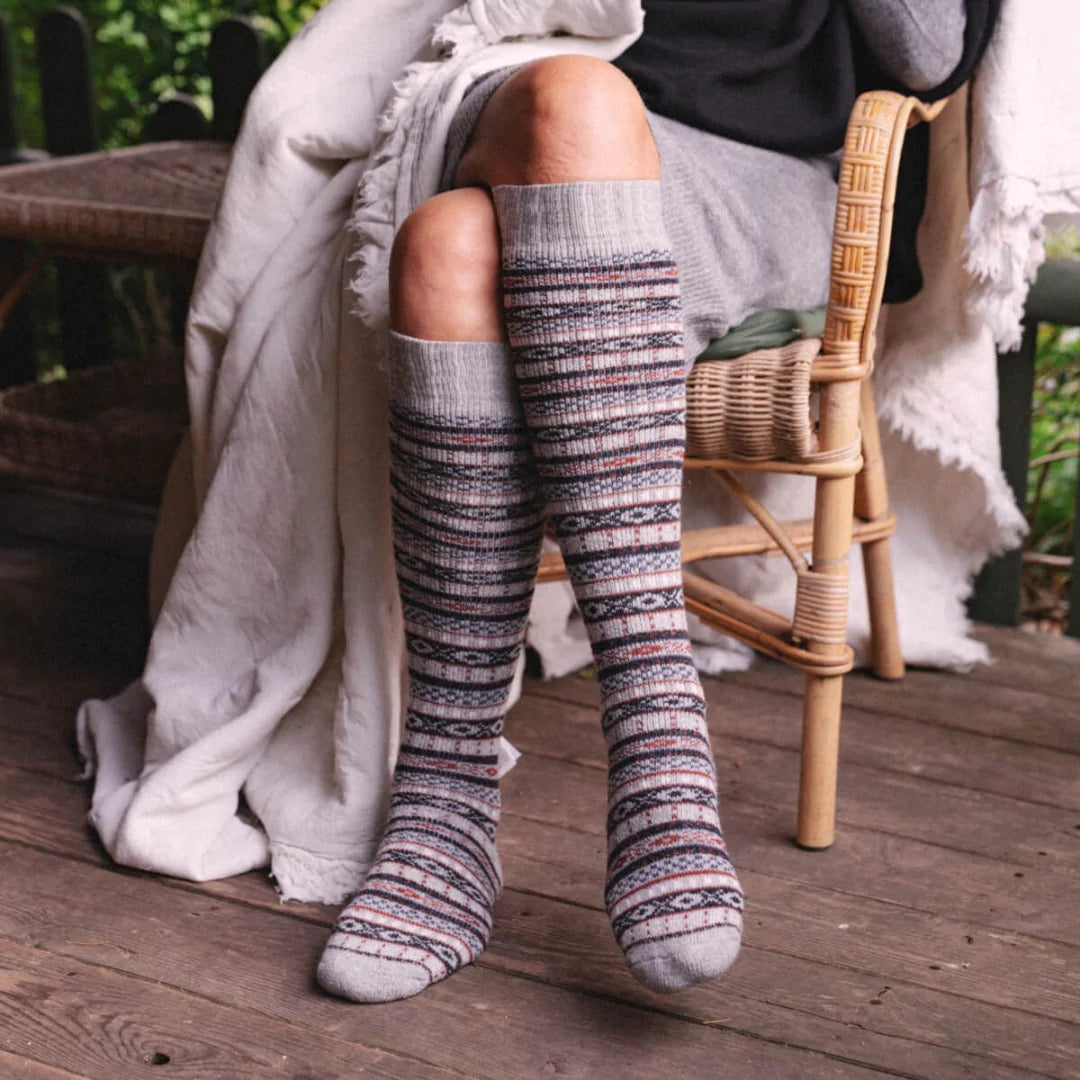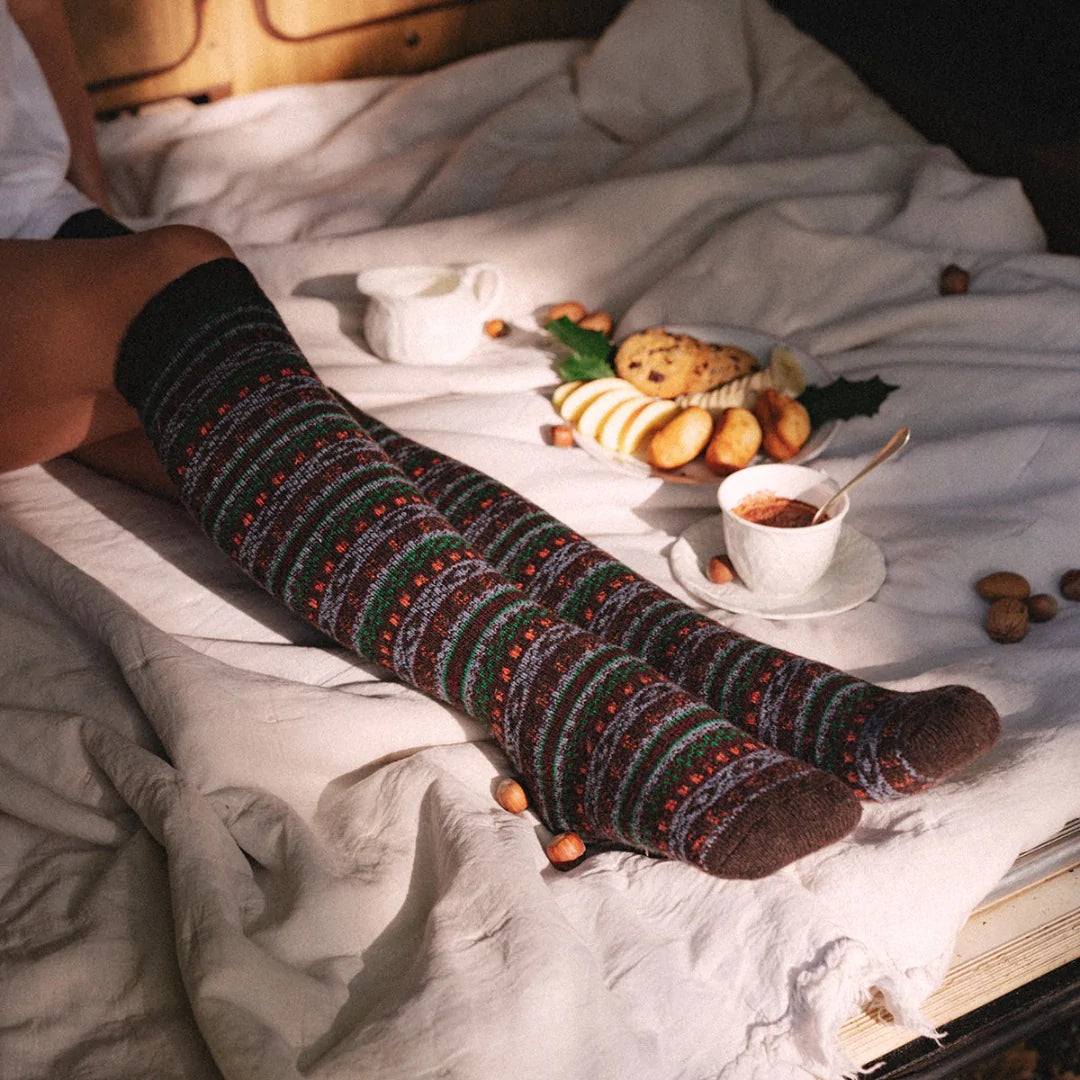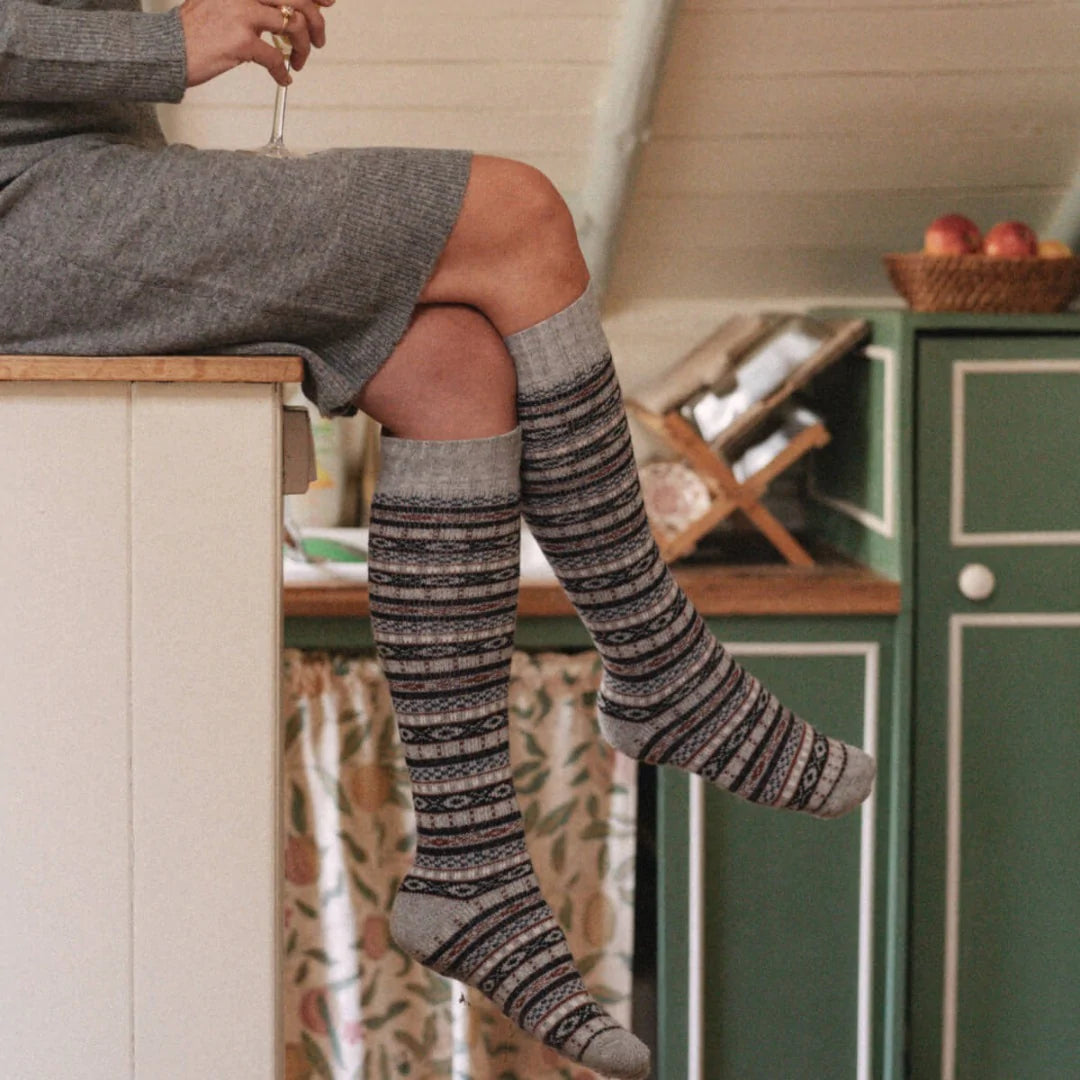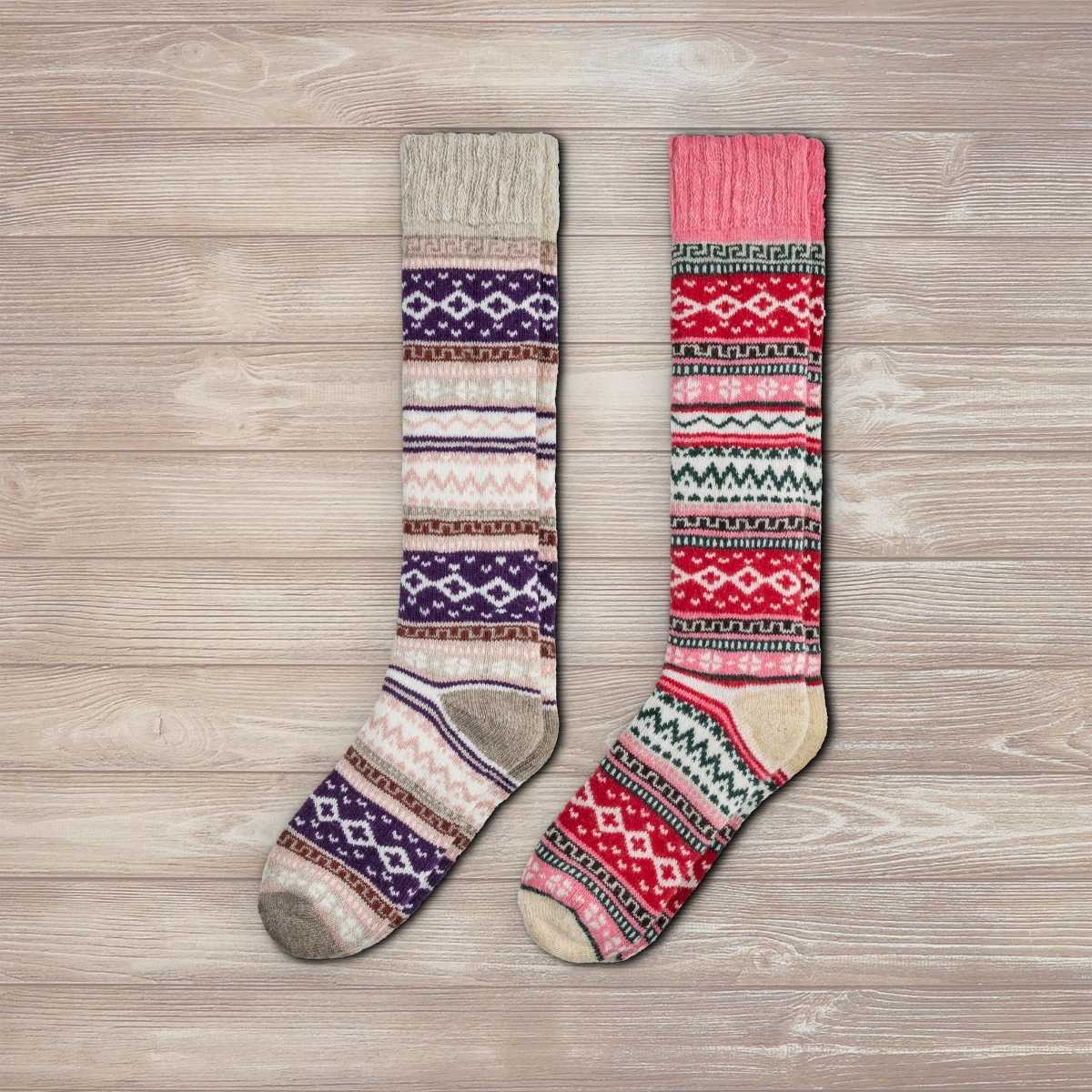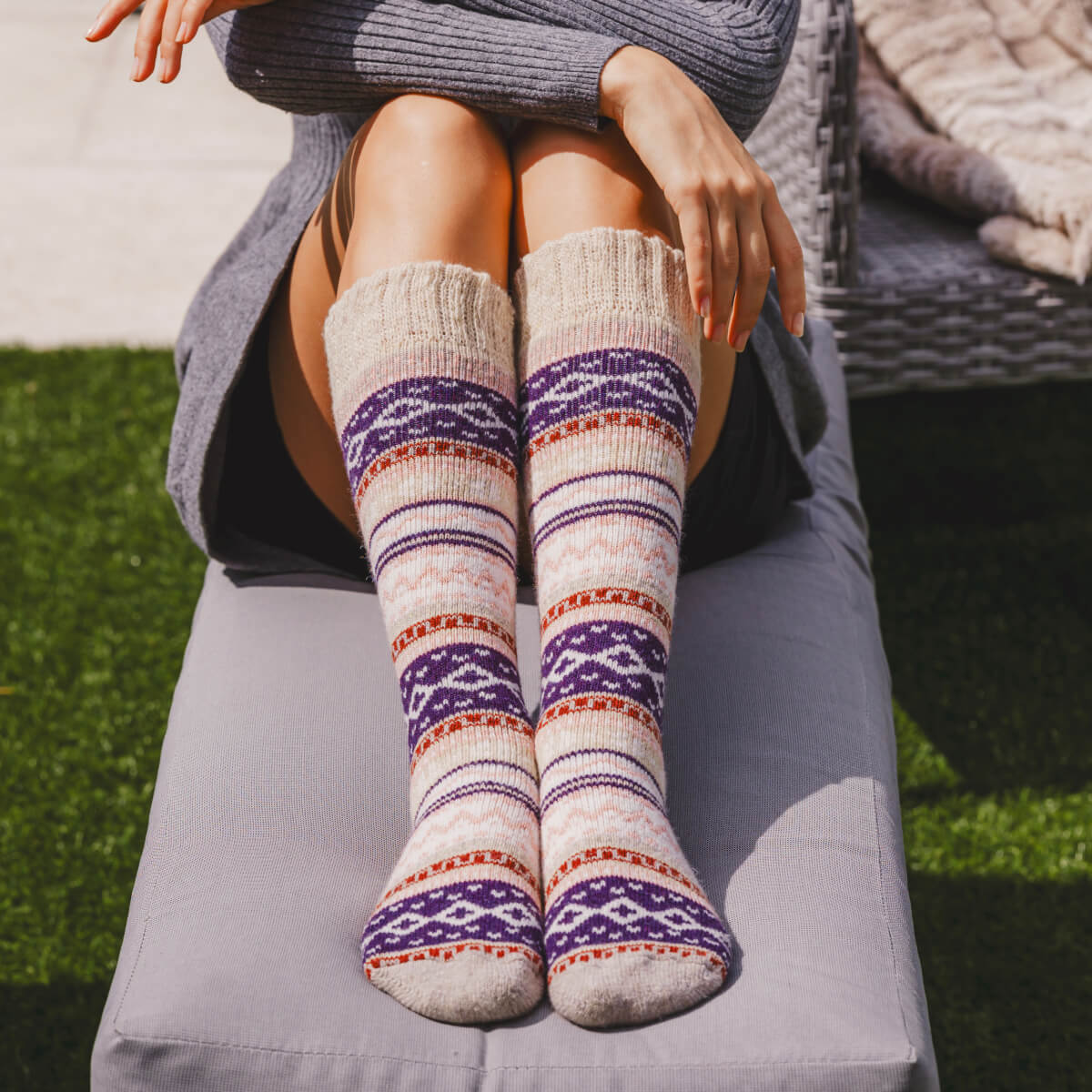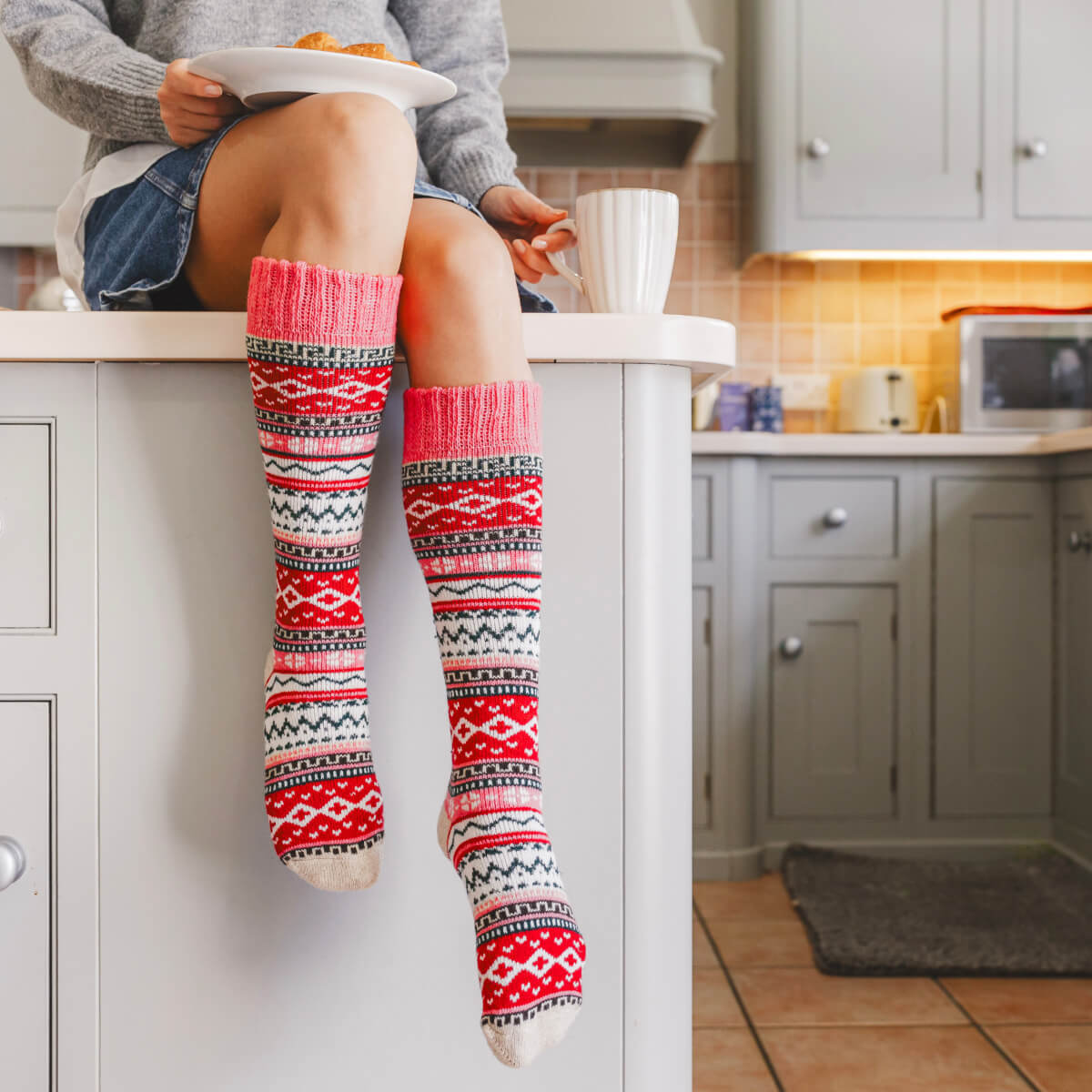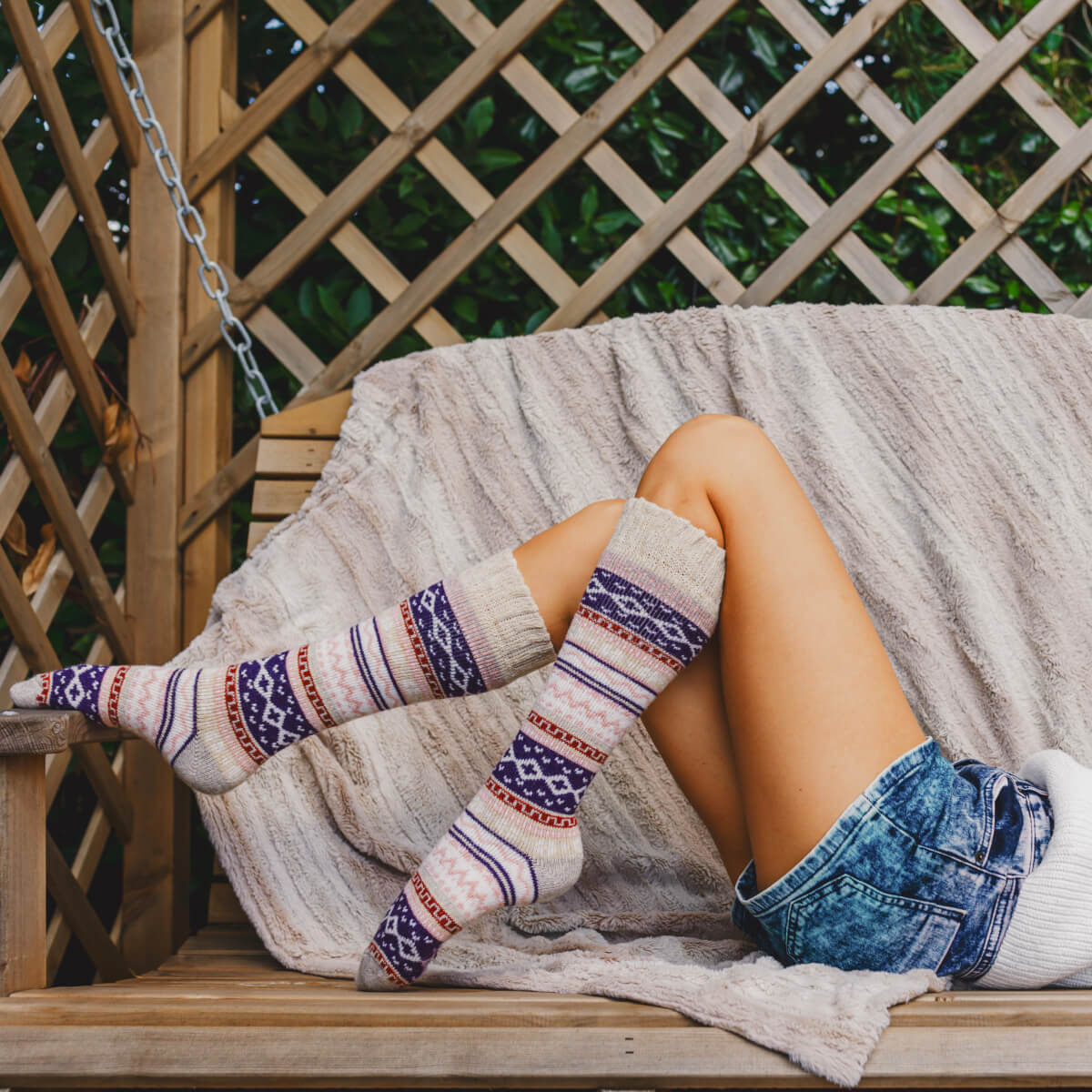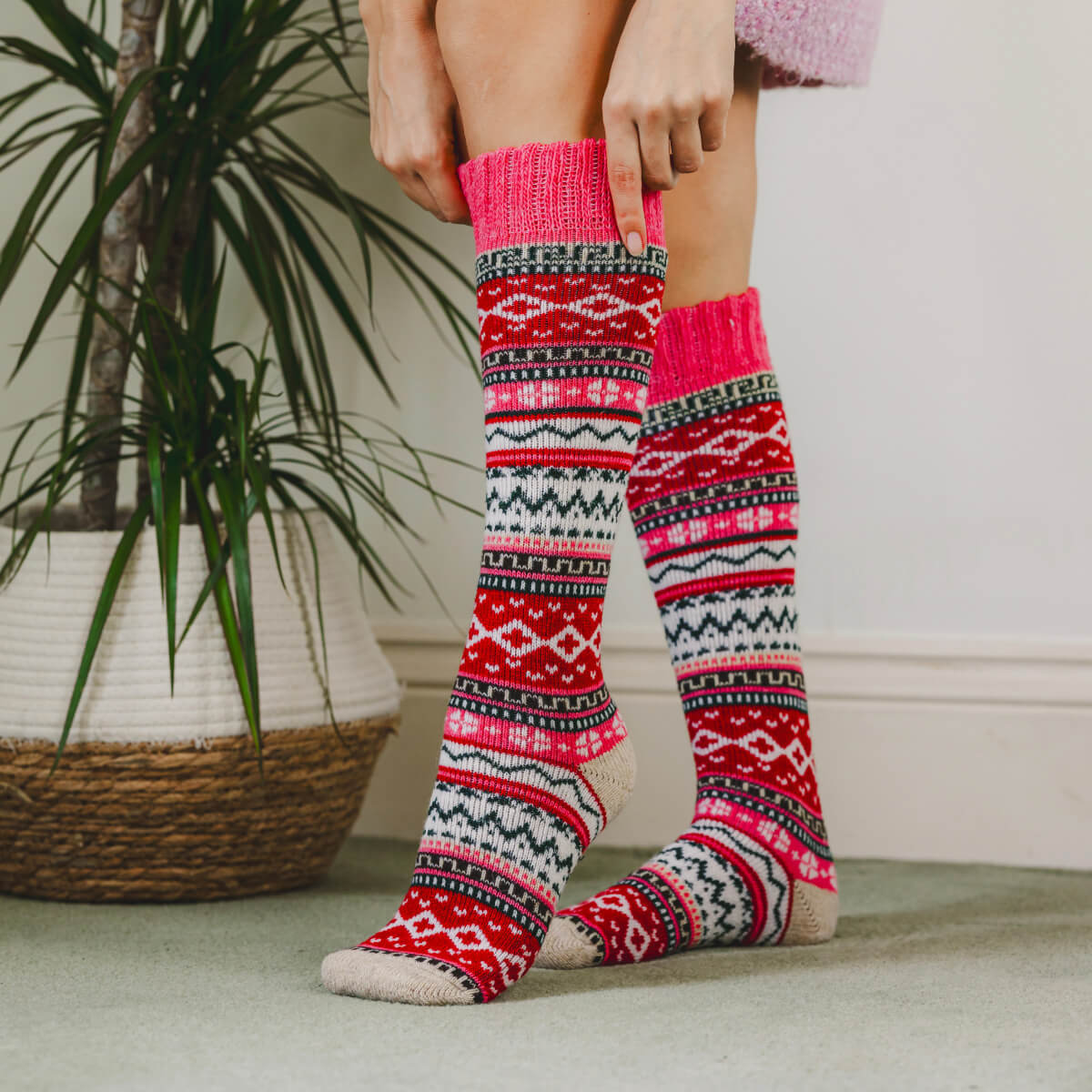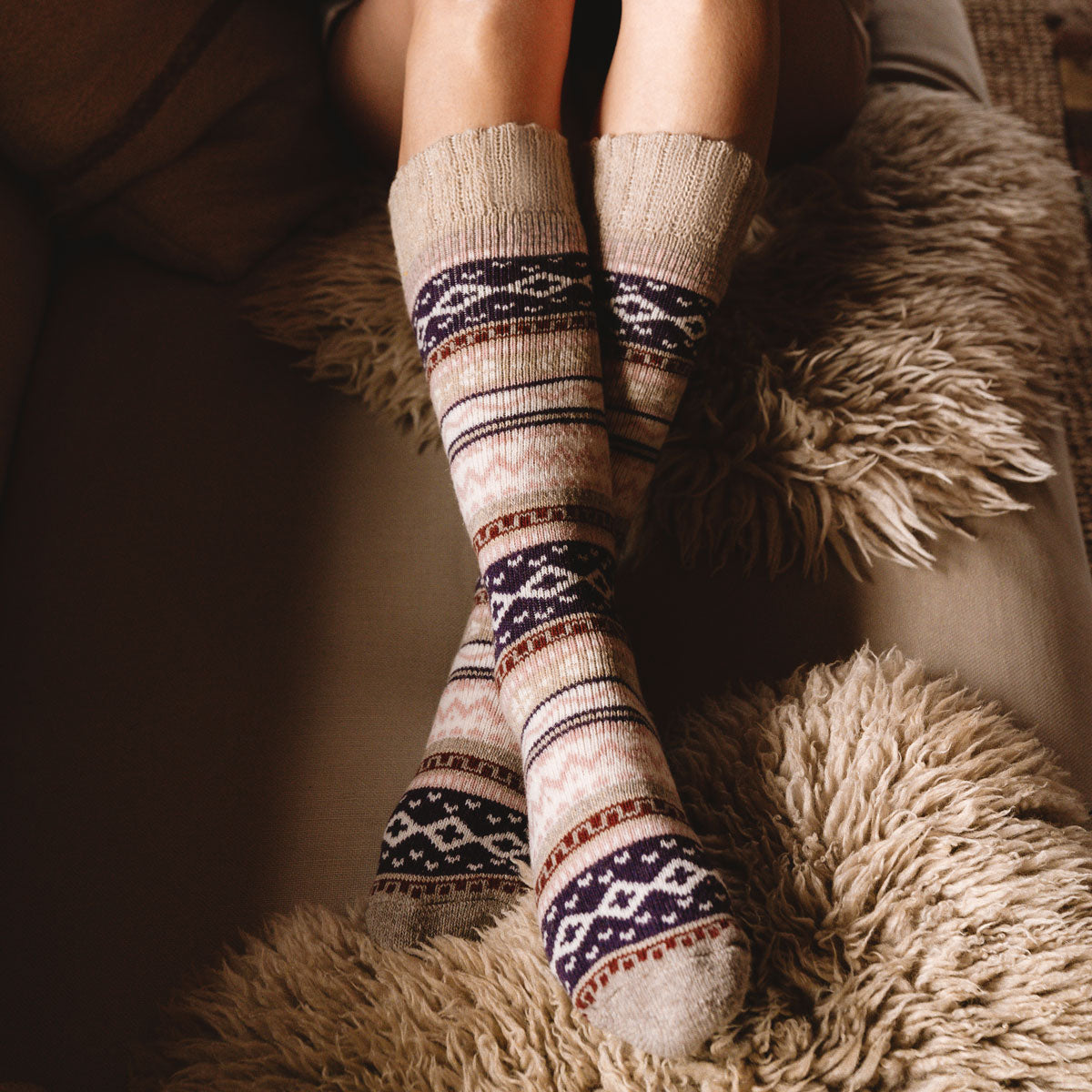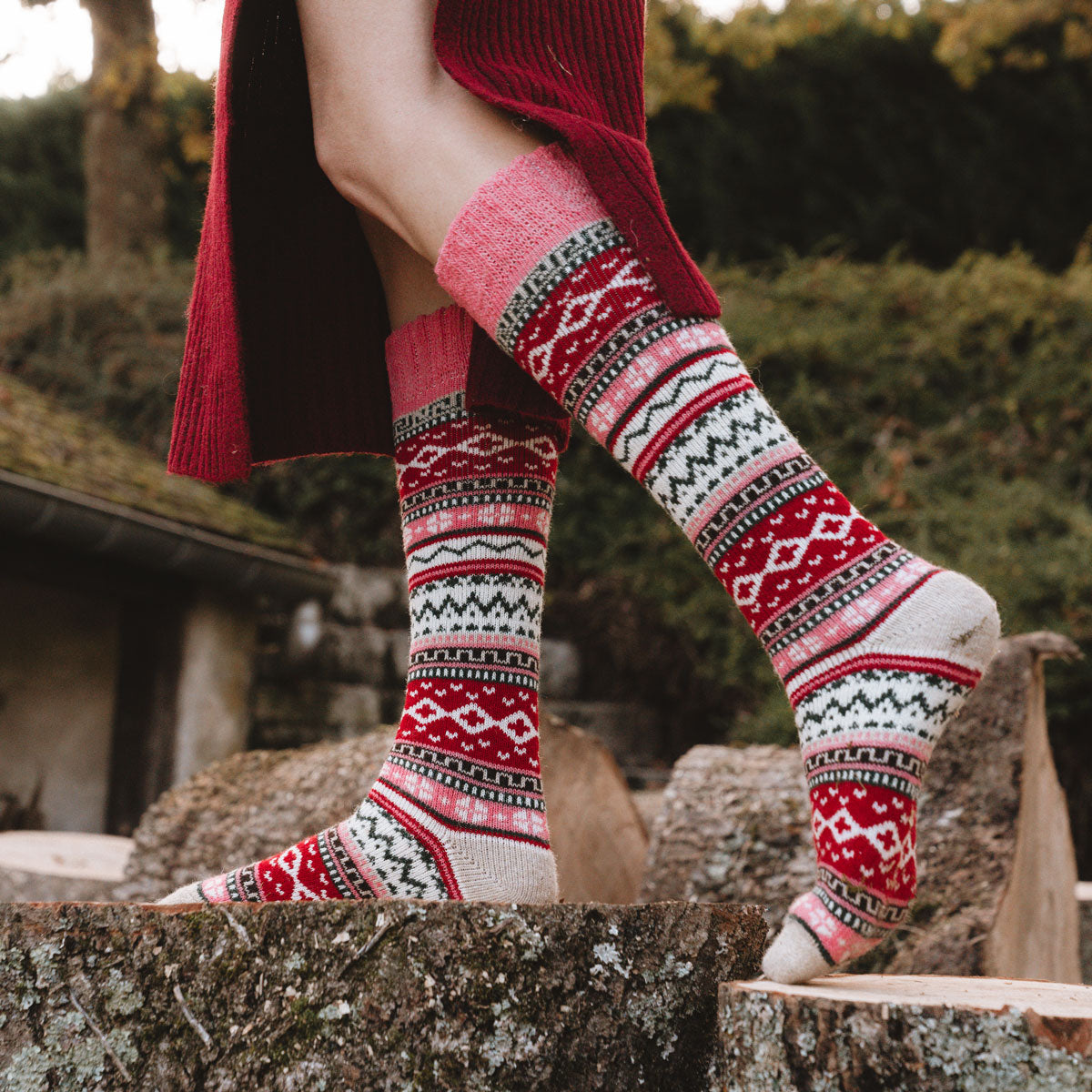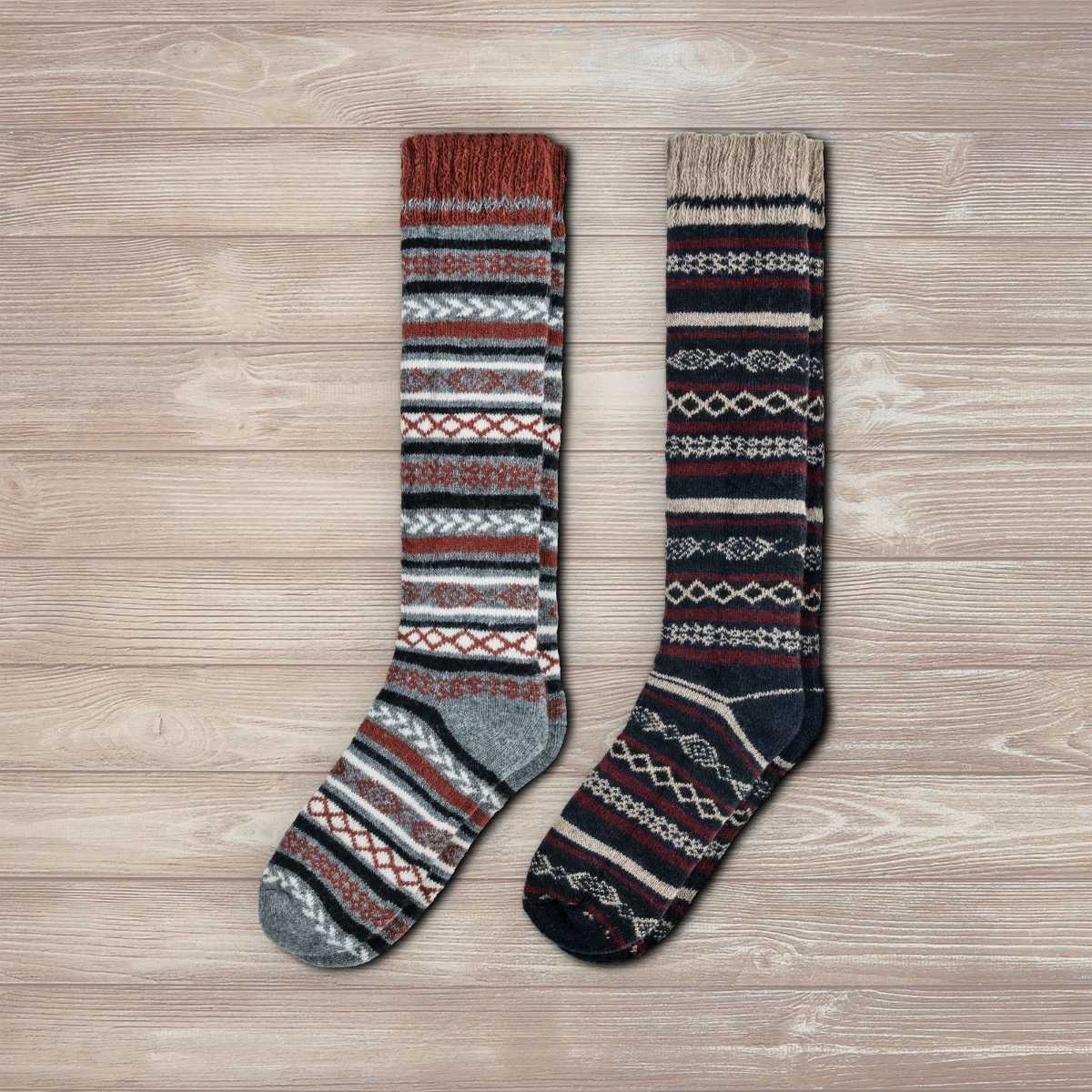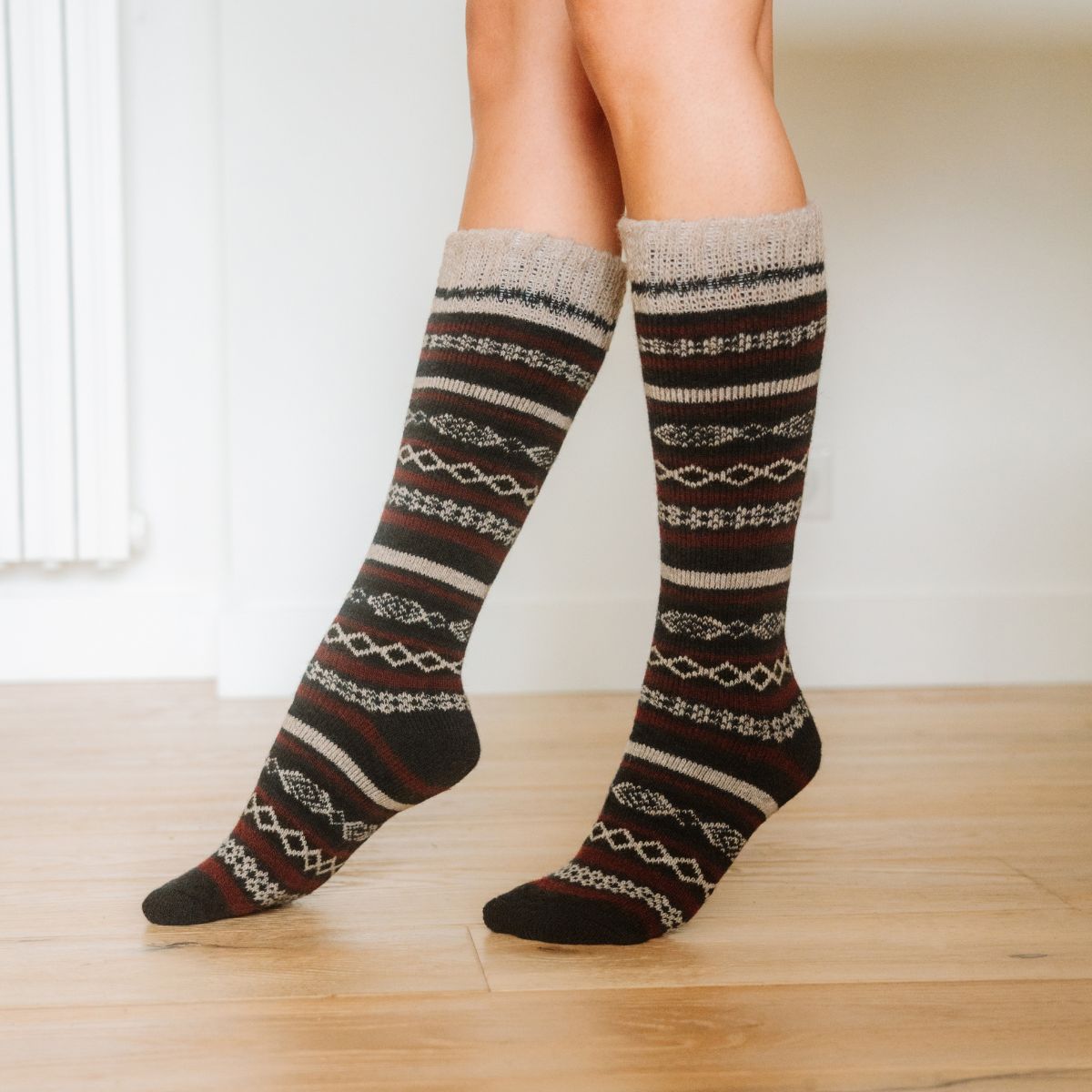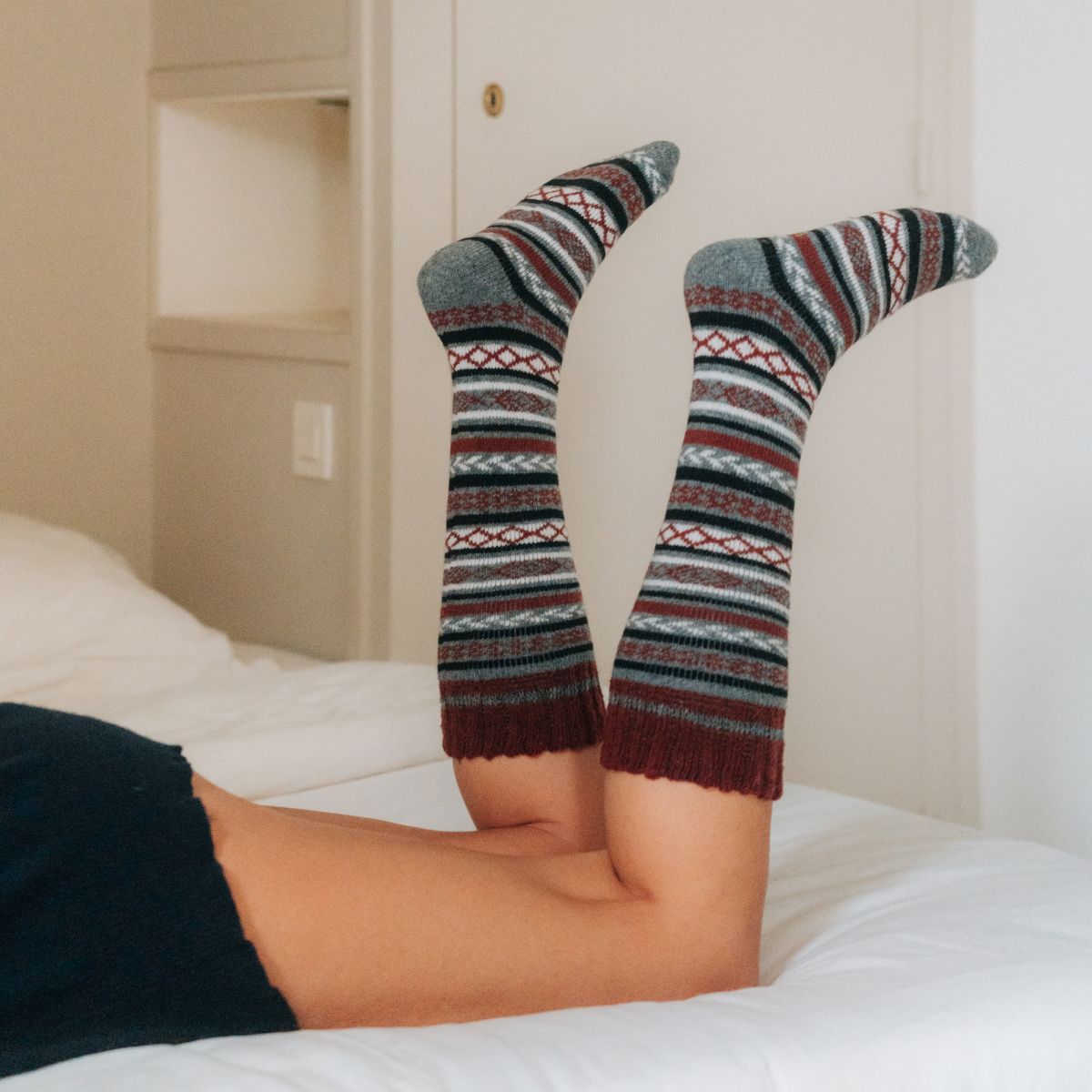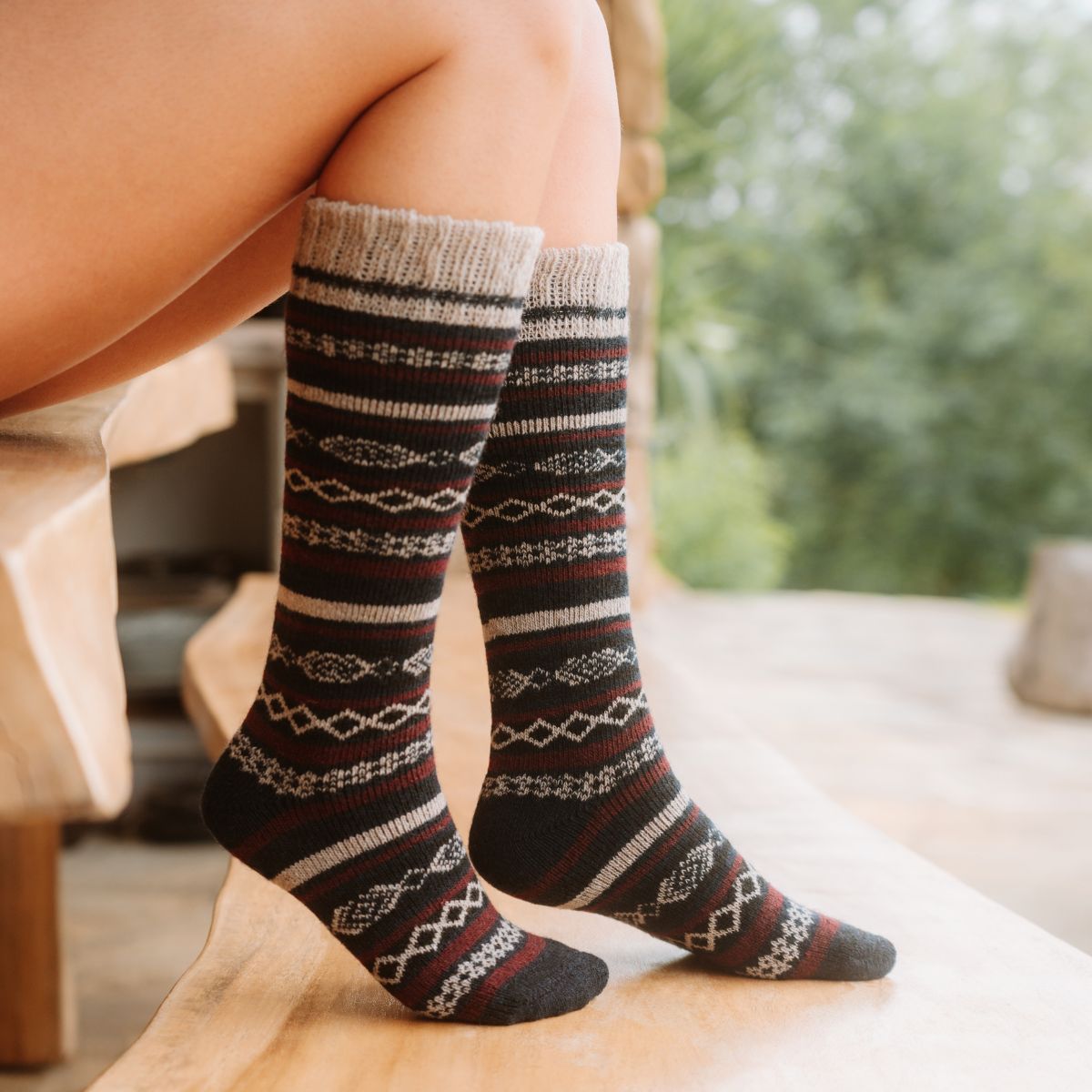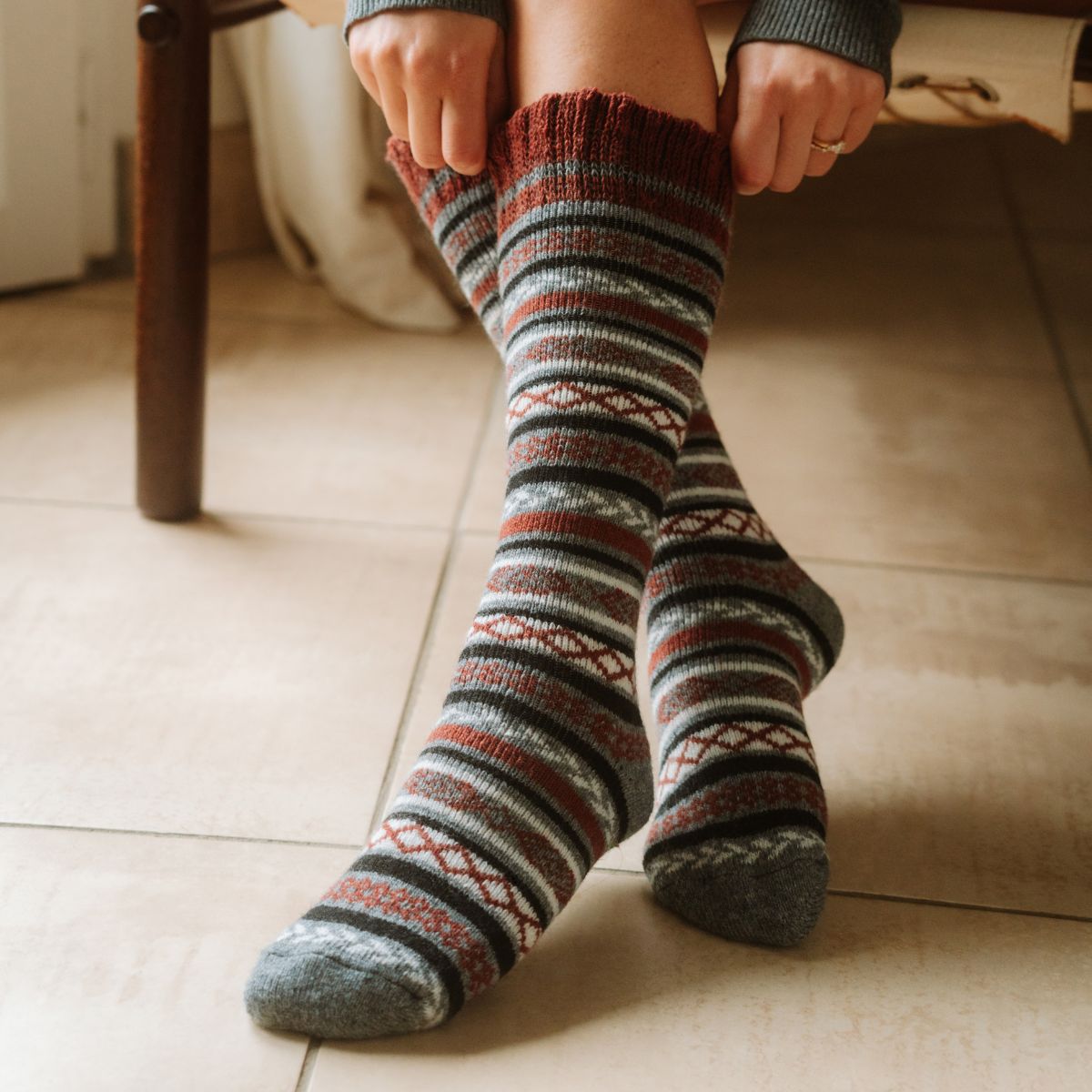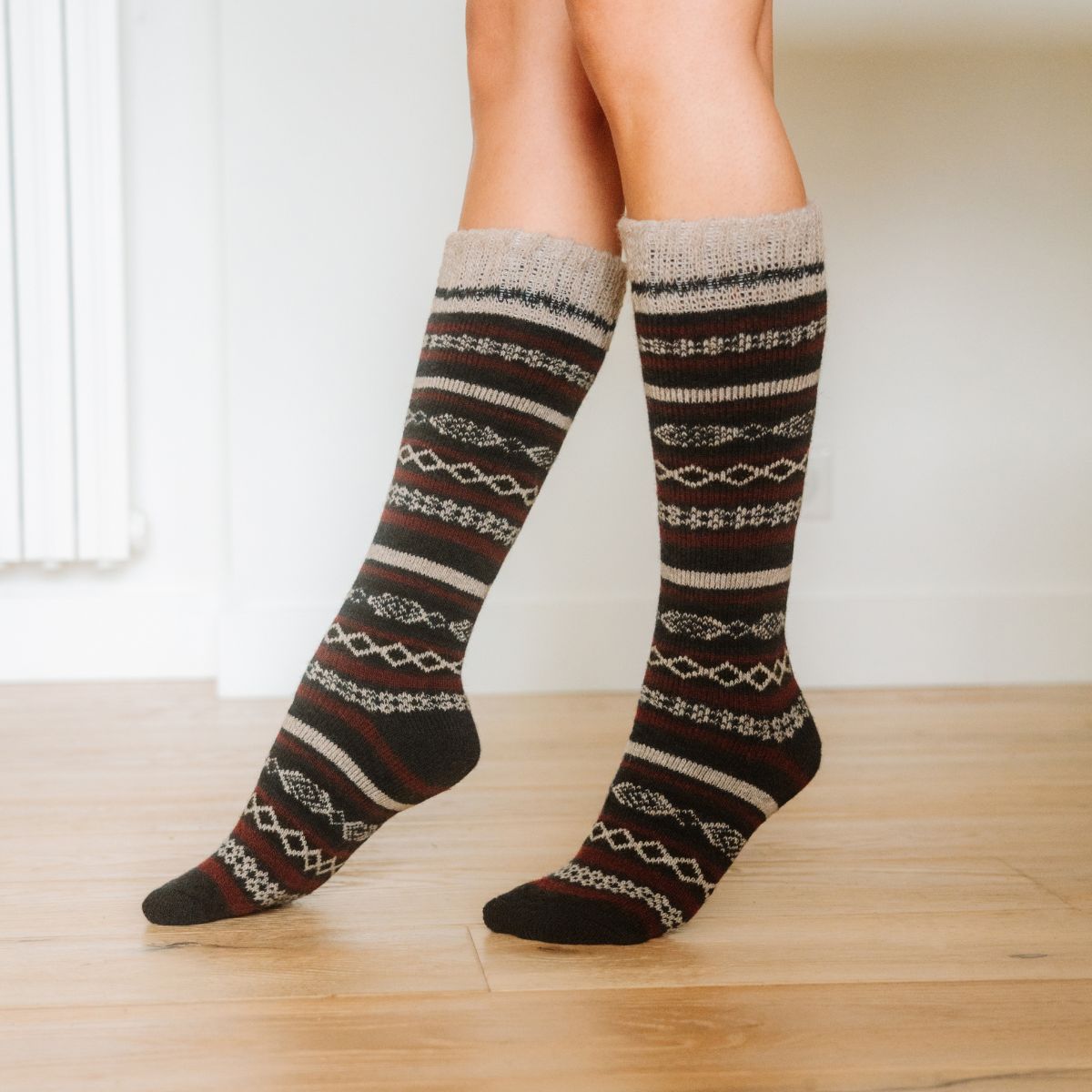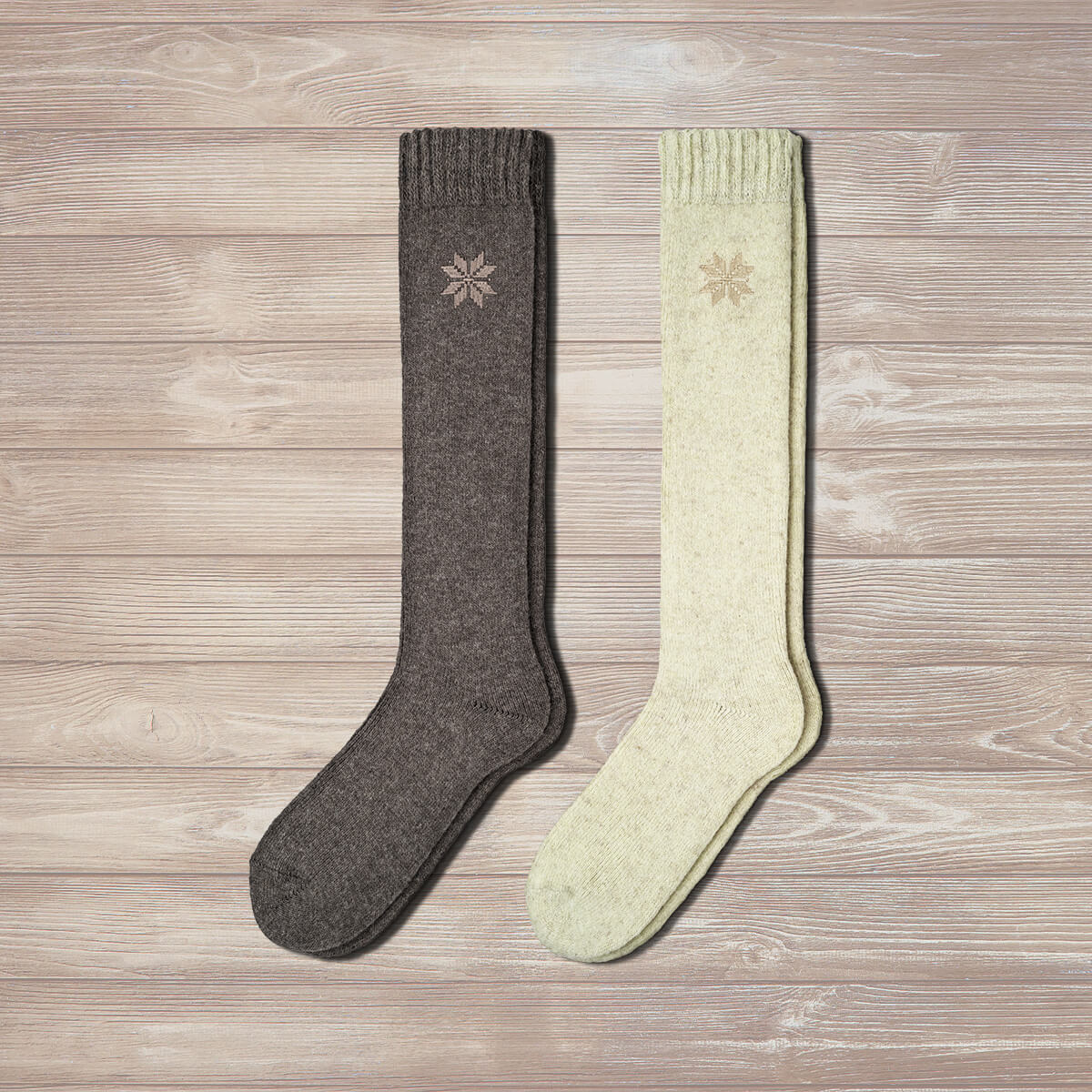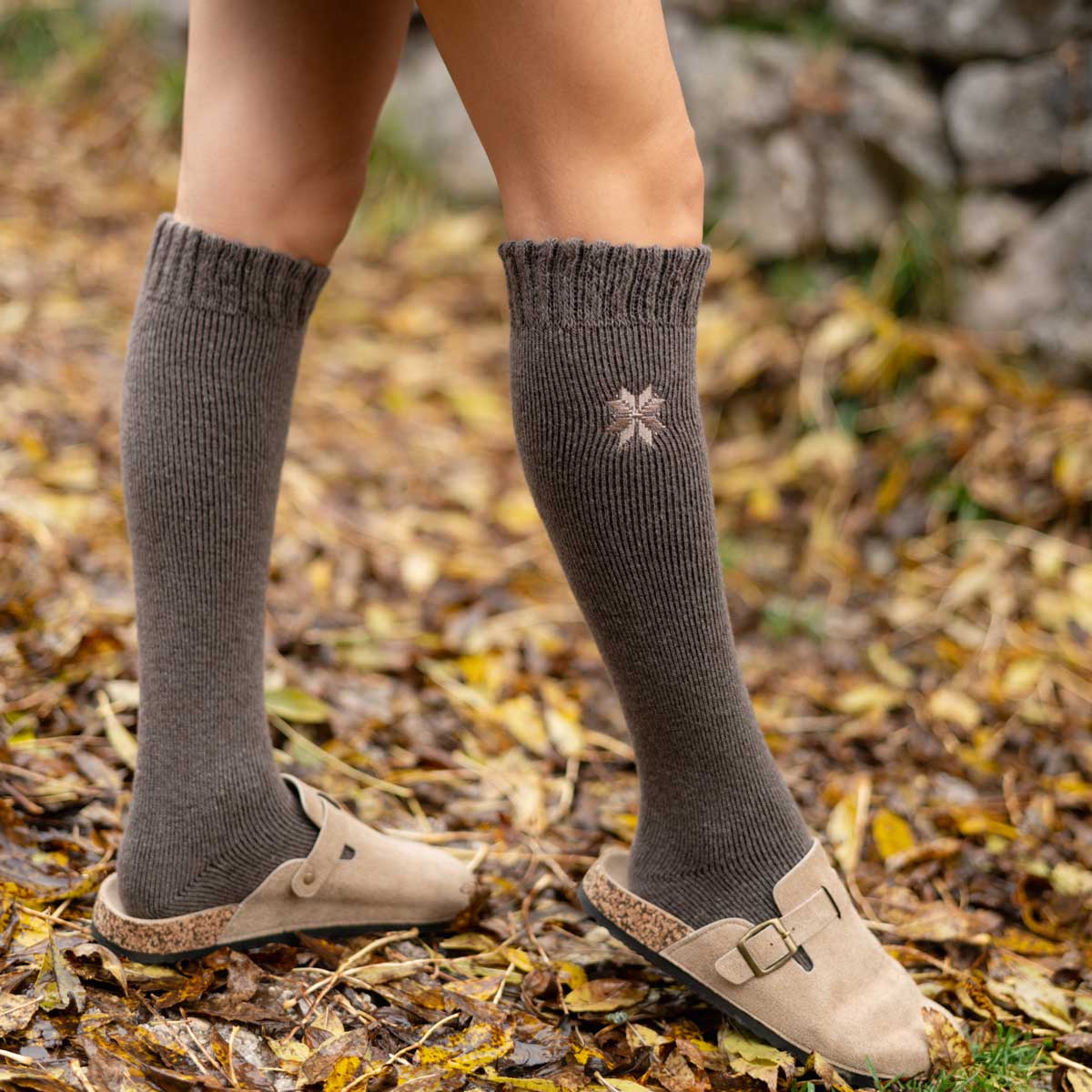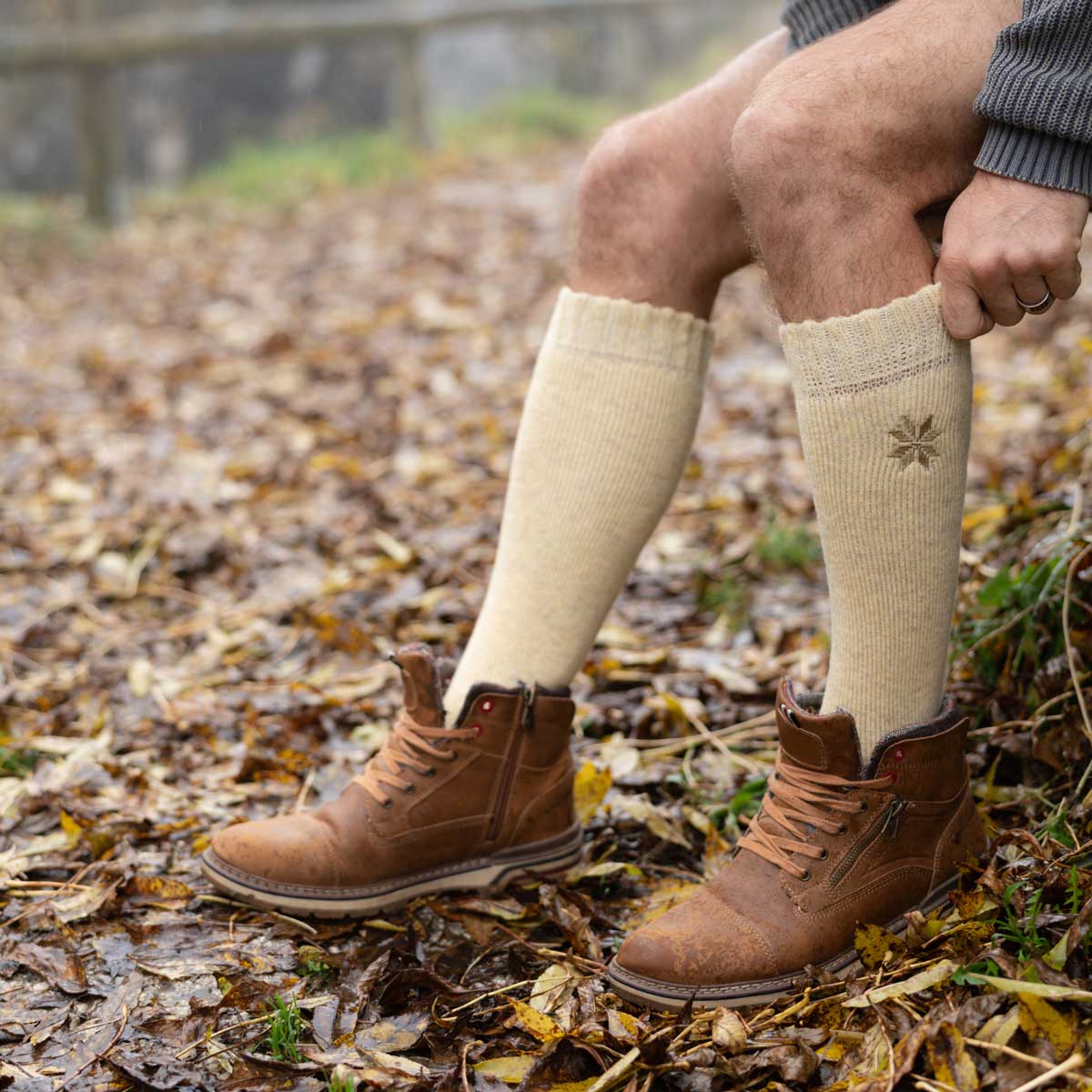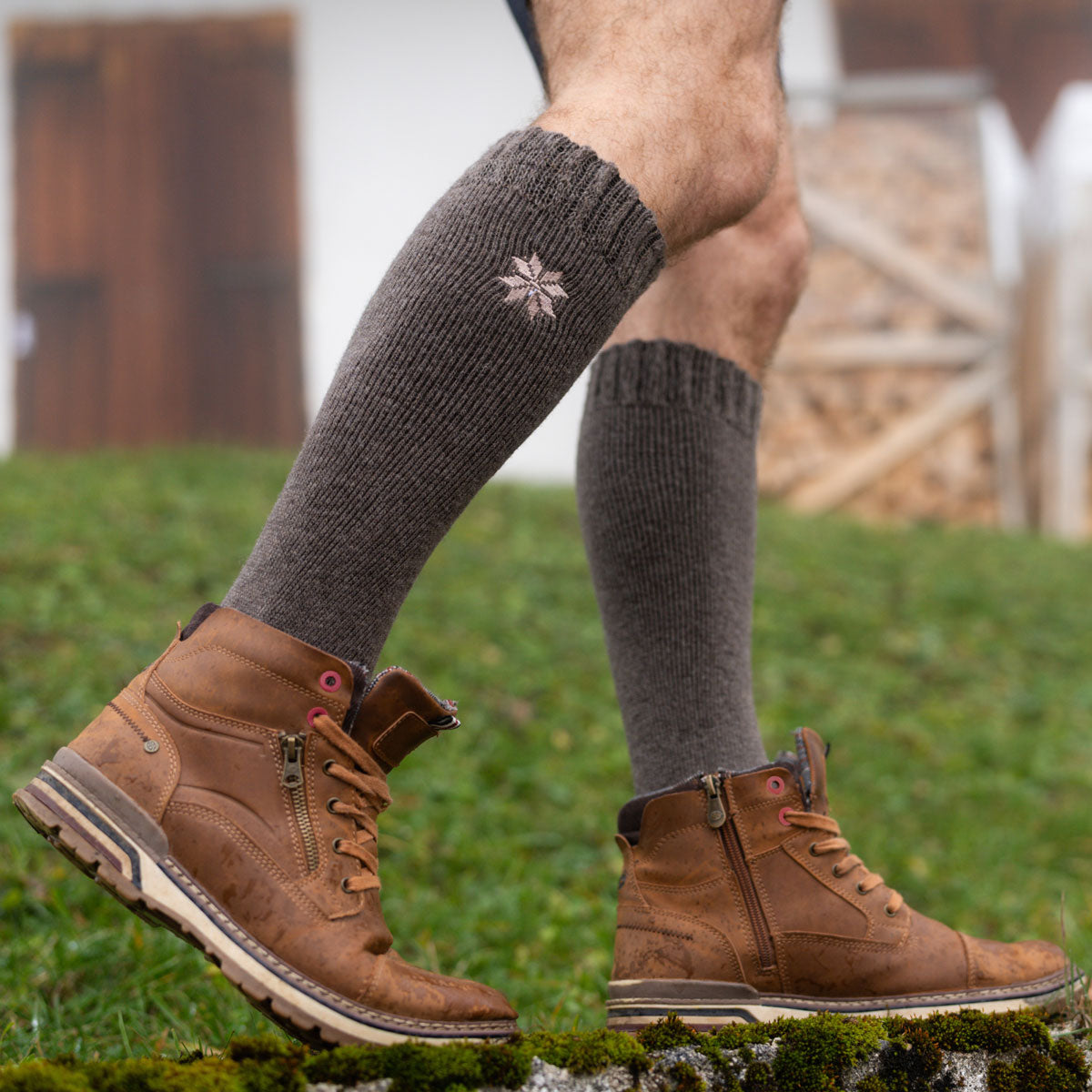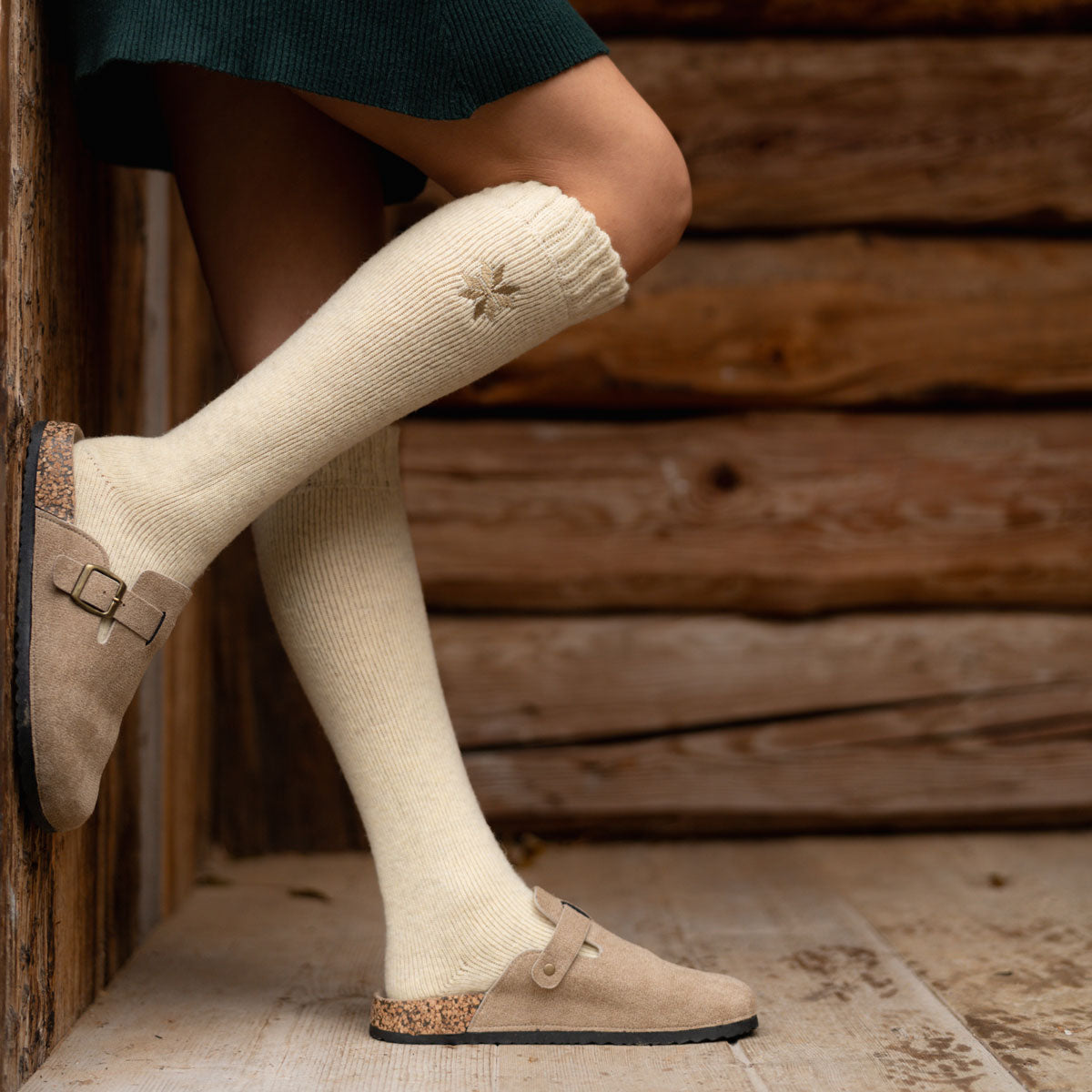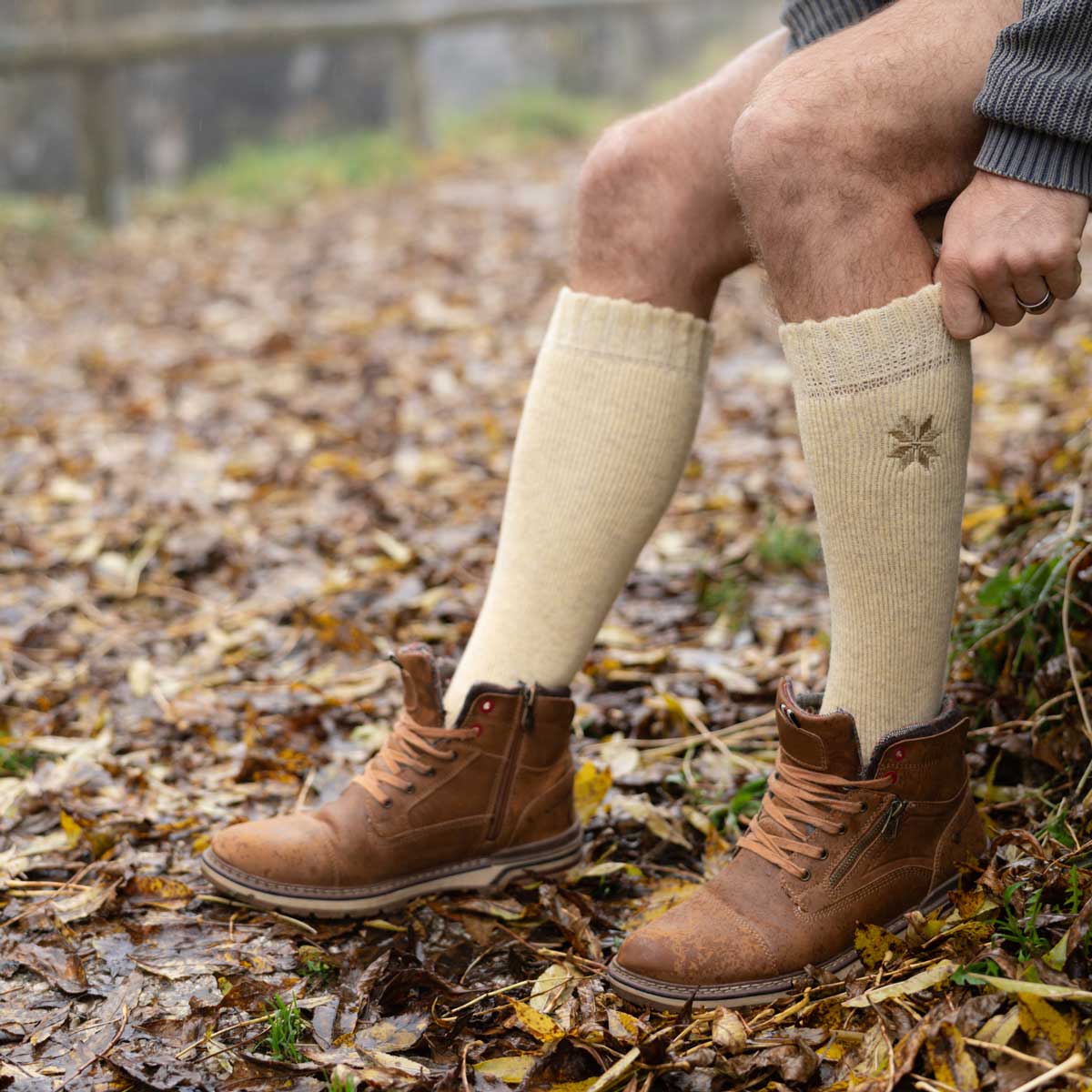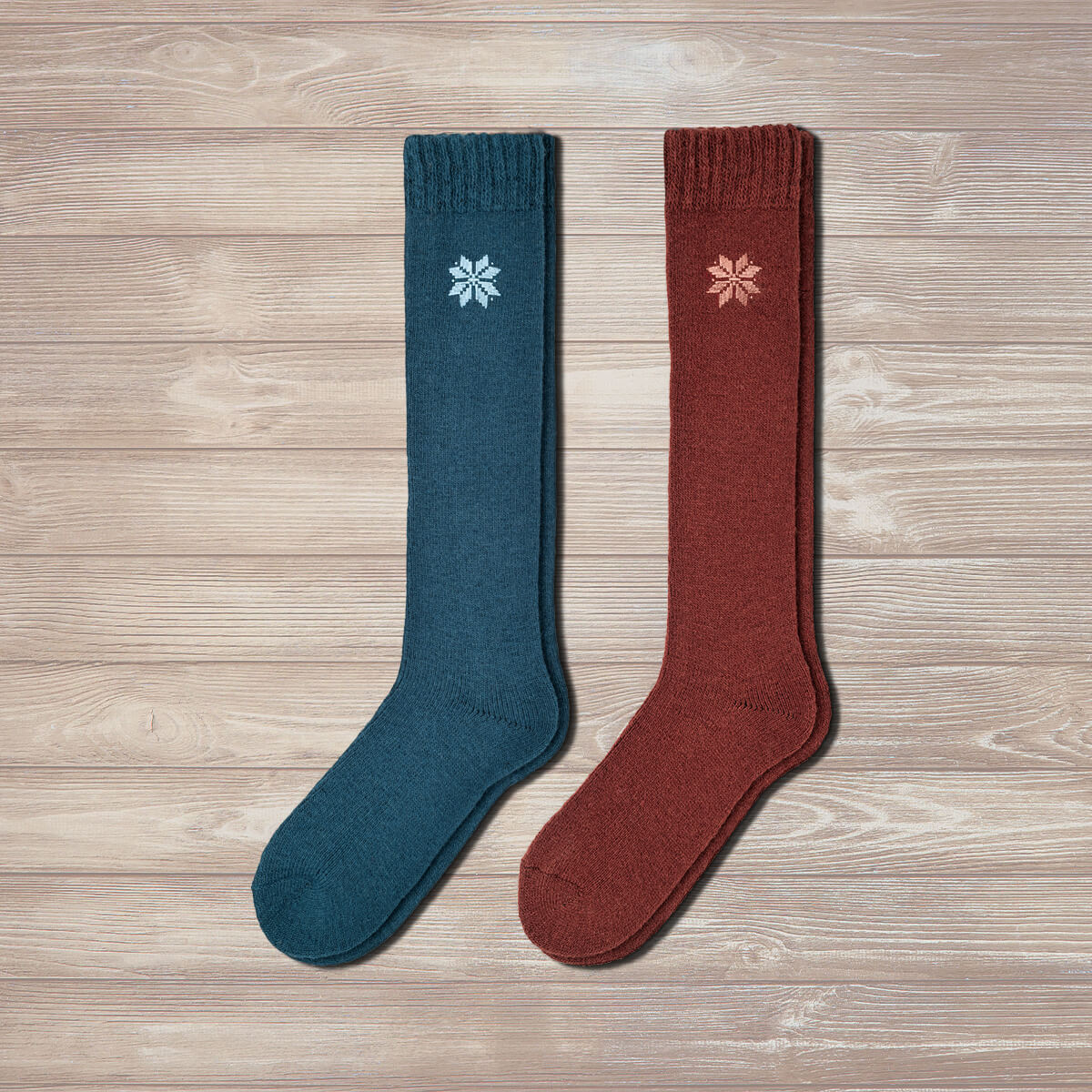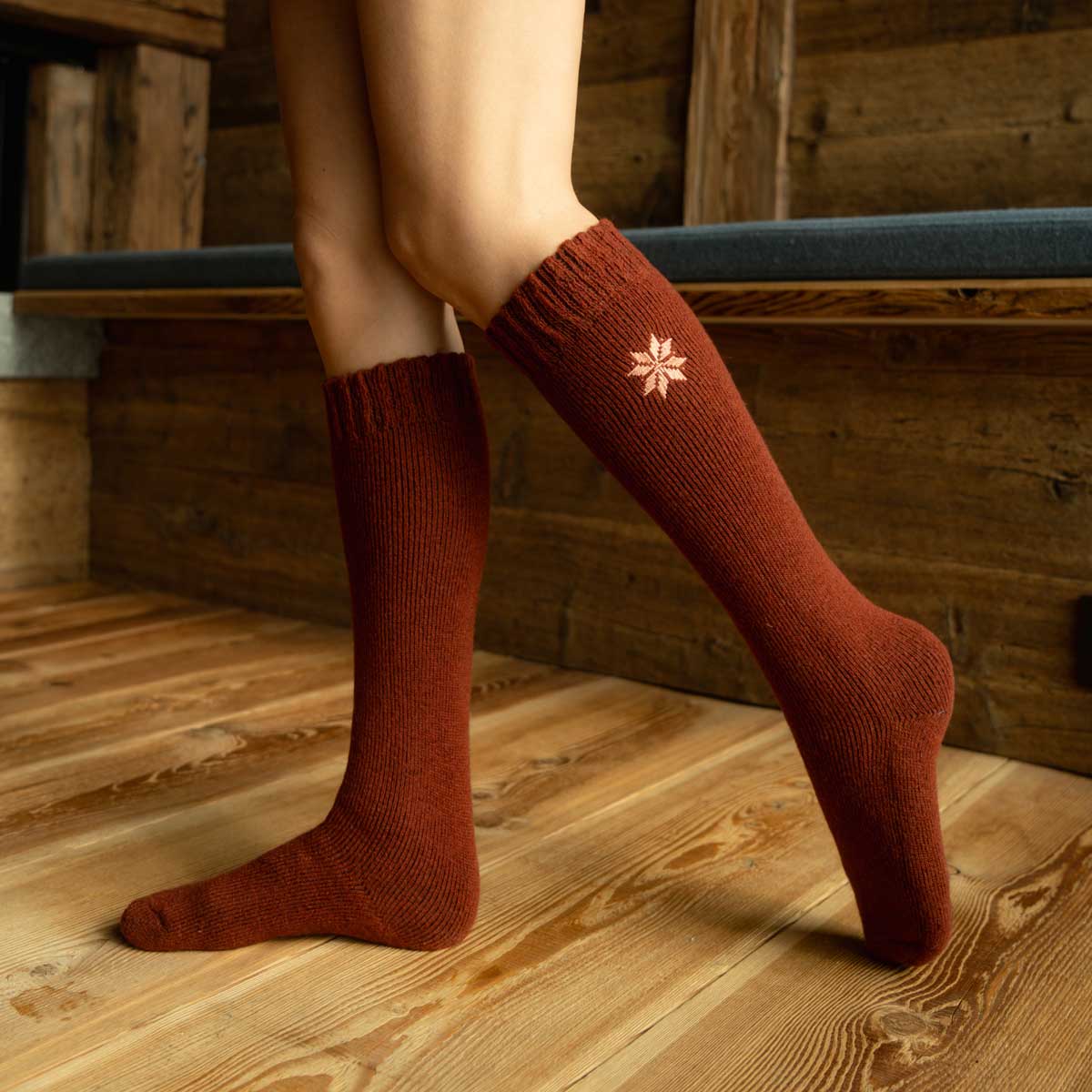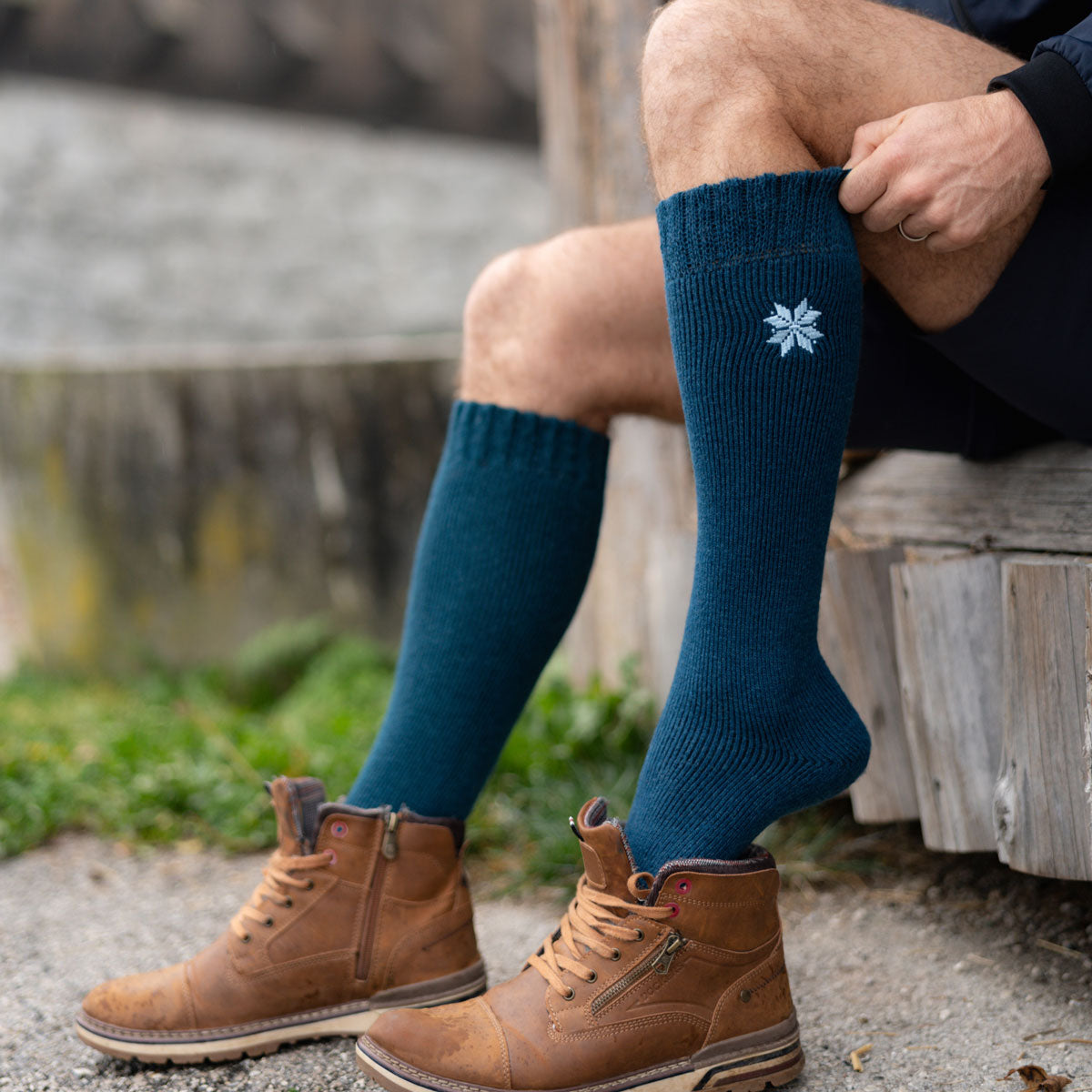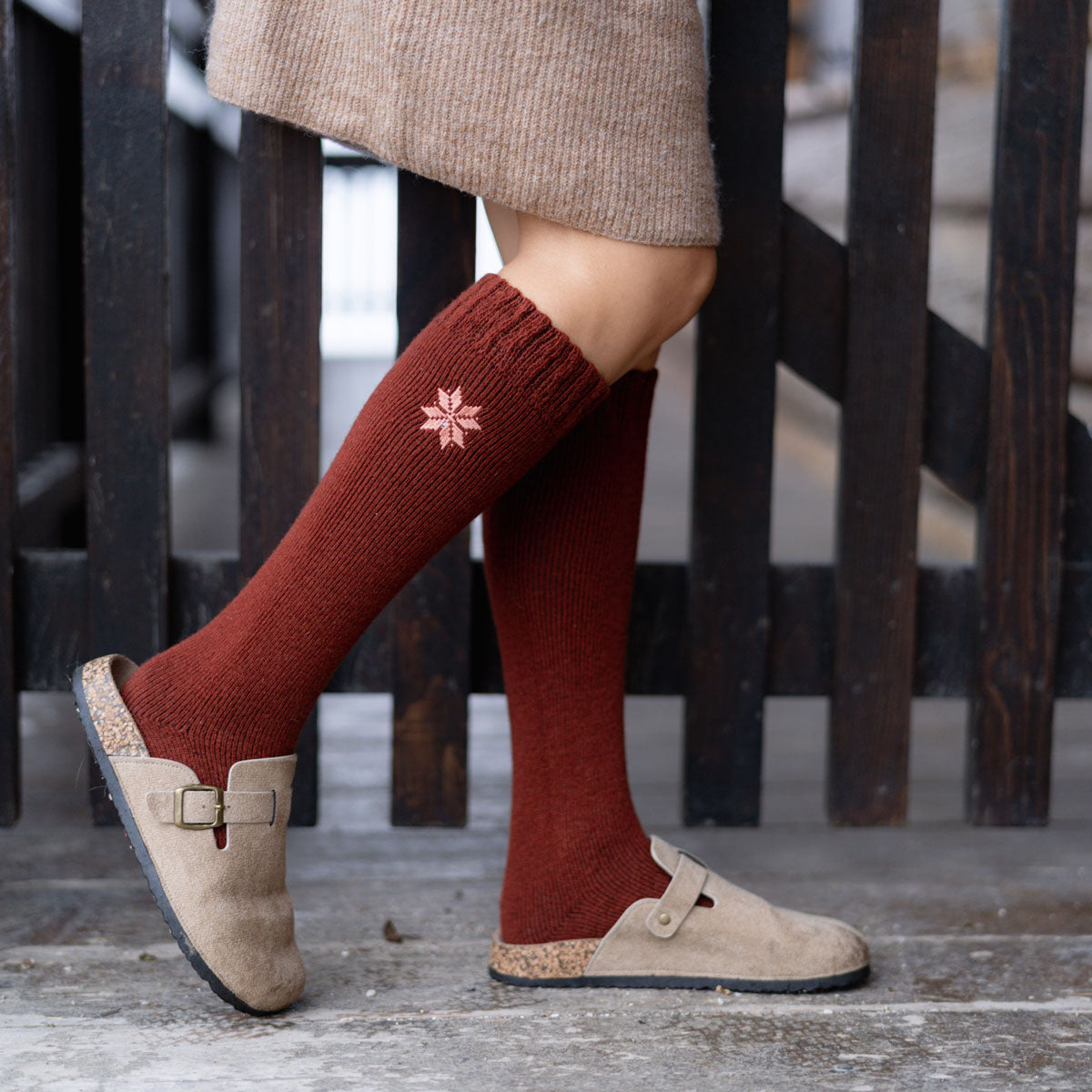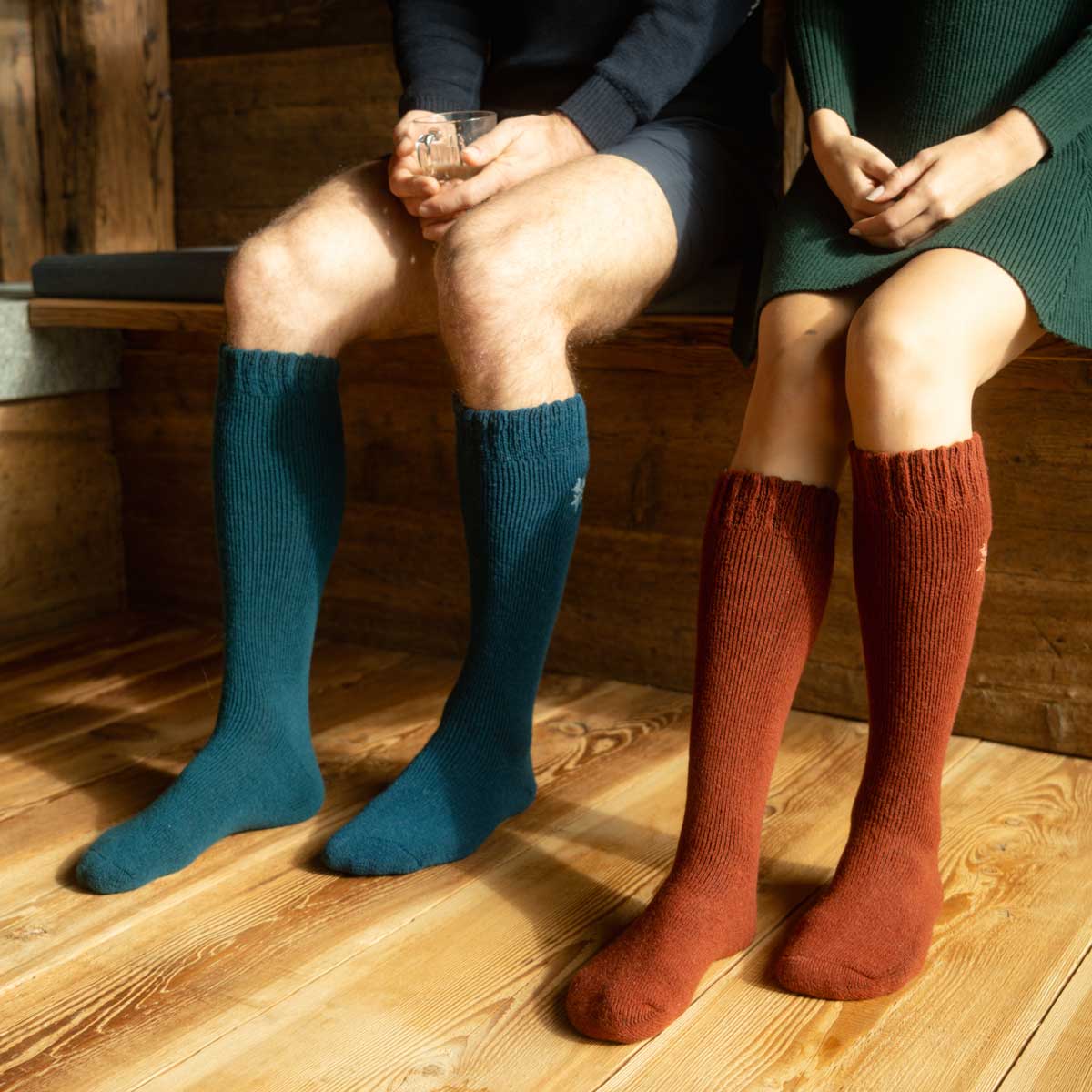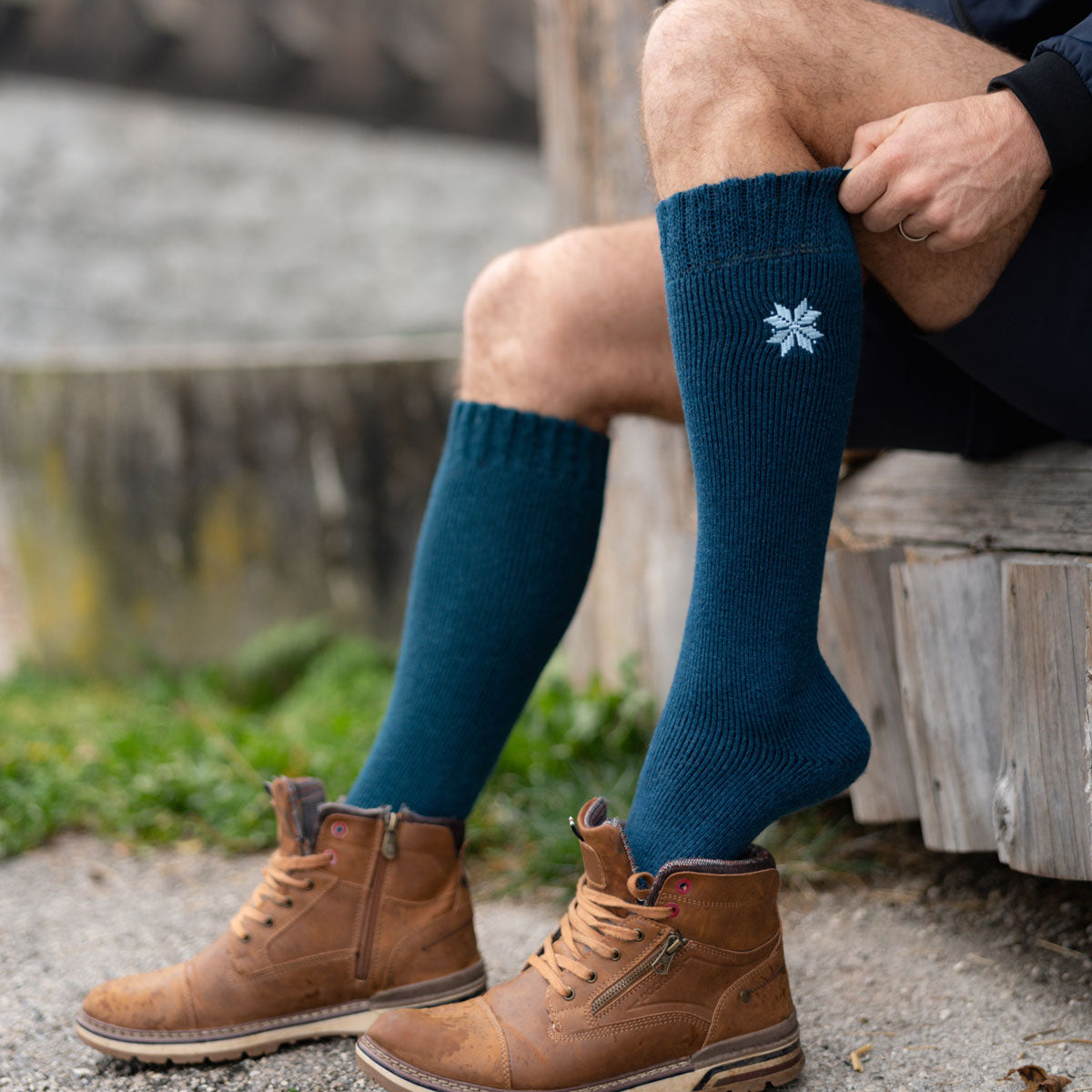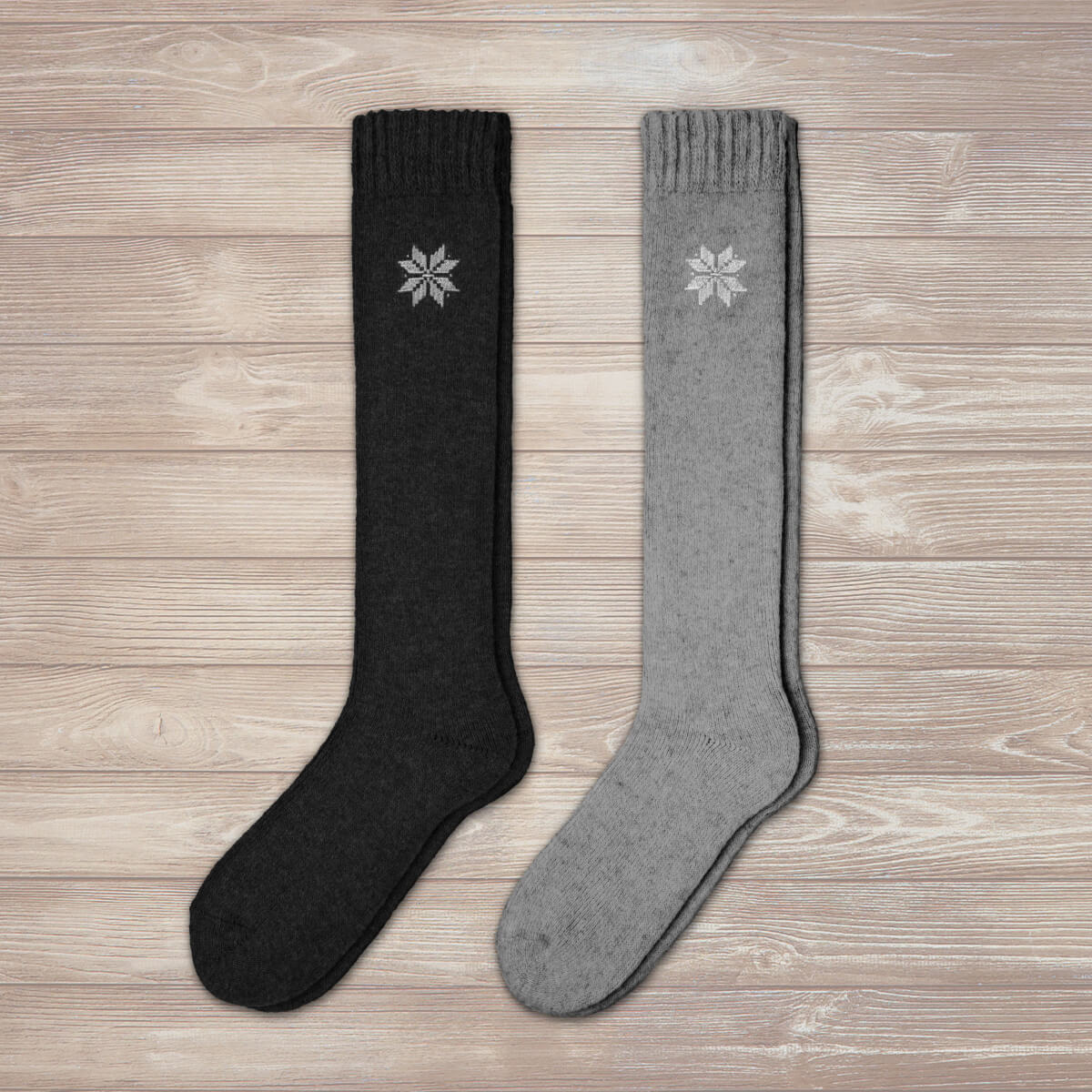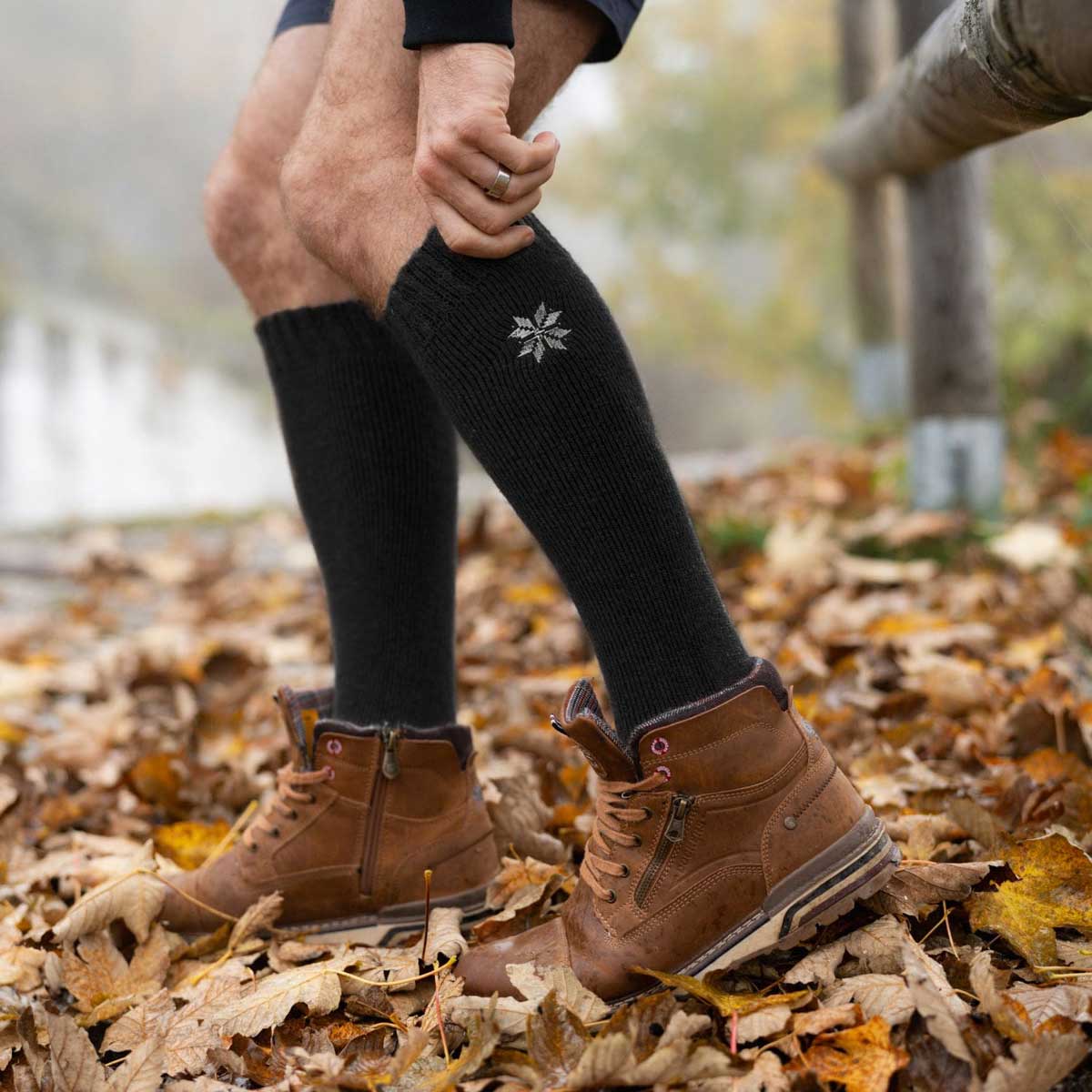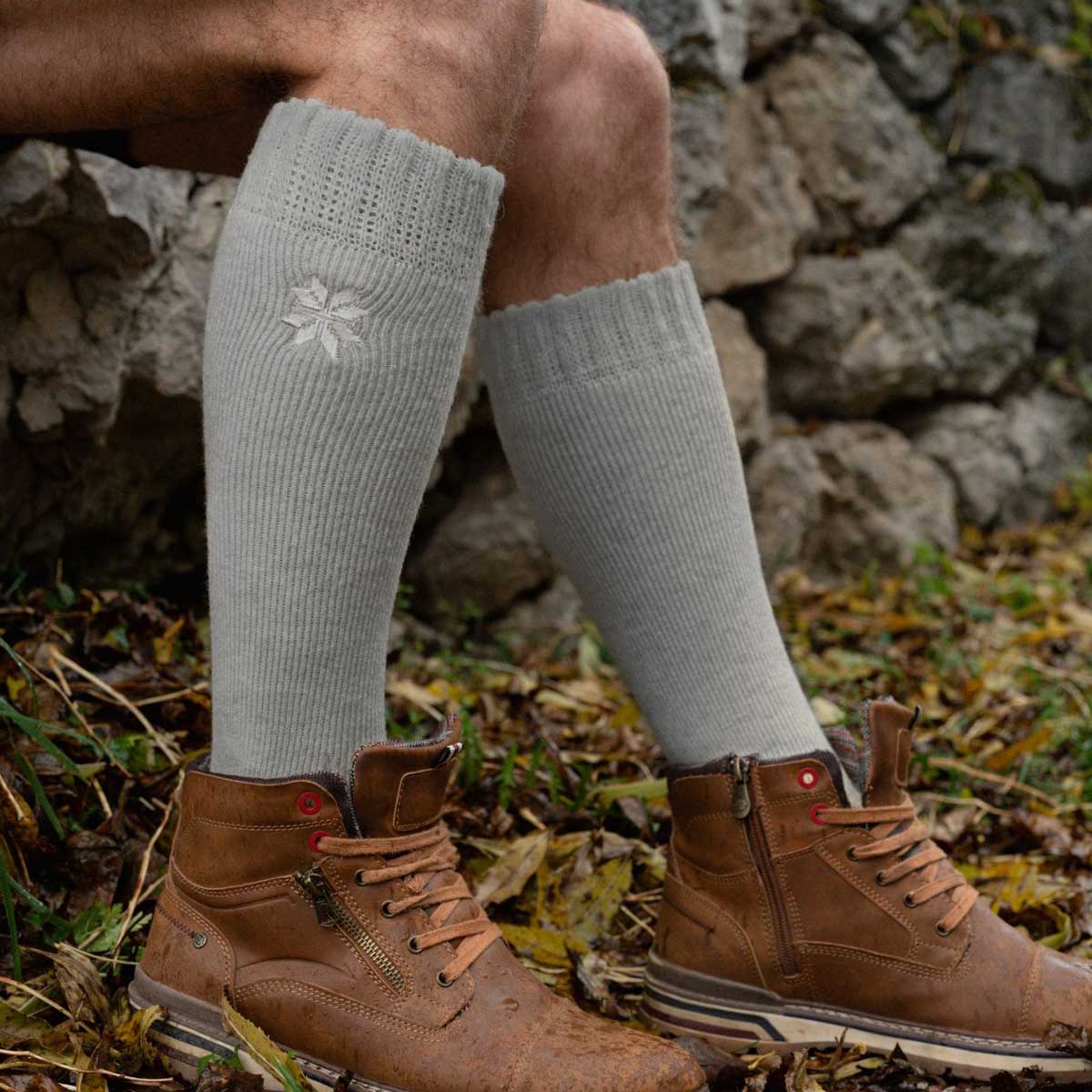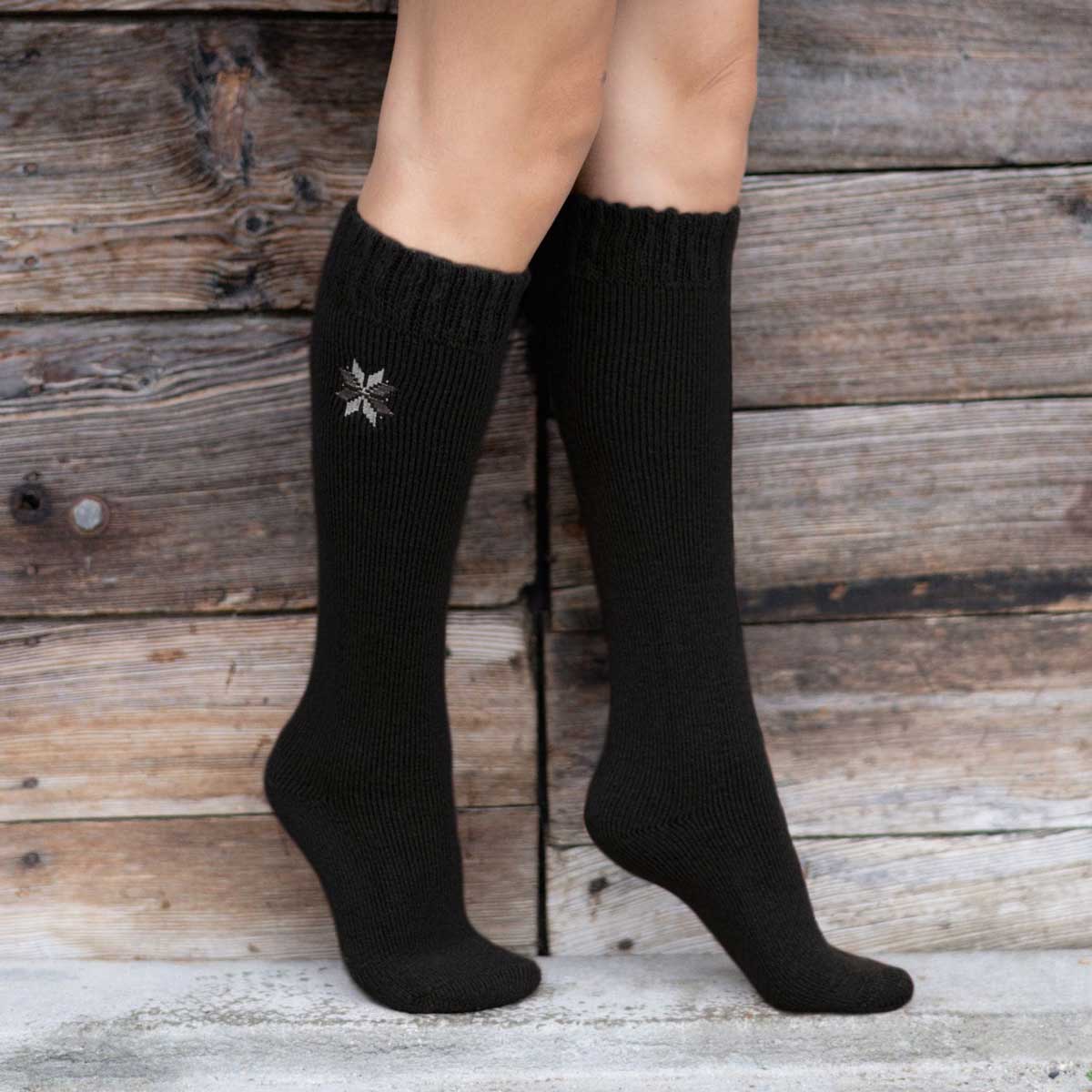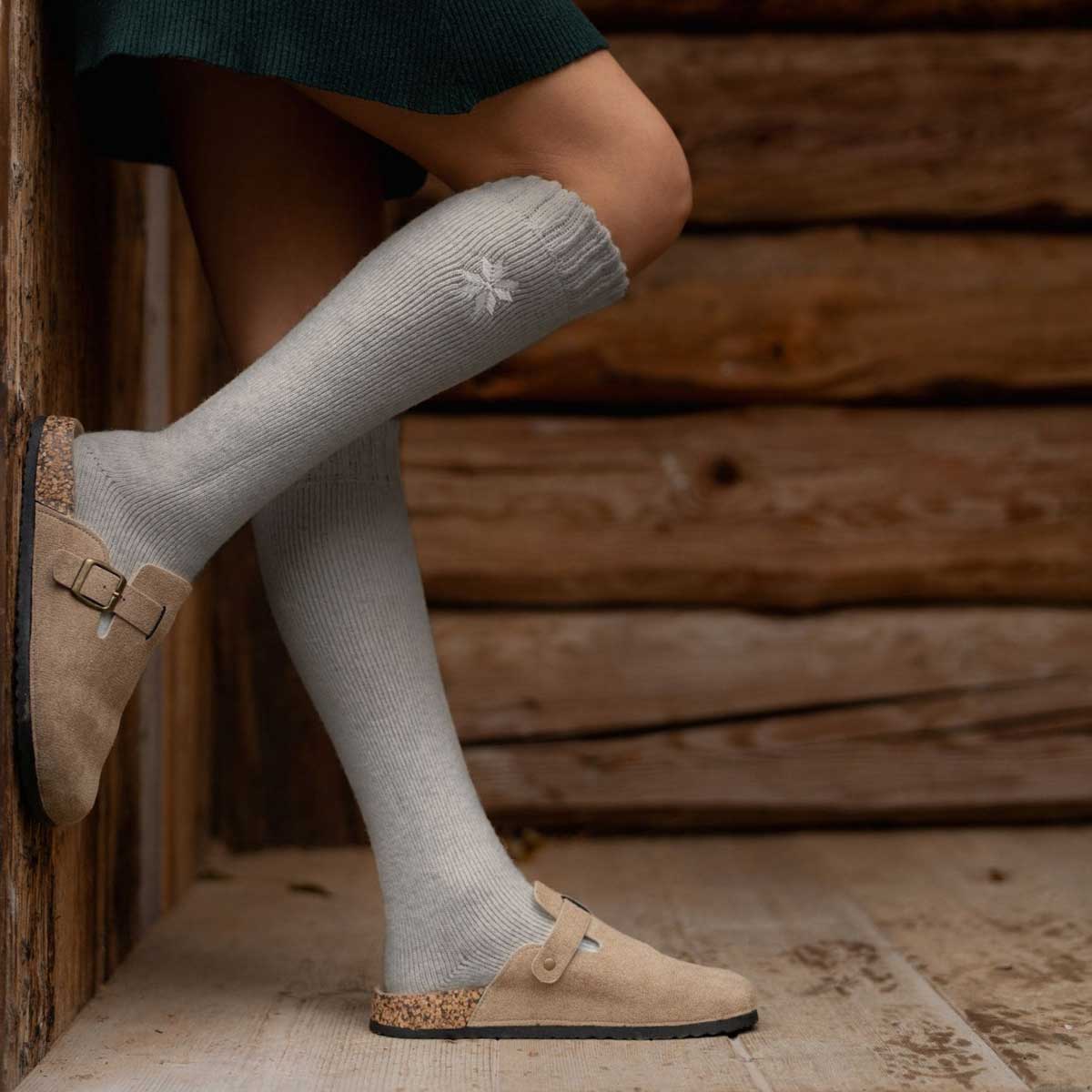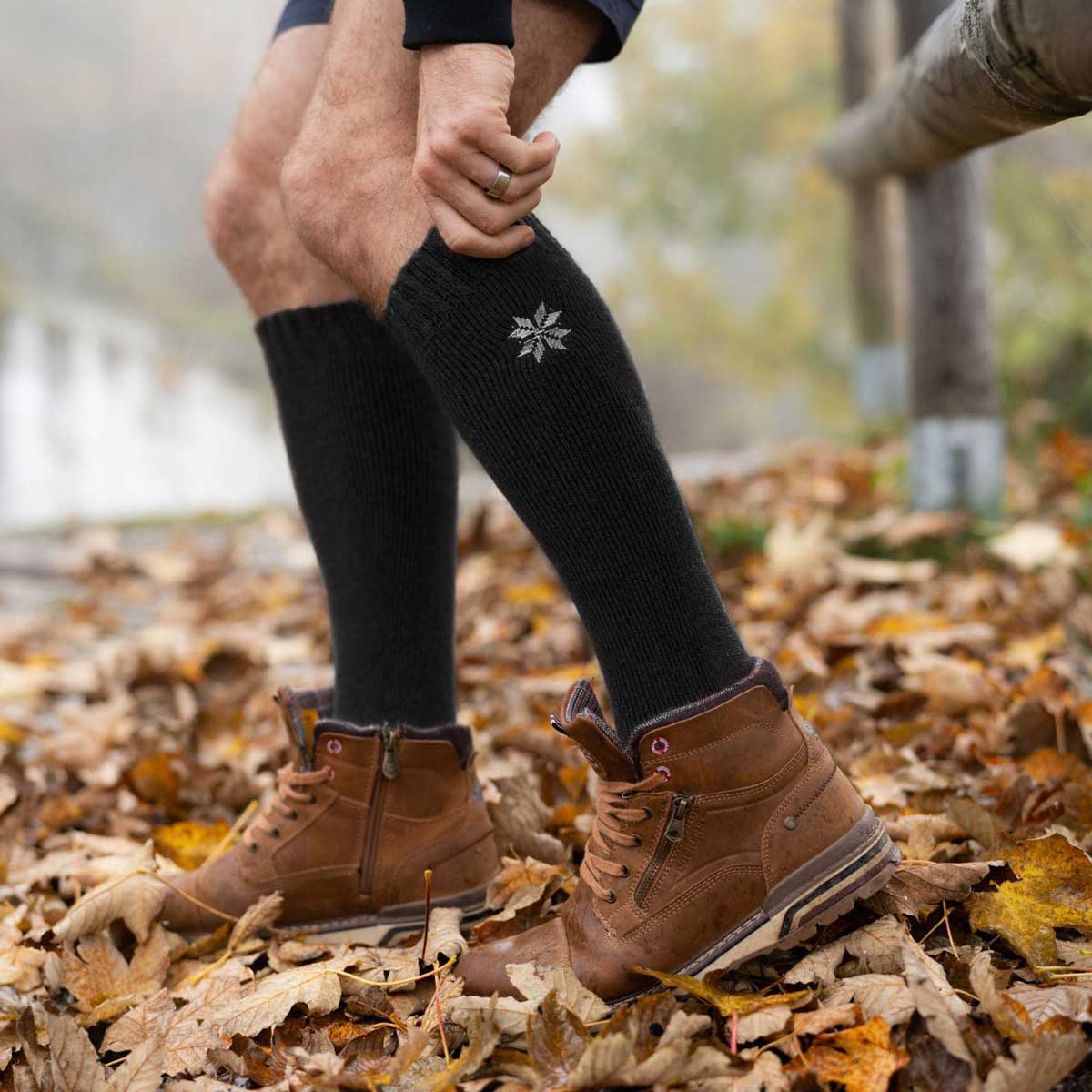Your Cart is Empty
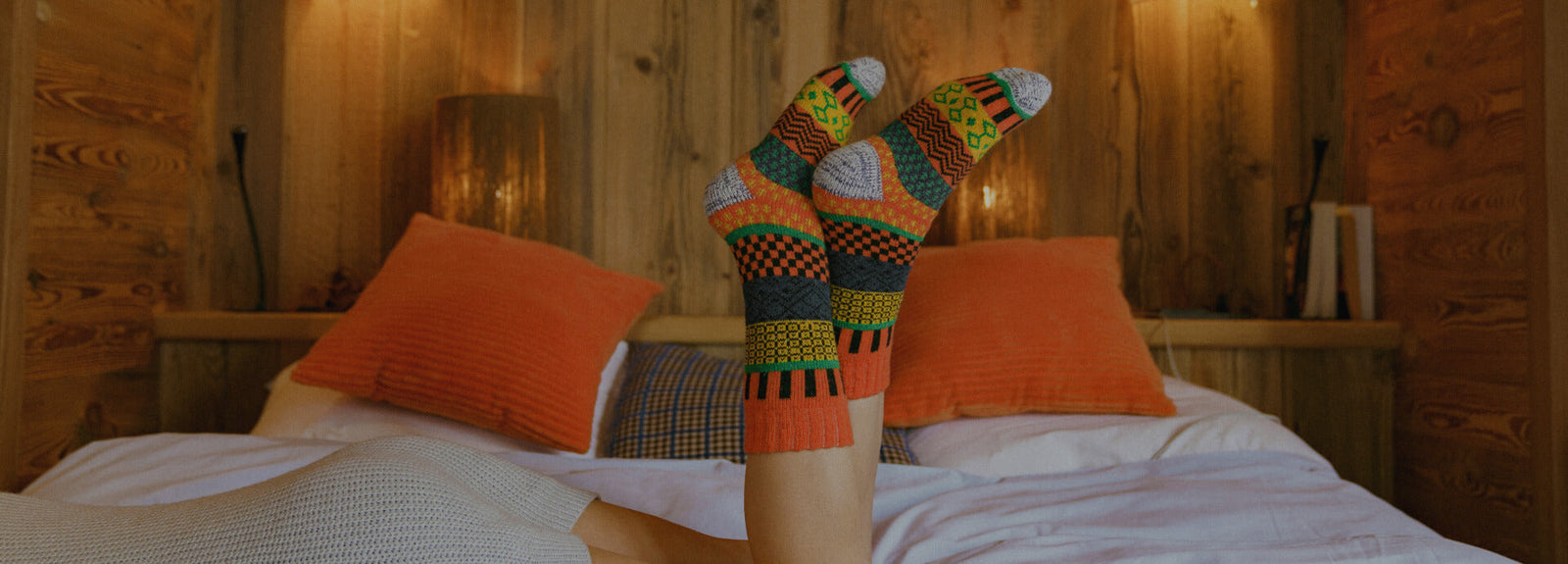
Sleeping with socks on: pros and cons
7 min read
Sleeping with socks on can positively impact sleep quality by helping regulate body temperature, improve blood circulation, and promote relaxation. This is particularly beneficial for people with cold feet, poor circulation, or conditions like Raynaud’s disease. However, potential downsides include overheating and increased risk of fungal infections if non-breathable or tight socks are used. Choosing breathable, natural fabrics like cotton or merino wool can help mitigate these issues. Ultimately, whether or not to sleep with socks is a personal choice, influenced by individual comfort and health considerations.
Sleeping with socks on – should you or should you not do it? No matter the for and against arguments, though, one thing remains certain – the importance of your sleep quality is something that should definitely not be overlooked. At the end of the day, sleeping is one of your body’s most basic and vital forms of self-regulation, and how well you sleep has a significant influence on a wide array of aspects in your life.
The question "should you sleep with socks on" is one that many people ask when looking to improve their nightly rest. Understanding the pros and cons of sleeping with socks on can help you make a more informed decision.
Chronic sleep deprivation can increase the risk of various health problems, including obesity, diabetes, heart disease, high blood pressure, and stroke. It can also weaken the immune system, making the individual more susceptible to infections and illnesses.
Moreover, poor sleep can affect cognitive function, memory, and attention, leading to difficulties with learning and decision-making. It can also cause mood disturbances, such as irritability, anxiety, and depression. Additionally, insufficient sleep can impact job performance, reduce productivity, and increase the risk of accidents or errors. Overall, poor sleep can significantly impair an individual's quality of life, making it essential to prioritize and address any issues related to sleep.
Among the benefits of wearing socks at night is the ability to fall asleep faster and stay asleep longer due to better thermoregulation. Bed socks designed for comfort and breathability can play a crucial role in this.
Pros of sleeping with socks on
Keeps feet warm
One of the most important benefits of sleeping with cozy socks is that they’ll keep your feet warm throughout the night. Apart from the discomfort of waking up with cold feet in the middle of the night, there is a scientific reason why ensuring proper thermoregulation will help you get that satisfying, uninterrupted sleep that’s so important for your health. The explanation is related to your circadian rhythm, an internal clock that tells your body when it is time to go to bed or get up.
Reduces risk of Raynaud's disease
Sleeping with socks on is also recommended for people suffering from Raynaud’s disease, a circulatory deficiency that limits blood flow to one’s fingers and toes, causing numbness, swelling, and even throbbing pains. When the feet are warm, the blood vessels dilate, allowing for increased blood flow and improved oxygen and nutrient supply to the tissues. This can help to reduce the frequency and severity of attacks and promote overall comfort and well-being.
Improves blood circulation
Sleeping with socks on can improve blood circulation, especially for those who tend to have cold feet. When your feet are cold, the blood vessels in your feet and hands constrict to conserve heat, reducing blood flow. This can result in reduced oxygen and nutrient supply to the tissues, causing discomfort and potential health issues.
Wearing socks to bed can help to keep your feet warm, which can, in turn, increase blood flow and improve circulation. This can be especially beneficial for individuals with poor circulation, such as those with diabetes or peripheral artery disease. Improved circulation can help to reduce the risk of complications, such as foot ulcers, and promote healing.
Promotes relaxation
To put it in simple terms, the core temperature of your body drops as a sign that you’re ready to fall asleep, a process which is encouraged by warming up the surface of your skin, especially at the ends of your body (i.e., your feet and hands). That’s why putting on a comfy, warming pair of socks before tucking yourself in bed can aid in falling asleep faster and ensure you’ll get a continuous, relaxing sleep.
Furthermore, according to a small study published in the journal Nature, warming your feet can help to trigger the body's natural sleep processes. The researchers found that when the participants wore socks to bed, their feet remained warmer, leading to vasodilation, or the widening of blood vessels. This dilation allowed for increased blood flow and heat loss, which ultimately resulted in the body lowering its core temperature. This drop in temperature is a natural signal to the body that it is time to sleep.
The benefits of wearing socks to bed extend beyond warmth—they can actually contribute to overall sleep hygiene, especially if you struggle with insomnia or poor sleep onset.
Cons of sleeping with socks on
Overheating
Although the benefits of sleeping with socks on are definitely to be considered, certain disadvantages steer people away from adopting this habit. One such disadvantage is the potential of overheating during your sleep, which, like cold feet, will lead to unwanted interruptions of your vital snooze throughout the night. Overheating can happen to people for various reasons, such as hot flashes that most women get during menopause. Otherwise, however, the fabrics from which your socks are made play an essential role since synthetic fibers prevent your skin from breathing properly and interfere with your body’s natural thermoregulation processes. Therefore, if sleeping with socks on has been doing more harm than good in your case, consider opting for natural fabrics such as cotton or merino wool as a viable alternative to fixing this issue. This is especially true of merino wool, which has naturally ‘‘built-in” thermoregulatory properties that help your feet and the rest of your body keep a constant temperature.
Increased risk of fungal infections and irritations
Individuals who sleep barefoot do so because of concerns about the risk of fungal infections. This risk is increased even further if you tend to overheat during your sleep since an increased temperature combined with moisture due to sweating creates the perfect environment for all kinds of bacteria to grow and thrive on your feet. This can ultimately lead to rashes and irritations that prevent you from reaping the benefits of an uninterrupted good night’s sleep. Even so, just as with overheating, the source of the materials your socks are made of can be a game changer. As such, consider trying out natural fibers if you’re looking to determine whether sleeping with or without socks is the right choice.
If you're looking into socks for sleeping, it's best to choose breathable, non-constrictive materials that won't trap moisture or restrict circulation.
Who should consider sleeping with socks on?
While there is no definite yes or no answer to this question, you should certainly consider it if you have issues regarding blood circulation. That includes older people, individuals suffering from Raynaud’s disease, or those who generally tend to get colder feet throughout the day (and night). If you find yourself among any of these categories, a good pair of cozy socks might be just the thing you need to fall asleep faster and prevent waking up during the night.
Who should avoid sleeping with socks on?
On the other end of the spectrum, going to sleep barefoot should be the choice to consider for you if you’re prone to overheating (for example, if you’re a woman going through menopause), if you’re someone with a known history of foot fungal infections and/or sensitive skin that is prone to allergies. Do remember, however, that these effects might be the cause of the nature of the fabrics used in the socks you wear, so keep that in mind as you adjust the variables that come into play regarding your sleeping habits and sleep hygiene.
Conclusion
Overall, good sleep health can be influenced by various factors, but choosing to wear socks to sleep or not can be a good starting point if you want to improve this area in your life. However, while you may reap considerable benefits through proper temperature regulation, improved blood circulation, and added comfort, there is also the risk of bacterial infections and skin reactions to be taken into account.
If you’ve already decided that sleeping with socks is the right path, Nordic Socks offers a wide range of cozy socks to help you sleep more comfortably. They’re made of high-quality merino wool and come in various color combos and beautiful Scandinavian-inspired patterns, the perfect addition to better sleeping health.
Frequently Asked Questions About Sleeping with Socks On
What do studies say about sleeping with socks on?
It has been proven through research that wearing socks while sleeping can enhance your sleep quality. In fact, this simple habit can lead to falling asleep faster, sleeping for longer periods, and experiencing fewer instances of waking up during the night. Studies even indicate that young men who wear socks to bed can fall asleep 7.5 minutes faster, sleep for an extra 32 minutes, and wake up 7.5 times less frequently than those who do not wear socks.
Is it hygienic to sleep with socks on?
While some may say wearing socks to bed is unclean, it is not actually true. It's essential to pick out the right pair of socks that aren't too snug, as this can hinder circulation. Also, it's best to steer clear of compression socks while sleeping unless your physician advises.
Is it good to wear socks for bed?
Yes, it is generally good to wear socks to bed, especially if you often experience cold feet. Wearing socks helps regulate your body temperature by warming your feet, which in turn signals your body to fall asleep faster. This simple habit can improve sleep quality, enhance blood circulation, and even help reduce symptoms of conditions like Raynaud’s disease. Just make sure to choose breathable, non-restrictive socks made from natural fibers to avoid overheating or skin irritation.
Get Exclusive offers
Join our email list and get exclusive offers and 10% off on first order.
Recent Articles
-
 What Are the Warmest Wool Socks for Outdoor Work October 21, 2025
What Are the Warmest Wool Socks for Outdoor Work October 21, 2025 -
 Why Are Merino Wool Socks Considered the Best Choice? September 23, 2025
Why Are Merino Wool Socks Considered the Best Choice? September 23, 2025 -
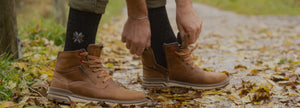 Warm Socks to Wear with Boots September 23, 2025
Warm Socks to Wear with Boots September 23, 2025 -
 Why it’s worth investing in high-quality, durable socks for kids August 16, 2025
Why it’s worth investing in high-quality, durable socks for kids August 16, 2025 -
 WHY COTTON SOCKS ARE THE BEST CHOICE August 12, 2025
WHY COTTON SOCKS ARE THE BEST CHOICE August 12, 2025
Related Products
Enjoying this content?
Sign up to get notification about new articles, special offers and new products.
Knee High Socks
NEWS & UPDATES
Get the newsletter to receive direct information about offers and new products.
Where are we shipping to?
Purchase from your country’s website.
It’s the fastest way to pamper your feet with comfy socks.
other countries
English









